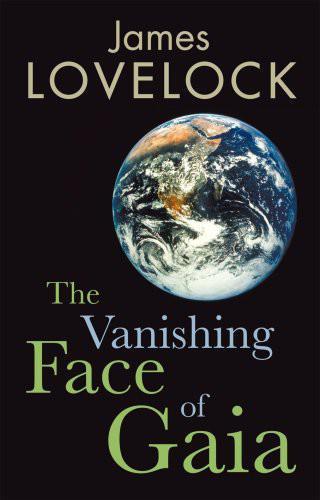
The Vanishing Face of Gaia: A Final Warning
by
James E. Lovelock
Published 1 Jan 2009
It would be wrong of me to suggest that climate modellers ignore the importance of the contribution of life on Earth to climate change. Climate modellers at the Hadley Centre and the University of East Anglia in the UK, at the National Centre for Atmospheric Research and other labs in the USA, and at Potsdam in Germany have all made or are making comprehensive dynamic climate models that do include the biota. I am familiar with the substantial contributions of Peter Cox, Chris Jones and Richard Betts of the Hadley Centre, of Tim Lenton, Andrew Watson and Peter Liss of the University of East Anglia, and of John Schellnhuber, Wernher Von Bloh and Stefan Rahmstorf of the Potsdam Institute for Climate Impact Research.
…
When I first heard Walker describe this mechanism at a Dahlem Conference in Berlin in the early 1980s it certainly sounded plausible, and afterwards in conversation he said that his motivation was mainly to show that Gaia was not needed for self‐regulation and that geochemistry could do it alone. At the time Andrew Watson, now a professor of biogeochemistry at the University of East Anglia, was working with me as a postgraduate student and it occurred to us that in real life rocks always have lichen and other organisms on their surfaces and, more importantly, the soil where fragments of the rocks exist is a rich ecosystem in its own right and has an internal atmosphere up to thirty times richer in carbon dioxide than the air.
…
The paper on clouds, algae and climate by Charlson, Lovelock, Andrea and Warren was published in Nature in 1987, and its conclusions are usually referred to as the CLAW hypothesis. Since then hundreds if not thousands of papers have been published on researches it stimulated. Professor Liss of the University of East Anglia and I published a paper in 2007 in Environmental Chemistry summarizing the progress of the CLAW hypothesis, and concluded that the mechanism proposed was observable only in the unpolluted southern hemisphere. Sulphur pollution in the northern hemisphere is now as much as ten times greater than the natural output from algae, and obscures any effect the algae might have.
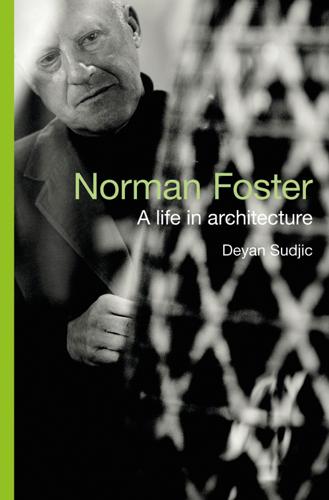
Norman Foster: A Life in Architecture
by
Deyan Sudjic
Published 1 Sep 2010
For Foster, macrobiotics were not a success; within a month he had lost so much weight that his watch was hanging loose from his wrist. He abandoned the experiment after being taken aside by a doctor and told that his diet was threatening to do lasting damage to his health. In the end it was Lisa Sainsbury who helped to find the nurses to care for Wendy. Robert and Lisa Sainsbury had offered their collection to the University of East Anglia in 1973. One of their daughters had studied there, and in Sainsbury’s eyes it had the particular merit of not being Oxbridge – he saw no reason to become a benefactor to the already well-provided-for older universities. Sainsbury had a strong sense of social responsibility. A committed supporter of the Welfare State, he took the working conditions of his employees seriously.
…
Lasdun designed a remarkably powerful, even ruthless scheme that created a continuous wall of concrete structures, like a set of linked stepped pyramids, perhaps the most ambitious attempt at that feverish, half-dystopian, biggest-of-the-big architectural idea of the 1960s – building a megastructure in Britain. Tradition had been abolished. The University of East Anglia wall, backed by an elevated walkway, contains student residences, as well as laboratories, teaching spaces, and classrooms. It has the massive presence of an aircraft carrier beached in a wheat field. As an expression of a single, ruthless architectural will, it would have attracted attention anywhere.
…
There were scores of studies for high-rises in Japan, Germany, Lebanon, Australia and America. There were beautifully detailed designs for remodelling London’s South Kensington, for building a new airport in Shanghai, and universities in Malaysia. You could see the original structural model for the Sainsbury Centre at the University of East Anglia, discarded in favour of the even more beautiful version that was actually built when Foster had his last-minute brainwave. There are rough-and-ready foam models, made in the studio, as well as immaculately finished models that were intended to impress clients. The extensive use of modelling is a thread that has run through every incarnation of the practice.
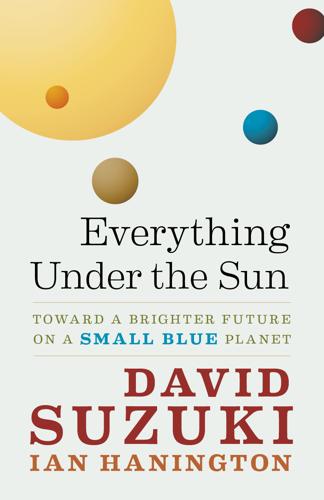
Everything Under the Sun: Toward a Brighter Future on a Small Blue Planet
by
Ian Hanington
Published 13 May 2012
Six independent investigations have found that the unimaginatively named Climategate was anything but the scandal or “nail in the coffin of anthropogenic global warming” that deniers claimed. After the illegal theft and release of emails from scientists at the University of East Anglia Climatic Research Unit, some reports found that the scientists could have been more open about sharing data; however, their science was rigorous and sound. The University of East Anglia has since posted its research and data online, and all of the emails in question have also been posted. As for criticisms of the UN Intergovernmental Panel on Climate Change’s global assessment of climate change, a review found that despite “a very small number of near-trivial errors in about five hundred pages,” the report contained “no errors that would undermine the main conclusions.”
…
Many Republicans, some of whom also reject the science of evolution and believe the earth was created six thousand years ago and that humans and dinosaurs walked together, have followed his lead. As for the so-called Climategate brouhaha (where more than one thousand emails between climate scientists at the University of East Anglia were stolen or leaked by hackers), a fifth investigation, this time led by Republicans in response to a request from one of their own, Senator James Inhofe of Oklahoma, again found no “evidence to question the ethics of our scientists or raise doubts about [the National Oceanic and Atmospheric Administration’s] understanding of climate change science.”
…
It’s time to listen to the people who continue to look at the facts in the face of baseless accusations, break-ins, and threats. We need to listen to those who are trying to do something about our predicament rather than wishing it away. Where’s the climate conspiracy? PEOPLE WHO DENY the reality of human-caused global warming were wetting their pants over the hacked emails brouhaha at the University of East Anglia Climatic Research Unit. In their desperation, the deniers claimed the emails pointed to a global conspiracy by the world’s scientists and government leaders to... Well, it’s hard to say what they believed the conspiracy was about. A letter to a Vancouver newspaper on December 21, 2007, indicates the way many of them think.
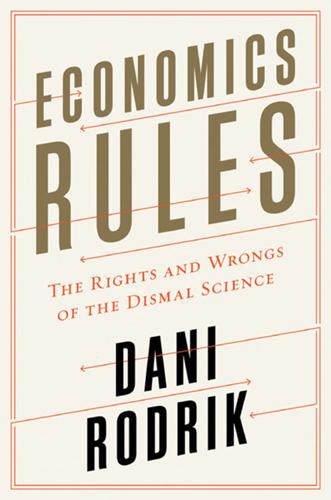
Economics Rules: The Rights and Wrongs of the Dismal Science
by
Dani Rodrik
Published 12 Oct 2015
Greg Mankiw, “News Flash: Economists Agree,” February 14, 2009, Greg Mankiw’s Blog, http://gregmankiw.blogspot.com/2009/02/news-flash-economists-agree.html. § As University of East Anglia economist Robert Sugden points out, “In economics . . . there seems to be a convention that modellers need not be explicit about what their models tell us about the real world.” Sugden, “Credible Worlds, Capacities and Mechanisms” (unpublished paper, School of Economics, University of East Anglia, August 2008), 18. CHAPTER 6 Economics and Its Critics An economist, a physician, and an architect are traveling on a train together, and they fall into a discussion as to which one of their professions is the most honorable.
…
Cameron, “The Expansion of the Public Economy: A Comparative Analysis,” American Political Science Review 72, no. 4 (December 1978): 1243–61. 18. Dani Rodrik, “Why Do More Open Economies Have Bigger Governments?” Journal of Political Economy 106, no. 5 (October 1998): 997–1032. 19. Robert Sugden, “Credible Worlds, Capacities and Mechanisms” (unpublished paper, School of Economics, University of East Anglia, August 2008). CHAPTER 4: Models and Theories 1. Andrew Gelman, “Causality and Statistical Learning,” American Journal of Sociology 117 (2011): 955–66; Andrew Gelman and Guido Imbens, Why Ask Why? Forward Causal Inference and Reverse Causal Questions, NBER Working Paper 19614 (Cambridge, MA: National Bureau of Economic Research, 2013). 2.
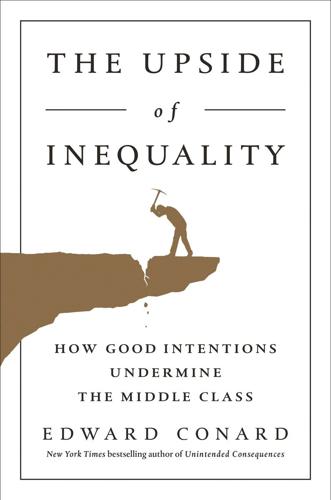
The Upside of Inequality
by
Edward Conard
Published 1 Sep 2016
Joshua Angrist, Parag Pathak, and Christopher Walters, “Explaining Charter School Effectiveness,” Institute for the Study of Labor, April 2012, http://ftp.iza.org/dp6525.pdf. 17. Ron Oxburgh et al., “Report of the International Panel Set up by the University of East Anglia to Examine the Research of the Climatic Research Unit,” University of East Anglia, April 14, 2010, http://www.uea.ac.uk/documents/3154295/7847337/SAP.pdf/a6f591fc-fc6e-4a70-9648-8b943d84782b. 18. Joshua Angrist, Susan Dynarski, Thomas Kane, Parag Pathak, and Christopher Walters, “Who Benefits from KIPP?” IZA Discussion Paper No. 5690 (May 2011), http://economics.mit.edu/files/6965. 19.
…
But the very thing scientific experiments endeavor to overcome—selection bias—fiercely drives real-world outcomes. If I sound too cynical, consider another research area in which natural results are seldom repeatable and where the conclusions are politically charged—climate change. In 2009 hackers revealed e-mails from the Climatic Research Unit (CRU) at the University of East Anglia that raised questions about the institution’s objectivity. The British government called upon the independent Science Assessment Panel to investigate these claims. While the panel absolved the university, it found it “very surprising that research in an area that depends so heavily on statistical methods has not been carried out in close collaboration with professional statisticians.”17 These findings are hardly reassuring of wholly unbiased research.
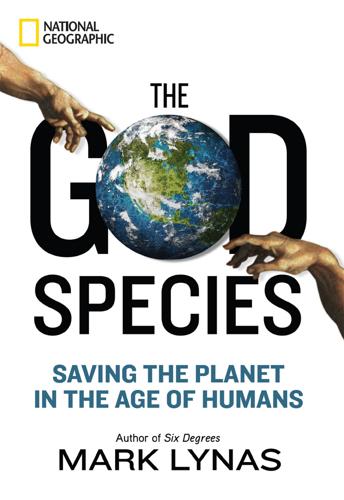
The God Species: Saving the Planet in the Age of Humans
by
Mark Lynas
Published 3 Oct 2011
Over millions of years new species can appear, but only from the diminished gene pool of the survivors—and a return to true pre-extinction levels of biodiversity may take much longer, if it ever takes place at all. This time-lag effect was cleverly demonstrated in a modeling simulation undertaken by two British researchers, Hywell Williams and Tim Lenton (both at the University of East Anglia; Lenton is a member of the planetary boundaries expert group).2 In a computer-generated world—entirely populated by evolving microorganisms living in a closed flask—Williams and Lenton found that the closing of nutrient loops emerged as a robust property of the system nearly every time the model was run.
…
Indeed, climate denialists became so successful in 2009 that they managed to dominate the media agenda via a series of manufactured scandals that engulfed much of the climate-science community. Deniers promoting the so-called “Climategate” affair took a few out-of-context quotes and superficially embarrassing private slips by leading scientists from some leaked emails and nearly managed to publicly discredit not only the Climatic Research Unit of the University of East Anglia but several other leading institutes too. Vociferous promoters of a subsequent scandal took a single mistake about Himalayan glaciers, buried deep in the second weighty tome of the IPCC’s 2007 Fourth Assessment Report, and used it to attack the entire IPCC process, and the role of Chair Rajendra Pachauri in particular.
…
cadmium calcium carbonate Calcutta Cambrian explosion Canada Cancún, UN climate change meeting, 2010 “cap and trade” programs carbon: cycle; offsetting/markets capture and storage (CCS); price; politics of; black carbon dioxide emissions: planetary boundary for Carbon Trade Watch cars see vehicles Cartagena Dialogue Cato Institute CFCs Cheatneutral.com Chernobyl Chesser, Robert China 21 coal power in; nuclear power in; dam construction; “night soil” industry; meat eating in; demand for fossil fuels; alternatives to high carbon aviation; hydroelectricity; virtual water and; pollution incidents; aerosol pollution; black carbon and; transport pollution; emissions standards; CFC production; Copenhagen summit and; population growth; vehicle ownership, growth in emissions; food production; investment in low-carbon technologies Chinese Academy for Environmental Planning Climate Action Network Climate Action Partnership climate change: carbon offsetting/markets and; deniers; extinction and; boundary see climate change boundary; tipping points; methane and; agreements/negotiations; nitrates worsen; solar radiation management and; see also carbon dioxide emissions, China, individual agreement/negotiation name, nuclear power, population, renewables under individual event and area name climate change boundary; 350: current evidence; 350: modeling evidence; 350: past evidence; toward a technofix?; technologies for new technologies for the future; politics of carbon; sea level rise; Arctic thaw and; destabilization of Atlantic Ocean circulation; models Climate Fix, The (Pielke Jnr) “Climategate”, 2009 Climatic Research Unit, University of East Anglia Clinton, Bill Club of Rome coal power Cochabamba, Bolivia Collapse (Diamond) Colorado River Commission for the Conservation of Atlantic Tunas Condit Dam Congo Basin Forest Fund Congress, US Convention on Biological Diversity, Nagoya, 2010 Convention on Long-range Transboundary Air Pollution, 1979 COP15 of the UN Framework Convention on Climate Change Copenhagen Accord Copenhagen climate summit, 2009 coral reefs Corporate Watch Costa Rica Costanza, Robert Cretaceous Period Crookes, William Crutzen, Paul Current Opinion in Plant Biology Cyclone Nargis Da Silva, Luiz Inácio Lula Dai, Aiguo Daly, Herman Dampier, William dams, removing unnecessary; hydroelectric; Chinese construction of; fishery collapse and; tidal barrages; block natural flow of water; threaten species; affects water temperature; water trapped behind loses most of its sediment load; current water use; where water is taken from Danish Committee on Scientific Dishonesty DDT Dead Sea dead zones deep-sea floating turbines deforestation Delta smelt “demographic transition” Dhaka Diamond, Jared diesel engines Dinorwig, Wales DuPont Earth: goldilocks state; self-regulating; “snowball”; ice-albedo feedback; see also carbon: cycle “earthshine” East Antarctic Ice Sheet Economics of Ecosystems & Biodiversity, The (TEEB) report, 2010 Economist Ecuador Edwards Dam Egypt electric vehicles Endangered Species Act, U.S.
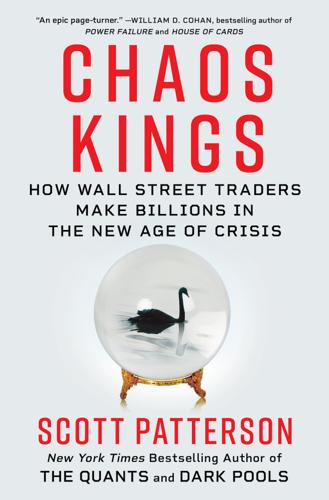
Chaos Kings: How Wall Street Traders Make Billions in the New Age of Crisis
by
Scott Patterson
Published 5 Jun 2023
But it was, no question, a pain in the ass. When he arrived, he quickly surmised that a great many attendees had jetted into town on private planes. In his opinion, there wasn’t a place for private planes in the world anymore. They all needed scrapping. Hoping against hope, Read, a philosophy don at the University of East Anglia, had made the journey to Davos with what he knew to be a quixotic plan. If he could convince just a few billionaires to dedicate a nontrivial portion of their wealth toward the catastrophe of global warming, that could help accomplish what a dozen Extinction Rebellion protests could never do (he’d grown skeptical that the protest group had much of a future unless it received a game-changing infusion of cash that could help it expand).
…
He started becoming more politically radicalized and joined a protest against an annual pigeon shoot in Hegins, Pennsylvania, trying to get in between the hunters and the doomed birds. He joined the EarthFirst! Redwood Summer movement in California, protesting the destruction of the old forests from logging (part of the so-called Timber Wars of the 1990s). Back in the UK by the mid-1990s, Read landed a job in the University of East Anglia’s philosophy department. Norwich, the district where the school is located on the eastern coast of England, was becoming an environmentalist hotspot. In 2004, Read was elected councilor for Norwich’s Green Party. He joined a civil disobedience movement to protest Trident nuclear missiles.
…
He was astonished by the recklessness of the banks and hedge funds. He thought it was a perfect instance of how the application of the precautionary principle might have kept bankers from running the world off a cliff. It was also when he first came across the works of Nassim Taleb. In September 2012, Read invited a group of speakers to a University of East Anglia lecture series about philosophy and the Global Financial Crisis. Among the speakers he invited was Taleb, who gave a talk titled “Opacity, Asymmetries and Ethics,” topics from Antifragile. Afterward, Taleb and Read huddled in a local pub, where they sat sipping single malt whiskey. They hit it off, having a shared view that much of the world vastly underestimated the risk of Black Swans.
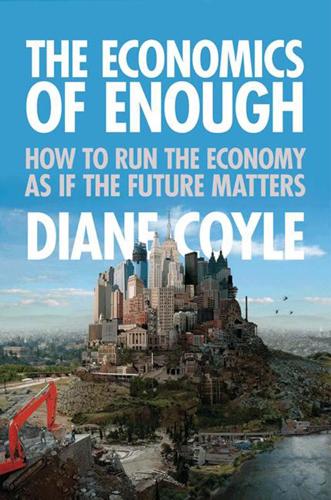
The Economics of Enough: How to Run the Economy as if the Future Matters
by
Diane Coyle
Published 21 Feb 2011
Subsequently the United Nations asked the InterAcademy Council, which represents national science academies, to review the IPCC’s methods, and a number of submissions to its experts listed numerous procedural and methodological weaknesses.12 One of the leading global centers of climate change research, at the UK’s University of East Anglia, was at the heart of an even more damaging scandal when hacked emails seemed to suggest that scientists had actively been rigging results and misleading people they regarded as hostile. Although a review cleared the scientists of the most damaging allegations, even prominent environmental campaigners concluded that climate scientists must engage more honestly and openly with their critics.13 Serious institutional failings of this sort play to political parties and industry lobbies opposed to various types of response to climate change.
…
These weaknesses mean the policies are being shaped inappropriately, they argue. While some of the criticism maps onto conventional left-right politics, there are obviously reasonable questions about the role and motivation of the IPCC and its related groups such as the scientists at the University of East Anglia. The climate change establishment has not had due regard to its own legitimacy and accountability, especially if it wants to change minds and votes in democracies. The dissenters argue further that the official forecasts are unduly alarmist and that the temperature rises against which governments need to take mitigating action are not likely to be as high as the IPCC predicts.
…
See also gross domestic product (GDP); measurement Stein, Herbert, 104 Stern, Nicholas, 29, 60–61, 68, 72–74, 82 Stevenson, Betsey, 41 stewardship, 78, 80, 275 Stiglitz, Joseph, 37, 82, 202, 274 stimulus packages, 91, 100–103, 111 Strumpf, Koleman, 197 suicide, 44, 51, 279 superstar effect, 134 sustainability: Brundtlandt Report and, 77; cradle-to-grave social systems and, 104; defining, 24, 77–78, 80; economic, 8, 85–86, 89–90, 98, 100, 102, 104–5, 108, 111, 113, 136, 177, 183–85, 203, 233–34, 240, 244, 248, 261, 293; environmental, 38, 56, 59, 62, 65, 69, 71, 76, 112–13, 233; fairness and, 115; government debt and, 102, 104–12; growth and, 53, 57, 80–86, 89–90, 98, 100; Index of Sustainable Economic Welfare (ISEW) and, 36; kinds of, 25; social, 54, 71, 79, 114–16, 143, 151, 233, 237 Sweden, 141, 143, 172, 251 Switzerland, 125 Tabellini, Guido, 136 tacit knowledge, 166 taxes, 3, 12, 15; business investment and, 295; fairness and, 123, 127–28, 131, 135–36, 144; Golden Rule for, 93; increased future, 286–87; happiness and, 22–25, 40, 43; inequality and, 115–16, 123, 127–28, 131, 135–36; infrastructure spending and, 93; luxury goods and, 23; Medicare and, 93–94; nature and, 62, 71; pension burden and, 92–95; policy recommendations for, 279, 282–86, 289–90, 293–97; posterity and, 85–91, 94, 99, 103–5, 111–13; Social Security and, 93–94; thrift education and, 294–95; trust and, 171–76, 182, 191, 203; values and, 229, 235, 245, 248, 258; wasteful spending and, 23; welfare burden and, 92–95 technology: access to, 36; Boskin Commission and, 37; call centers and, 131, 133, 161; cities and, 165–70; computers and, 156; consumer electronics and, 36–37; cultural suspicion of growth and, 26–29; data explosion and, 205, 291; decreased cost of, 254; electrification and, 155–56; electronic monitoring, 252–53; e-mail, 252; Enlightenment and, 7; fairness and, 116, 131–34, 137; faxes, 252; fractal character of, 134; general purpose, 157; globalization and, 7, 160–65; governance and, 173–77; growth and, 268, 270–77, 287–93, 297; Gutenberg press, 7; happiness and, 24–25, 35–37, 44, 53–54; impact of, 7–8, 24–25, 35, 37, 252–54; Industrial Revolution and, 27, 149, 290, 297; innovation and, 6–8 (see also innovation); institutions and, 244–46, 251–54, 257–63; Internet, 155, 195, 245, 260, 273, 287–89, 291, 296; labor and, 132; measurement and, 181–85, 188–91, 194–201, 204–6; Moore’s Law and, 156; music industry and, 194–98; nature and, 69–72, 76–77, 80, 84; new energy, 6; online empowerment and, 287–88, 296; policy recommendations for, 268, 270, 273–77, 287–93, 297; politics and, 7–8, 16–17, 288–89; posterity and, 107; productivity and, 107–8, 157–59, 268; public domain and, 196; reinvention and, 14; Renaissance and, 7; smart cards, 252–53; software, 253; steam power, 155–57; structural change and, 268; superstar effect and, 134; telephony, 252; trust and, 7–8, 151, 155–61, 165, 170, 173–77; values and, 212–13, 216, 218, 233–34, 237–38; voters and, 288–89 Thatcher, Margaret, 93, 121, 211, 240, 245, 247–48 Theory of Justice (Rawls), 31 Theory of Moral Sentiments, A (Smith), 120 Theory of the Leisure Class, The (Veblen), 22–23 Thomson, William (Lord Kelvin), 187 time: shortage of, 204–7; Slow Movement and, 27–28, 205 tragedy of the commons, 80 transparency, 83, 164, 288, 296 Treatise on Human Nature (Hume), 120 trilemmas, 13–14, 230–36, 275 Trivers, Robert, 118 Trollope, Anthony, 33 trust: bankers and, 88–89, 145–50, 158, 161–64, 174, 176, 257; causality and, 154; challenge of building, 170–73; cities and, 165–70; civic cooperation and, 154; decline in, 5, 139–44; democracy and, 175; diversity and, 170–73; doctors and, 247; economic importance of, 152–57; efficiency and, 158–59; face-to-face contact and, 7, 147, 165–68; fraud and, 146–47, 150, 248; General Social Survey and, 140; globalization and, 149–51, 157, 160–70; goodwill and, 150; governance and, 151, 162–65, 173–77, 255–58; government and, 150, 157, 162, 172, 175–76, 247; gross domestic product (GDP) and, 157, 160; growth and, 152–56, 160, 174; health issues and, 172; innovation and, 157; intangible assets and, 149–52, 157, 161; measurement of, 152–57; morals and, 149, 174; paradox of prosperity and, 174; Pew surveys and, 140; politics and, 154, 162–64, 173–77, 285–87; productivity and, 156–59, 162, 166–67, 170, 174; Putnam on, 140–41, 152–54; reform and, 162–64, 176–77; social capital and, 5, 151–57, 168–74, 177; specialization and, 160–61; statistics and, 154; teachers and, 247; technology and, 7–8, 151, 155–61, 165, 170, 173–77; voter turnout and, 175; weightless activities and, 150 Tullock, Gordon, 242 Turner, Ted, 33 Twitter, 289 Uganda, 147 ultimatum game, 116–17 unemployment, 3, 10, 43, 51, 56, 89, 107, 169, 207, 212–13, 243 unions, 15, 51, 224, 249 United Kingdom, 1, 4, 10, 66; bailouts and, 91; British Social Attitudes and, 140–41; Brown and, 93; debt of, 103–4; diversity and, 172; fairness and, 115–16, 122, 125–26, 130, 139–43; Glastonbury Festival and, 197; inequality in, 122, 125–30; institutions and, 240, 258, 260; measurement and, 198, 203, 206–7; National Health Service and, 285; National Statistics and, 203; negative savings rate in, 105; policy recommendations and, 280–88; posterity and, 93, 95, 103, 105, 111; public deliberation and, 258–59; public sector and, 248; retirement age and, 107; savings rate in, 280–82; Thatcher and, 93, 121, 211, 240, 245, 247–48; time surveys and, 206–8; trust and, 140–41, 146, 163, 168, 172; values and, 211, 223; Victorian Britain and, 28 United Nations, 297, 304n7; Brundtland Report and, 77; climate change and, 59, 62, 66, 77–78, 82–83; happiness and, 38; sustainable development and, 77; TEEB and, 78; trust and, 163–64, 176; values and, 219 United States, 4, 10, 16; additional growth in, 12; bifurcation of social norms and, 231–32; Boskin Commission and, 37; Bush and, 127–28; Cold War and, 93, 112, 147, 209, 213, 239; convergence and, 122; credibility and, 101; debt of, 101; defense budget of, 93; diversity and, 172; Easterlin Paradox and, 39–44; fairness and, 115–16, 121–22, 125–35, 140–43; Founding Fathers of, 31; happiness and, 37, 41–44; inequality in, 122, 125–31, 135, 276; institutions and, 240, 243, 251, 256, 258, 260; Kyoto Protocol and, 62; measurement and, 184, 191, 203, 206; nature and, 55, 62–63, 66; Obama and, 62, 87, 173, 260, 285, 288; policy recommendations and, 276–77, 280–88, 291; posterity and, 91–93, 97, 101, 105, 109; public deliberation and, 258–59; Reagan and, 93, 121, 127, 211, 240, 243, 247–48; savings rate in, 105, 280–82; small public sector of, 243; stimulus packages and, 91; time surveys and, 206–8; trust and, 140, 149, 171–75; values and, 209, 211, 223, 226; voter turnout and, 175; wage penalties and, 133 University of California, Berkeley, 205 University of East Anglia, 67 University of Sheffield, 224 Unto This Last (Ruskin), 27–28 U.S. Bureau of Economic Analysis (BEA), 204, 274 Use of Knowledge in Society, The (von Hayek), 216 U.S. Treasury, 100 utiltarianism, 31–32, 78, 237 U2, 194–98 values, 18; anomie and, 48, 51; balance and, 12–17; bankers and, 211, 213, 217, 223, 226–28, 233; capitalism and, 209–13, 218, 226, 230–32, 235–36; capitalism and, 230–38 (see also capitalism); consumption and, 229, 236; culture and, 230–38; decentralization and, 275; democracy and, 230–38; efficiency and, 210, 215–16, 221–35; face-to-face contact and, 7, 147, 165–68; freedom and, 237–38; globalization and, 210–11, 235; governance and, 211, 217, 238; government and, 14, 210–11, 215–20, 225–26, 229–30, 234; gross domestic product (GDP) and, 212, 218, 232; growth and, 13, 210–13, 222, 231–36; innovation and, 210, 216, 220, 236; institutions and, 240–42, 246–47, 258–60; intangible assets and, 149–52, 157, 161, 199–201; market failure and, 226–30; measurement and, 209, 212–13; merits of markets and, 211–17; morals and, 185, 210, 213, 220–25, 230–33; philosophy and, 237–39; policy recommendations for, 275–84; politics and, 209–13, 217–18, 223–24, 231–34, 237–38; price chasm and, 207–8; productivity and, 212–13, 224; Protestant work ethic and, 13–14, 236; public choice theory and, 220; public deliberation and, 258–60; public service and, 295; rational calculation and, 214–15; reform and, 218, 233, 275–78, 295; revalorization and, 275; role of government and, 14–15; self-interest and, 214, 221; statistics and, 13; stewardship and, 78, 80, 275; technology and, 212–13, 216, 218, 233–34, 237–38; World Values Survey and, 139 Veblen, Thorsten, 22–23 Velvet Revolution, 239 volunteering, 46–49, 205–7, 214, 249, 269, 287 von Bismarck, Otto, 112 voters, 12, 16; declining turnout of, 175; happiness and, 23, 33, 43; increased turnout and, 260, 285; institutions and, 242, 251, 258, 260, 297; Internet and, 260; knowledge levels of, 288; legitimacy and, 297; measurement and, 190, 206; nature and, 57, 61, 68–69, 76; posterity and, 86, 96, 100, 106, 111; technological effects on, 288–89; trust and, 175, 286; values and, 224, 233–34, 258 Waal, Frans de, 119 Wall Street, 147, 221 Wall Street (film), 221 Warwick Commission on International Financial Reform, 164 Wealth of Nations (Smith), 119–20 Weber, Axel, 99 Weber, Max, 236 weightless activities, 150 welfare, 310n25; aging population and, 4, 94–95, 105–6, 109, 112–13, 206, 267, 280, 287, 296; fairness and, 116, 127, 131, 136–37; growth and, 9–12; happiness and, 9–12, 24–26, 29–32, 35–36, 39–42, 50–53; inequality and, 4–5, 11, 17 (see also inequality); institutions and, 239–43, 259; markets and, 211–25; measurement and, 181–86, 193, 207; nature and, 57–58, 61–62, 71–75, 78–84; policy recommendations for, 270–71, 275–77, 286, 290, 296; posterity and, 85, 89–100, 103, 106, 111–12; trust and, 171, 175; values and, 209, 211, 217, 228, 231–38 well-being, 137–43 Western culture, 2, 16, 18, 181–82, 235; aging populations in, 94–95; anomie and, 48, 51; anxiety and, 1, 25, 47–48, 136–38, 149, 174; corrosion of trust in, 150, 156, 171–75, 255–56; downshifting and, 11, 55; Easterlin Paradox and, 39–44; government debt and, 104 (see also government debt); happiness and, 22–23, 26, 40, 48, 50–51; hedonic treadmill and, 40; increased management complexities of, 244; Industrial Revolution and, 27, 149, 290, 297; institutions and, 243–44, 255–58; nature and, 57–66, 76; policy recommendations for, 268–69, 273, 275, 278, 284–85, 287; prosperity and, 86, 94–97, 104–9; Slow Movement and, 27–28, 205; voter turnout and, 175; weightless activities and, 150 Whitehall Studies, 139 Wikipedia, 205, 291 Wilkinson, Richard, 137–40 Willetts, David, 98–99 Williamson, Oliver, 17, 220, 242, 250, 254, 261 Wolf, Naomi, 34 Wolfers, Justin, 41 World Bank, 38, 81, 163–64, 176, 211 WorldCom, 145 World Forum on Statistics, Knowledge, and Policy, 38 World Trade Organization (WTO), 162–63, 215, 297 World Values Survey, 139 World War II era, 4, 91, 97, 106, 141, 164, 257, 270, 281, 283 zero–sum games, 118 Zimbabwe, 89, 110, 122
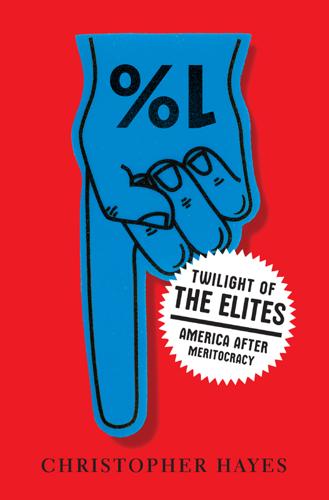
Twilight of the Elites: America After Meritocracy
by
Chris Hayes
Published 11 Jun 2012
A publication could devote itself entirely to reporting truthfully on, say, the allegations and charges of sexual assault against Assange, and yet it’s hard to imagine Assange would simply tip his cap to them for being “truthful.” If WikiLeaks’ exposure of the American security state shows the possibilities of Assange’s vision, its decision to post a massive trove of e-mails and documents from climate scientists at the University of East Anglia’s Climate Research Unit shows its limitation. The ten years’ worth of private e-mail correspondence between climate scientists within UEA and elsewhere revealed a group of academics who viewed themselves as under siege from well-funded and disingenuous critics, not to mention a group contemptuous and defensive toward their outside skeptics—not necessarily a flattering picture.
…
The frenzy in the conservative media occasioned mainstream outlets to also pick up the story, culminating with all three nightly network newscasts reporting the most damning snippets of the stolen e-mails. That attention then prompted no less than six official inquiries into the scientists’ conduct. The University of East Anglia, Penn State, the British House of Commons’ Science and Technology Committee, the British Royal Society, and even the U.S. Department of Commerce’s inspector general all sifted through the e-mails looking for evidence of malfeasance, deception, and misconduct. Every single one of the inquiries cleared the scientists of any scientific malpractice.
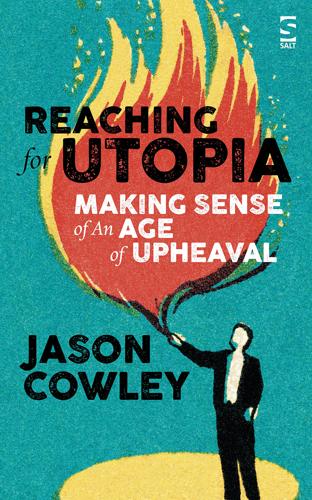
Reaching for Utopia: Making Sense of an Age of Upheaval
by
Jason Cowley
Published 15 Nov 2018
The early McEwan was no pornographer: he already wrote too well, his intentions were too serious, and his fictions, despite their splatter effects, were really about the disturbed imagination and about power – the power parents have over children, a brother has over a sister, a man over a woman, and the state has over the individual. Many of these early stories, which he wrote under the guidance of Malcolm Bradbury as the first student of creative writing at the University of East Anglia (UEA), were experiments in form: the interior monologue, the fractured or unreliable confession. Yet those stories, with their insistent linking of sex with death, were mostly chilling. Love was absent from them, as if their very bleakness were an expression of an entire, despairing world-view.
…
Even after you have finished the book, many days later, you find you can’t stop thinking about it so beguiling is its effect. * * * Born in Nagasaki in 1954, Kazuo Ishiguro came with his parents to live in England at the age of five. After working as a musician and then studying creative writing under Malcolm Bradbury at the University of East Anglia, he published his first novel, A Pale View of Hills (1982), which was set in England and a war-devastated Nagasaki, when he was twenty-eight. His second, the subtle and melancholy An Artist of the Floating World (again set in Japan, just after the war), won the Whitbread Book of the Year award in 1986.
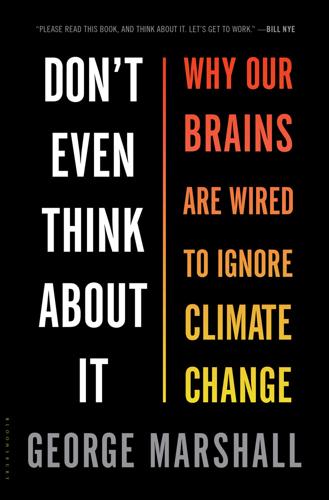
Don't Even Think About It: Why Our Brains Are Wired to Ignore Climate Change
by
George Marshall
Published 18 Aug 2014
The Canadian Broadcasting Corporation, forced to adjudicate, mandated the term “oil sands” in its reporting on the grounds that this is “more accurate because the substance refined from the extracted bitumen is oil.” One campaigner wryly commented that on this basis we should call tomatoes “ketchup.” The most effective and deliberate linguistic framing occurred in November 2009 when the server of the Climate Research Unit of the University of East Anglia was hacked into and fragments from a thousand e-mails were pieced together by climate deniers into a grand narrative of conspiracy, manipulation, and suppression of dissent. They dully dubbed it Climategate (the rival term Climaquiddick never took off), and within a week this new word had appeared more than nine million times across the Internet.
…
Not surprisingly, Morano thrives in the sound bite debate format beloved of live television and is promoted to the media by his employers, the Committee for a Constructive Tomorrow (CFACT), as a “credentialed counter guest” who will “offer a lively, fair and balanced discussion.” There is no question that he makes great debate television using his remarkable recall to gun down opponents with a blast of citations. Andrew Watson from the University of East Anglia Climate Research Unit was so wound up after a live television debate with Morano that he forgot that his microphone was still on and could be very clearly heard saying, “Christ, what an arsehole.” Morano loves this: “Sure,” he says, “Morano’s an A-HOLE!” Morano’s primary strategy is to play the enemy narrative and to discredit individual climate scientists.
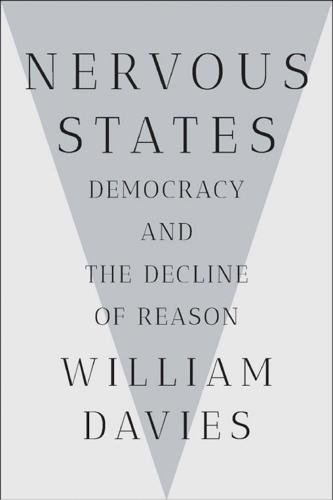
Nervous States: Democracy and the Decline of Reason
by
William Davies
Published 26 Feb 2019
Meanwhile, more and more information is revealed about public figures, to the point where it becomes virtually impossible to judge them on the basis of their public words alone. Social media archives and email leaks allow the world to view and criticize their behavior, whether or not it is obviously relevant to their public status and credibility. The email hacking scandal known as “Climategate” saw thousands of emails being leaked from the University of East Anglia Climate Research Unit in 2009–11, aimed at undermining both the authority of climate science but also the neutrality and objectivity of climate scientists themselves. This form of trolling follows the logic of encryption and interception, and harnesses them as weapons of cultural war. The enemy is rendered as transparent as possible, while the perpetrator remains opaque.
…
Kennedy International Airport, New York, x, xiii, 41 Johns Hopkins University, 176 Jones, Alexander, 131 Kant, Immanuel, 128, 130 Kemelmacher-Shlizerman, Ira, 188 Kennedy Jr., Robert, 23 Kepler, Johannes, 35 Keynes, John Maynard, 165 King Jr., Martin Luther, 21, 224 knowledge economy, 84, 85, 88, 151–2, 217 known knowns, 132, 138 Koch, Charles and David, 154, 164, 174 Korean War (1950–53), 178 Kraepelin, Emil, 139 Kurzweil, Ray, 183–4 Labour Party, 5, 6, 65, 80, 81, 221 Lagarde, Christine, 64 Le Bon, Gustave, 8–12, 13, 15, 16, 20, 24, 25, 38 Le Pen, Marine, 27, 79, 87, 92, 101–2 Leadbeater, Charles, 84 Leeds, West Yorkshire, 85 Leicester, Leicestershire, 85 Leviathan (Hobbes), 34, 39, 45 liberal elites, 20, 58, 88, 89, 161 libertarianism, 15, 151, 154, 158, 164, 173, 196, 209, 226 Liberty Fund, 158 Libya, 143 lie-detection technology, 136 life expectancy, 62, 68–71, 72, 92, 100–101, 115, 224 Lindemann, Frederick Alexander, 1st Viscount Cherwell, 138 Lloyds Bank, 29 London, England bills of mortality, 68–71, 75, 79–80, 81, 89, 127 Blitz (1940–41), 119, 143, 180 EU referendum (2016), 85 Great Fire (1666), 67 Grenfell Tower fire (2017), 10 and gross domestic product (GDP), 77, 78 housing crisis, 84 insurance sector, 59 knowledge economy, 84 life expectancy, 100 newspapers, early, 48 Oxford Circus terror scare (2017), ix–x, xiii, 41 plagues, 67–71, 75, 79–80, 81, 89, 127 Unite for Europe march (2017), 23 London School of Economics (LSE), 160 loss aversion, 145 Louis XIV, King of France, 73, 127 Louisiana, United States, 151, 221 Ludwig von Mises Institute, 154 MacLean, Nancy, 158 Macron, Emmanuel, 33 mainstream media, 197 “Make America Great Again,” 76, 145 Manchester, England, 85 Mann, Geoff, 214 maps, 182 March For Our Lives (2018), 21 March for Science (2017), 23–5, 27, 28, 210, 211 marketing, 14, 139–41, 143, 148, 169 Mars, 175, 226 Marxism, 163 Massachusetts Institute of Technology (MIT), 179 Mayer, Jane, 158 McCarthy, Joseph, 137 McGill Pain Questionnaire, 104 McKibben, William “Bill,” 213 Megaface, 188–9 memes, 15, 194 Menger, Carl, 154 mental illness, 103, 107–17, 139 mercenaries, 126 Mercer, Robert, 174, 175 Mexico, 145 Million-Man March (1995), 4 mind-reading technology, 136 see also telepathy Mirowski, Philip, 158 von Mises, Ludwig, 154–63, 166, 172, 173 Missing Migrants Project, 225 mobilization, 5, 7, 126–31 and Corbyn, 81 and elections, 81, 124 and experts, 27–8 and Internet, 15 and Le Bon’s crowd psychology, 11, 12, 16, 20 and loss, 145 and Napoleonic Wars, xv, 127–30, 141, 144 and Occupy movement, 5 and populism, 16, 22, 60 and violence, opposition to, 21 Moniteur Universel, Le, 142 monopoly on violence, 42 Mont Pelerin Society, 163, 164 moral emotion, 21 morphine, 105 multiculturalism, 84 Murs, Oliver “Olly,” ix Musk, Elon, 175, 176, 178, 183, 226 Nanchang, Jiangxi, 13 Napoleonic Wars (1803–15), 126–30 chappe system, 129, 182 and conscription, 87, 126–7, 129 and disruption, 170–71, 173, 174, 175, 226 and great leader ideal, 146–8 and intelligence, 134 and mobilization, xv, 126–30, 141, 144 and nationalism, 87, 128, 129, 144, 183, 211 and propaganda, 142 Russia, invasion of (1812), 128, 133 Spain, invasion of (1808), 128 National Aeronautics and Space Administration (NASA), 23, 175 National Audit Office (NAO), 29–30 national citizenship, 71 National Defense Research Committee, 180 National Health Service (NHS), 30, 93 National Park Service, 4 National Security Agency (NSA), 152 national sovereignty, 34, 53 nationalism, 87, 141, 210–12 and conservatism, 144 and disempowerment, 118–19 and elites, 22–3, 60–61, 145 ethnic, 15 and health, 92, 211–12, 224 and imagined communities, 87 and inequality, 78 and loss, 145 and markets, 167 and promises, 221 and resentment, 145, 197, 198 and war, 7, 20–21, 118–19, 143–6, 210–11 nativism, 61 natural philosophy, 35–6 nature, 86 see also environment Nazi Germany (1933–45), 137, 138, 154 Netherlands, 48, 56, 129 Neurable, 176 neural networking, 216 Neuralink, 176 neurasthenia, 139 Neurath, Otto, 153–4, 157, 160 neurochemistry, 108, 111, 112 neuroimaging, 176–8, 181 Nevada, United States, 194 new atheism, 209 New Orleans, Louisiana, 151 New Right, 164 New York, United States and climate change, 205 and gross domestic product (GDP), 78 housing crisis, 84 JFK Airport terror scare (2016), x, xiii, 41 knowledge economy, 84 September 11 attacks (2001), 17, 18 New York Times, 3, 27, 85 newspapers, 48, 71 Newton, Isaac, 35 Nietzsche, Friedrich, 217 Nixon, Robert, 206 no-platforming, 22, 208 Nobel Prize, 158–9 non-combatants, 43, 143, 204 non-violence, 224 North Atlantic Treaty Organization (NATO), 123, 145, 214 North Carolina, United States, 84 Northern Ireland, 43, 85 Northern League, 61 Northern Rock, 29 Norwich, Norfolk, 85 nostalgia, xiv, 143, 145, 210, 223 “Not in my name,” 27 nuclear weapons, 132, 135, 137, 180, 183, 192, 196, 204 nudge techniques, 13 Obama, Barack, 3, 24, 76, 77, 79, 158, 172 Obamacare, 172 objectivity, xiv, 13, 75, 136, 223 and crowd-based politics, 5, 7, 24–5 and death, 94 and Descartes, 37 and experts, trust in, 28, 32, 33, 51, 53, 64, 86, 89 and Hayek, 163, 164, 170 and markets, 169, 170 and photography, 8 and Scientific Revolution, 48, 49 and statistics, 72, 74, 75, 82, 88 and telepathic communication, 179 and war, 58, 125, 134, 135, 136, 146 Occupy movement, 5, 10, 24, 61 Oedipus complex, 109 Office for National Statistics, 63, 133 Ohio, United States, 116 oil crisis (1973), 166 “On Computable Numbers” (Turing), 181 On War (Clausewitz), 130 Open Society and Its Enemies, The (Popper), 171 opiates, 105, 116, 172–3 opinion polling, 65, 80–81, 191 Orbán, Viktor, 87, 146 Organisation for Economic Co-operation and Development (OECD), 72 Oxford, Oxfordshire, 85 Oxford Circus terror scare (2017), ix–x, xiii, 41 Oxford University, 56, 151 OxyContin, 105, 116 pacifism, 8, 20, 44, 151 pain, 102–19, 172–3, 224 see also chronic pain painkillers, 104, 105, 116, 172–3 Palantir, 151, 152, 175, 190 parabiosis, 149 Paris climate accord (2015), 205, 207 Paris Commune (1871), 8 Parkland attack (2018), 21 Patriot Act (2001), 137 Paul, Ronald, 154 PayPal, 149 Peace of Westphalia (1648), 34, 53 peer reviewing, 48, 139, 195, 208 penicillin, 94 Pentagon, 130, 132, 135, 136, 214, 216 pesticides, 205 Petty, William, 55–9, 67, 73, 85, 167 pharmacology, 142 Pielke Jr., Roger, 24, 25 Piketty, Thomas, 74 Pinker, Stephen, 207 plagues, 56, 67–71, 75, 79–80, 81, 89, 95 pleasure principle, 70, 109, 110, 224 pneumonia, 37, 67 Podemos, 5, 202 Poland, 20, 34, 60 Polanyi, Michael, 163 political anatomy, 57 Political Arithmetick (Petty), 58, 59 political correctness, 20, 27, 145 Popper, Karl, 163, 171 populism xvii, 211–12, 214, 220, 225–6 and central banks, 33 and crowd-based politics, 12 and democracy, 202 and elites/experts, 26, 33, 50, 152, 197, 210, 215 and empathy, 118 and health, 99, 101–2, 224–5 and immediate action, 216 in Kansas (1880s), 220 and markets, 167 and private companies, 174 and promises, 221 and resentment, 145 and statistics, 90 and unemployment, 88 and war, 148, 212 Porter, Michael, 84 post-traumatic stress disorder (PTSD), 111–14, 117, 209 post-truth, 167, 224 Potsdam Conference (1945), 138 power vs. violence, 19, 219 predictive policing, 151 presidential election, US (2016), xiv and climate change, 214 and data, 190 and education, 85 and free trade, 79 and health, 92, 99 and immigration, 79, 145 and inequality, 76–7 and Internet, 190, 197, 199 “Make America Great Again,” 76, 145 and opinion polling, 65, 80 and promises, 221 and relative deprivation, 88 and Russia, 199 and statistics, 63 and Yellen, 33 prisoners of war, 43 promises, 25, 31, 39–42, 45–7, 51, 52, 217–18, 221–2 Propaganda (Bernays), 14–15 propaganda, 8, 14–16, 83, 124–5, 141, 142, 143 property rights, 158, 167 Protestantism, 34, 35, 45, 215 Prussia (1525–1947), 8, 127–30, 133–4, 135, 142 psychiatry, 107, 139 psychoanalysis, 107, 139 Psychology of Crowds, The (Le Bon), 9–12, 13, 15, 16, 20, 24, 25 psychosomatic, 103 public-spending cuts, 100–101 punishment, 90, 92–3, 94, 95, 108 Purdue, 105 Putin, Vladimir, 145, 183 al-Qaeda, 136 quality of life, 74, 104 quantitative easing, 31–2, 222 quants, 190 radical statistics, 74 RAND Corporation, 183 RBS, 29 Reagan, Ronald, 15, 77, 154, 160, 163, 166 real-time knowledge, xvi, 112, 131, 134, 153, 154, 165–70 Reason Foundation, 158 Red Vienna, 154, 155 Rees-Mogg, Jacob, 33, 61 refugee crisis (2015–), 60, 225 relative deprivation, 88 representative democracy, 7, 12, 14–15, 25–8, 61, 202 Republican Party, 77, 79, 85, 154, 160, 163, 166, 172 research and development (R&D), 133 Research Triangle, North Carolina, 84 resentment, 5, 226 of elites/experts, 32, 52, 61, 86, 88–9, 161, 186, 201 and nationalism/populism, 5, 144–6, 148, 197, 198 and pain, 94 Ridley, Matt, 209 right to remain silent, 44 Road to Serfdom, The (Hayek), 160, 166 Robinson, Tommy, ix Roosevelt, Franklin Delano, 52 Royal Exchange, 67 Royal Society, 48–52, 56, 68, 86, 133, 137, 186, 208, 218 Rumsfeld, Donald, 132 Russian Empire (1721–1917), 128, 133 Russian Federation (1991–) and artificial intelligence, 183 Gerasimov Doctrine, 43, 123, 125, 126 and information war, 196 life expectancy, 100, 115 and national humiliation, 145 Skripal poisoning (2018), 43 and social media, 15, 18, 199 troll farms, 199 Russian Revolution (1917), 155 Russian SFSR (1917–91), 132, 133, 135–8, 155, 177, 180, 182–3 safe spaces, 22, 208 Sands, Robert “Bobby,” 43 Saxony, 90 scarlet fever, 67 Scarry, Elaine, 102–3 scenting, 135, 180 Schneier, Bruce, 185 Schumpeter, Joseph, 156–7, 162 Scientific Revolution, 48–52, 62, 66, 95, 204, 207, 218 scientist, coining of term, 133 SCL, 175 Scotland, 64, 85, 172 search engines, xvi Second World War, see World War II securitization of loans, 218 seismology, 135 self-employment, 82 self-esteem, 88–90, 175, 212 self-harm, 44, 114–15, 117, 146, 225 self-help, 107 self-interest, 26, 41, 44, 61, 114, 141, 146 Semi-Automatic Ground Environment (SAGE), 180, 182, 200 sentiment analysis, xiii, 12–13, 140, 188 September 11 attacks (2001), 17, 18 shell shock, 109–10 Shrecker, Ted, 226 Silicon Fen, Cambridgeshire, 84 Silicon Valley, California, xvi, 219 and data, 55, 151, 185–93, 199–201 and disruption, 149–51, 175, 226 and entrepreneurship, 149–51 and fascism, 203 and immortality, 149, 183–4, 224, 226 and monopolies, 174, 220 and singularity, 183–4 and telepathy, 176–8, 181, 185, 186, 221 and weaponization, 18, 219 singularity, 184 Siri, 187 Skripal poisoning (2018), 43 slavery, 59, 224 smallpox, 67 smart cities, 190, 199 smartphone addiction, 112, 186–7 snowflakes, 22, 113 social indicators, 74 social justice warriors (SJWs), 131 social media and crowd psychology, 6 emotional artificial intelligence, 12–13, 140–41 and engagement, 7 filter bubbles, 66 and propaganda, 15, 18, 81, 124 and PTSD, 113 and sentiment analysis, 12 trolls, 18, 20–22, 27, 40, 123, 146, 148, 194–8, 199, 209 weaponization of, 18, 19, 22, 194–5 socialism, 8, 20, 154–6, 158, 160 calculation debate, 154–6, 158, 160 Socialism (Mises), 160 Society for Freedom in Science, 163 South Africa, 103 sovereignty, 34, 53 Soviet Russia (1917–91), 132, 133, 135–8, 177, 180, 182–3 Spain, 5, 34, 84, 128, 202 speed of knowledge, xvi, 112, 124, 131, 134, 136, 153, 154, 165–70 Spicer, Sean, 3, 5 spy planes, 136, 152 Stalin, Joseph, 138 Stanford University, 179 statactivism, 74 statistics, 62–91, 161, 186 status, 88–90 Stoermer, Eugene, 206 strong man leaders, 16 suicide, 100, 101, 115 suicide bombing, 44, 146 superbugs, 205 surveillance, 185–93, 219 Sweden, 34 Switzerland, 164 Sydenham, Thomas, 96 Syriza, 5 tacit knowledge, 162 talking cure, 107 taxation, 158 Tea Party, 32, 50, 61, 221 technocracy, 53–8, 59, 60, 61, 78, 87, 89, 90, 211 teenage girls, 113, 114 telepathy, 39, 176–9, 181, 185, 186 terrorism, 17–18, 151, 185 Charlottesville attack (2017), 20 emergency powers, 42 JFK Airport terror scare (2016), x, xiii, 41 Oxford Circus terror scare (2017), ix–x, xiii, 41 September 11 attacks (2001), 17, 18 suicide bombing, 44, 146 vehicle-ramming attacks, 17 war on terror, 131, 136, 196 Thames Valley, England, 85 Thatcher, Margaret, 154, 160, 163, 166 Thiel, Peter, 26, 149–51, 153, 156, 174, 190 Thirty Years War (1618–48), 34, 45, 53, 126 Tokyo, Japan, x torture, 92–3 total wars, 129, 142–3 Treaty of Westphalia (1648), 34, 53 trends, xvi, 168 trigger warnings, 22, 113 trolls, 18, 20–22, 27, 40, 123, 146, 148, 194–8, 199, 209 Trump, Donald, xiv and Bannon, 21, 60–61 and climate change, 207 and education, 85 election campaign (2016), see under presidential election, US and free trade, 79 and health, 92, 99 and immigration, 145 inauguration (2017), 3–5, 6, 9, 10 and inequality, 76–7 “Make America Great Again,” 76, 145 and March for Science (2017), 23, 24, 210 and media, 27 and opinion polling, 65, 80 and Paris climate accord, 207 and promises, 221 and relative deprivation, 88 and statistics, 63 and Yellen, 33 Tsipras, Alexis, 5 Turing, Alan, 181, 183 Twitter and Corbyn’s rallies, 6 and JFK Airport terror scare (2016), x and Oxford Circus terror scare (2017), ix–x and Russia, 18 and sentiment analysis, 188 and trends, xvi and trolls, 194, 195 Uber, 49, 185, 186, 187, 188, 191, 192 UK Independence Party, 65, 92, 202 underemployment, 82 unemployment, 61, 62, 72, 78, 81–3, 87, 88, 203 United Kingdom austerity, 100 Bank of England, 32, 33, 64 Blitz (1940–41), 119, 143, 180 Brexit (2016–), see under Brexit Cameron government (2010–16), 33, 73, 100 Center for Policy Studies, 164 Civil Service, 33 climate-gate (2009), 195 Corbyn’s rallies, 5, 6 Dunkirk evacuation (1940), 119 education, 85 financial crisis (2007–9), 29–32, 100 first past the post, 13 general election (2015), 80, 81 general election (2017), 6, 65, 80, 81, 221 Grenfell Tower fire (2017), 10 gross domestic product (GDP), 77, 79 immigration, 63, 65 Irish hunger strike (1981), 43 life expectancy, 100 National Audit Office (NAO), 29 National Health Service (NHS), 30, 93 Office for National Statistics, 63, 133 and opiates, 105 Oxford Circus terror scare (2017), ix–x, xiii, 41 and pain, 102, 105 Palantir, 151 Potsdam Conference (1945), 138 quantitative easing, 31–2 Royal Society, 138 Scottish independence referendum (2014), 64 Skripal poisoning (2018), 43 Society for Freedom in Science, 163 Thatcher government (1979–90), 154, 160, 163, 166 and torture, 92 Treasury, 61, 64 unemployment, 83 Unite for Europe march (2017), 23 World War II (1939–45), 114, 119, 138, 143, 180 see also England United Nations, 72, 222 United States Bayh–Dole Act (1980), 152 Black Lives Matter, 10, 225 BP oil spill (2010), 89 Bush Jr. administration (2001–9), 77, 136 Bush Sr administration (1989–93), 77 Bureau of Labor, 74 Central Intelligence Agency (CIA), 3, 136, 151, 199 Charlottesville attack (2017), 20 Civil War (1861–5), 105, 142 and climate change, 207, 214 Clinton administration (1993–2001), 77 Cold War, see Cold War Defense Advanced Research Projects Agency (DARPA), 176, 178 Defense Intelligence Agency, 177 drug abuse, 43, 100, 105, 115–16, 131, 172–3 education, 85 Federal Bureau of Investigation (FBI), 137 Federal Reserve, 33 Fifth Amendment (1789), 44 financial crisis (2007–9), 31–2, 82, 158 first past the post, 13 Government Accountability Office, 29 gross domestic product (GDP), 75–7, 82 health, 92, 99–100, 101, 103, 105, 107, 115–16, 158, 172–3 Heritage Foundation, 164, 214 Iraq War (2003–11), 74, 132 JFK Airport terror scare (2016), x, xiii, 41 Kansas populists (1880s), 220 libertarianism, 15, 151, 154, 158, 164, 173 life expectancy, 100, 101 March For Our Lives (2018), 21 March for Science (2017), 23–5, 27, 28, 210 McCarthyism (1947–56), 137 Million-Man March (1995), 4 National Aeronautics and Space Administration (NASA), 23, 175 National Defense Research Committee, 180 National Park Service, 4 National Security Agency (NSA), 152 Obama administration (2009–17), 3, 24, 76, 77, 79, 158 Occupy Wall Street (2011), 5, 10, 61 and opiates, 105, 172–3 and pain, 103, 105, 107, 172–3 Palantir, 151, 152, 175, 190 Paris climate accord (2015), 205, 207 Parkland attack (2018), 21 Patriot Act (2001), 137 Pentagon, 130, 132, 135, 136, 214, 216 presidential election (2016), see under presidential election, US psychiatry, 107, 111 quantitative easing, 31–2 Reagan administration (1981–9), 15, 77, 154, 160, 163, 166 Rumsfeld’s “unknown unknowns” speech (2002), 132 Semi-Automatic Ground Environment (SAGE), 180, 182, 200 September 11 attacks (2001), 17, 18 Tea Party, 32, 50, 61, 221 and torture, 93 Trump administration (2017–), see under Trump, Donald unemployment, 83 Vietnam War (1955–75), 111, 130, 136, 138, 143, 205 World War I (1914–18), 137 World War II (1939–45), 137, 180 universal basic income, 221 universities, 151–2, 164, 169–70 University of Cambridge, 84, 151 University of Chicago, 160 University of East Anglia, 195 University of Oxford, 56, 151 University of Vienna, 160 University of Washington, 188 unknown knowns, 132, 133, 136, 138, 141, 192, 212 unknown unknowns, 132, 133, 138 “Use of Knowledge in Society, The” (Hayek), 161 V2 flying bomb, 137 vaccines, 23, 95 de Vauban, Sébastien Le Prestre, Marquis de Vauban, 73 vehicle-ramming attacks, 17 Vesalius, Andreas, 96 Vienna, Austria, 153–5, 159 Vietnam War (1955–75), 111, 130, 136, 138, 143, 205 violence vs. power, 19, 219 viral marketing, 12 virtual reality, 183 virtue signaling, 194 voice recognition, 187 Vote Leave, 50, 93 Wainright, Joel, 214 Wales, 77, 90 Wall Street, New York, 33, 190 War College, Berlin, 128 “War Economy” (Neurath), 153–4 war on drugs, 43, 131 war on terror, 131, 136, 196 Watts, Jay, 115 weaponization, 18–20, 22, 26, 75, 118, 123, 194, 219, 223 weapons of mass destruction, 132 wearable technology, 173 weather control, 204 “What Is An Emotion?”
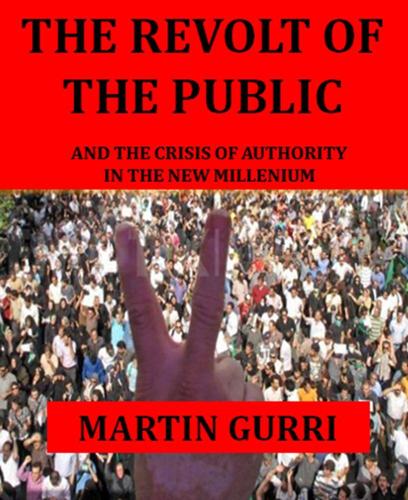
The Revolt of the Public and the Crisis of Authority in the New Millennium
by
Martin Gurri
Published 13 Nov 2018
For the purpose of this chapter, it should be enough for me to touch, however lightly, on two revealing incidents. The first began with a familiar ritual: the public, in control of the information sphere, maneuvered in a fashion utterly surprising to authority. On November 19, 2009, someone who had hacked thousands of emails from the Climatic Research Unit (CRU) of the University of East Anglia, Britain, released them to the public on an obscure Russian server. The names on the emails belonged to the most eminent climatologists involved in global warming research, and included many of the leading contributors to the United Nations’ Intergovernmental Panel on Climate Change (IPCC).
…
I grant that this, too, is hard to prove: there are no measurements of public trust in science before and after Climategate that I am aware of. There is no data going back to 1919. Existing surveys show a significant decline in trust,[108] yet I suspect they understate the case: many people, when asked about science, still think of Einstein rather than the Climatic Research Unit of the University of East Anglia. They fondly recall the solitary seeker after truth and fail to see the master bureaucrat. Only when focused on specific issues does the public admit, even to itself, the full measure of its distrust. People on the left believe that science is a tool of Big Business, that scientists are willing to poison us with genetically modified food and torture laboratory animals to earn a bigger profit for their paymasters.
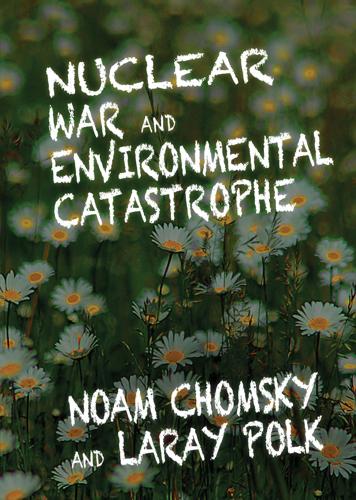
Nuclear War and Environmental Catastrophe
by
Noam Chomsky
and
Laray Polk
Published 29 Apr 2013
Call me crazy.” At the Heritage Foundation on December 6, 2011, he asserted, “there are questions about the validity of the science, evidenced by one university over in Scotland [sic] recently.” Huntsman’s remarks also coincided with an anonymous hacker’s release of stolen e-mails from the University of East Anglia and COP17 proceedings in Durban, South Africa. Evan McMorris-Santoro, “Jon Huntsman’s Climate Change Flip Flop Explained,” TalkingPointsMemo.com, December 6, 2011; Justin Gillis and Leslie Kaufman, “New Trove of Stolen E-mails from Climate Scientists is Released,” New York Times, November 22, 2011.
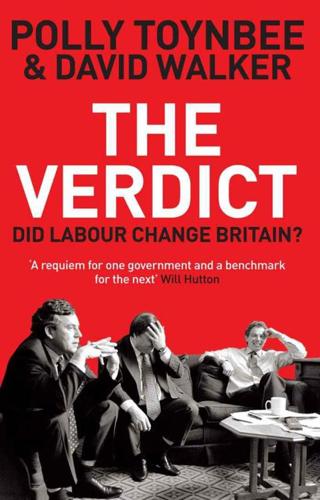
The Verdict: Did Labour Change Britain?
by
Polly Toynbee
and
David Walker
Published 6 Oct 2011
If Labour’s generosity went unthanked by arts and science, the reason was ministers’ insistence on a pro quo for the many quids they put in. What scientists, academics, clinicians and theatre directors like is freedom – to spend as the muse or the fire of knowledge leads them. Scientific autonomy, a precious principle, took a heavy hit when emails among climate scientists at the University of East Anglia were hacked, and the price of their knowledge was shown to be a clubby arrogance about letting opponents see unhelpful evidence. Self-regard in clubs was not confined to science. Here was something that ought to have concerned Lord Triesman – the Labour Party apparatchik and minister turned chair of the Football Association – but he stayed quiet before departing in disgrace in 2010.
…
Index 9/11 attacks, 1, 2, 3, 4, 5, 6, 7, 8, 9 A levels, 1 Aberdeen, 1 abortion, 1, 2, 3 Abuhamza, Junaid, 1 AC Milan, 1 Acme Whistles, 1 Action for Children, 1 Adams, Douglas, 1 Adonis, Andrew, 1 Advisory, Conciliation and Arbitration Service, 1 Afghanistan, 1, 2, 3, 4, 5, 6, 7, 8, 9 Helmand province, 1, 2, 3, 4, 5, 6 Africa, 1, 2, 3 after-school clubs, 1, 2, 3 Age of Stupid, 1, 2 Ahern, Bertie, 1 Ahmadinejad, Mahmoud, 1 Ainsworth, Bob, 1 aircraft-carriers, 1 Al Qaeda, 1, 2, 3, 4 Albania, 1 alcohol consumption, 1, 2 and crime, 1, 2, 3 Alexander, Professor Robin, 1 Alzheimer’s disease, 1 Amritsar massacre, 1 Amsterdam summit, 1, 2 Anderson, Lance Corporal George, 1 animal welfare, 1, 2 anti-social behaviour orders (Asbos), 1, 2, 3 apprenticeships, 1, 2 Arafat, Yasser, 1 archaeological artefacts, 1 Arctic Monkeys, 1 Armistice Day, 1 arms trade, 1, 2 Armstrong, Franny, 1 arts budget, 1 Ashmolean Museum, 1 asthma, 1, 2 asylum seekers, 1, 2, 3, 4 Attenborough, Richard, 1 Attlee, Clement, 1 August, Kathy, 1 Austin, Richard, 1 Australia, 1, 2, 3 Austria, 1 autism, 1 aviation, 1 Aylesbury, 1 Baghdad, 1 Baker, Mike, 1 Bakewell, Joan, 1 Bali, 1 Balls, Ed, 1, 2, 3 Bank of England, 1, 2 Barber, Sir Michael, 1 Barker, Kate, 1 Barnardo’s, 1 Barnet Hospital, 1 Barton, Geoff, 1 Basildon and Thurrock Hospital, 1 Basra, 1, 2, 3 Bean, Richard, 1 Beattie, Captain Doug, 1 Beckham, David, 1 Belarus, 1 Belfast, 1, 2, 3 Belgium, 1 Belize, 1 Benn, Hilary, 1, 2 Bennett, Alan, 1 Berlusconi, Silvio, 1 Beveridge, William, 1 Bichard, Sir Michael, 1 Big Brother, 1, 2 Bilbao, 1 Billington, Michael, 1 bin Laden, Osama, 1, 2 Bingham, Lord, 1 Birk, Andy, 1, 2, 3 Birmingham, 1, 2, 3, 4, 5 Aston, 1, 2, 3 Longbridge car plant, 1 and transport policy, 1, 2 birth rate, 1 Black Wednesday, 1 Blackburn, 1, 2 Blackpool, 1 Blair, Cherie, 1 Blair, Tony, 1, 2 and asylum seekers, 1, 2 and child poverty, 1, 2, 3, 4 and climate change, 1, 2 and constitutional reform, 1, 2 and crime, 1, 2, 3 and cultural policies, 1, 2, 3, 4, 5 and economic policies, 1, 2, 3, 4, 5 and education, 1, 2, 3, 4, 5, 6 and Europe, 1 and fairness, 1, 2, 3 foreign policy and Iraq war, 1, 2, 3, 4, 5, 6, 7, 8 and health, 1, 2, 3, 4, 5 and Northern Ireland, 1 and Princess Diana, 1, 2 public apologies, 1 and public sector reform, 1, 2 and religion, 1 and ‘respect’ agenda, 1 style of government, 1 technophobia, 1, 2 and transport, 1, 2 Blears, Hazel, 1, 2 Bloody Sunday inquiry, 1 Bloomberg, Michael, 1 Bloxham, Tom, 1 Blunkett, David, 1, 2 and crime, 1, 2, 3, 4 and education, 1, 2, 3, 4, 5, 6 and migration, 1 BMW, 1 Bobbitt, Philip, 1 Boddingtons’ brewery, 1 Bolton, 1 Boothroyd, Betty, 1 Bosnia, 1 Boston, Lincolnshire, 1, 2, 3, 4 Bowman, Philip, 1 Boyle, Danny, 1 Bradford, 1, 2, 3, 4, 5 Bradford and Bingley, 1 Bradshaw, Ben, 1 Branson, Richard, 1 Brassed Off, 1 Brazil, 1 breastfeeding, 1, 2 Brent, 1 Brighton, 1, 2 Brindle, David, 1 Bristol, 1 Bristol Royal Infirmary, 1 Britain’s Got Talent, 1 British Airways strikes, 1 British Association of Aesthetic Plastic Surgeons, 1 British Energy, 1 British Film Institute, 1 British Medical Association, 1, 2 British Museum, 1 British National Party (BNP), 1, 2, 3 Brixton, 1 broadband services, 1 Brown, Gordon, 1, 2, 3, 4 and climate change, 1, 2, 3 and constitutional reform, 1 and crime, 1, 2, 3 and cultural policies, 1, 2, 3, 4, 5, 6 and defence policy, 1 and economic policies, 1, 2, 3, 4, 5, 6, 7, 8, 9 and education, 1, 2 and Europe, 1 and fairness, 1 and foreign policy, 1, 2, 3, 4, 5, 6, 7 and G20 summit, 1, 2 and health, 1 and pensions, 1, 2 and PFI, 1 and public sector reform, 1 style of government, 1, 2 and tax credits, 1, 2 and transport, 1 Bruges, 1 Brussels, 1, 2, 3, 4, 5 Bryant, Chris, 1 BSE (mad cow disease), 1, 2 Buffini, Damon, 1 Bulgaria, 1 Bulger, Jamie, 1 Buncefield explosion, 1 Burgess, Graham, 1 Burma, 1, 2 Burnham, Andy, 1 buses, 1, 2 Bush, George W., 1, 2, 3, 4 business, 1 company governance, 1 competition policy, 1 see also manufacturing Business Links, 1, 2 Cable, Vince, 1 Cadbury, 1 Caine, Judy, 1 Callaghan, James, 1 Cameron, David, 1, 2, 3, 4 Campaign for Real Ale, 1 Campbell, Alastair, 1, 2 Campbell, Naomi, 1 Canada, 1 cancer research, 1 cannabis, 1, 2 Cannock Chase Hospital, 1 Capel Manor College, 1 Carbon Trust, 1 Cardiff, 1, 2 Millennium Stadium, 1 see also Welsh assembly Care Quality Commission, 1, 2, 3 carers, 1 Carousel children’s centre, 1 Casey, Louise, 1, 2 casinos, 1 Castle, Barbara, 1 cataracts, 1, 2 Cator Park School, 1 CCTV, 1, 2, 3 celebrity culture, 1 Central Office of Information, 1 Ceuta, 1 Charity Commission, 1 Charleroi, 1 Chase Farm Hospital, 1, 2, 3 Cheltenham, 1 Cheney, Dick, 1 Chicago, 1 Chilcot inquiry, 1, 2, 3, 4 Child Maintenance and Enforcement Commission, 1 child poverty, 1, 2, 3, 4, 5, 6, 7, 8, 9, 10, 11 Child Support Agency, 1 child trafficking, 1 Child Trust Funds, 1, 2 childcare, 1, 2, 3, 4, 5, 6 children, 1 in care, 1 and crime, 1, 2 and pre-school education, 1 and reading, 1, 2 and safety, 1 and targets, 1 children’s centres, 1, 2, 3 Chile, 1 China, 1, 2, 3, 4, 5, 6, 7 and foreign policy, 1, 2, 3, 4 Chinese cockle pickers, 1 Christian Voice, 1 Chumbawamba, 1 Church of England, 1 Churchill, Winston, 1 cigarette smoking, 1, 2, 3, 4, 5, 6 see also smoking ban citizenship curriculum, 1 City of London, 1, 2, 3, 4, 5, 6, 7 City of London police, 1 civil partnerships, 1 civil service, 1 Clapham Common, 1 Clapham Park estate, 1, 2 Clarke, Charles, 1 Clarke, Ken, 1, 2 Clarke, Michael, 1 Clarkson, Jeremy, 1, 2 ‘clean technologies’, 1 Cleveland Way, 1 climate change, 1, 2, 3, 4, 5 and transport and energy policies, 1 Climbié, Victoria, 1 Clinton, Bill, 1, 2, 3 Clitheroe, 1 cloning, 1 coal, 1 coalition government, 1, 2, 3, 4, 5 Cockermouth, 1 Cohen, Sir Ronnie, 1 Cole, Vanessa, 1 Collins, Colonel Tim, 1 Comer, Beryl, 1, 2, 3, 4 Common Agricultural Policy, 1, 2 community sentences, 1 Confederation of British Industry (CBI), 1, 2, 3, 4, 5, 6 conflict diamonds, 1 Congo, 1 Connelly, Peter (Baby P), 1 Connexions, 1, 2 Contactpoint database, 1 Cook, Robin, 1, 2 Cool Britannia, 1, 2 Cooper, Robert, 1 Cooper, Yvette, 1 Copenhagen summit, 1, 2, 3, 4, 5, 6 Corby, 1, 2 Corn Laws, repeal of, 1 Cornwall, 1, 2 Coronation Street, 1 coroners, 1 Corus, 1 Countryside Alliance, 1, 2 County Durham, 1 Coventry, 1, 2, 3 Cowley, Philip, 1 Cox, Brian, 1 Crawford, Texas, 1 creative industries, 1, 2 credit card debt, 1 Crewe and Nantwich by-election, 1 Crick, Bernard, 1 cricket, 1 Crime and Disorder Reduction Partnerships, 1 crime, 1 car crime, 1 cyber-crime, 1 and demography, 1, 2 and drugs, 1 gun crime, 1, 2 juvenile crime, 1, 2, 3 knife crime, 1, 2 organized crime, 1, 2, 3 street crime, 1 Criminal Records Bureau, 1 Cruddas, Jon, 1 Cullen, Janet, 1, 2, 3, 4 Cumner-Price, George, 1 cycling, 1, 2, 3 Cyprus, 1, 2 Daily Mail, 1, 2, 3, 4, 5 Daily Telegraph, 1 Darfur, 1 Darling, Alistair, 1, 2, 3 Darwen, 1, 2 Darzi, Lord (Ara), 1 Data Protection Act, 1, 2 Davies, Norman, 1 Davies, Ron, 1 Davis, David, 1 Dearlove, Sir Richard, 1 defence policy, 1, 2, 3, 4, 5 Delhi, 1 dementia, 1 demonstrations, policing of, 1 Demos, 1 Denham, John, 1 Denison, Steve, 1 Denmark, 1, 2 dentistry, 1 depression, 1 Derby, 1 devolution, 1, 2, 3, 4, 5, 6, 7 Dewar, Donald, 1, 2 diabetes, 1 Diana, Princess of Wales, 1, 2, 3 Dilnot, Andrew, 1 disabilities, 1, 2, 3, 4, 5 disarmament, 1 divorce rate, 1 DNA database, 1 Dobson, Frank, 1, 2 doctors consultants, 1 GPs, 1, 2, 3 night and weekend cover, 1 pay, 1, 2, 3 working hours, 1 domestic violence, 1, 2, 3, 4 Doncaster, 1, 2, 3 Dongworth, Averil, 1 Dorling, Professor Danny, 1, 2, 3 Drayson, Paul, 1 drones, 1 drug dealers, 1, 2 drugs, 1, 2, 3 Dublin, 1 Duffy, Bobby, 1 Dundee, 1 Dunn, John, 1 Dunwoody, Gwyneth, 1 EastEnders, 1 Ecclestone, Bernie, 1 ‘eco towns’, 1 ecstasy, 1 Edinburgh, 1, 2, 3 see also Scottish parliament Edlington, 1 education, 1 further education and training, 1, 2, 3, 4 higher education, 1, 2, 3, 4, 5, 6 nursery education, 1 productivity in, 1 pre-school education, 1 and selection, 1, 2 and social class, 1, 2 spending on, 1, 2 and targets, 1, 2, 3 Welsh Assembly and, 1 see also schools education action zones, 1 Education Maintenance Allowance, 1, 2, 3 e-government, 1, 2 Egypt, 1 electoral reform, 1, 2, 3 electricity generation, 1, 2 Elgar, Edward, 1 Elgin marbles, 1 Elizabeth, Queen, the Queen Mother, 1 Elizabeth II, Queen, 1, 2, 3 employee buy-outs, 1 employment, 1 flexible, and migration, 1 part-time, 1, 2 state and ‘parastate’, 1, 2 women and, 1, 2 working hours, 1, 2 energy policies, 1 English for Speakers of Other Languages, 1 English Heritage, 1 Enron, 1 Environment Agency, 1, 2 equalities legislation, 1, 2, 3 Equality and Human Rights Commission, 1, 2, 3 Ericsson, 1 ethnic minorities, 1 euro, 1, 2 Eurofighter, 1 European Court of Human Rights, 1 European Union, 1, 2 European Union Emission Trading Scheme, 1 Eurostar, 1 Exeter, 1 Fairtrade products, 1 Falconer, Charlie, 1 Falklands War, 1 Family Intervention Projects (FIPs), 1 Farlow, Andrew, 1 farmers, 1, 2 fashion, 1 Feinstein, Professor Leon, 1, 2 Financial Services Authority, 1 financial services, 1, 2, 3 Financial Times, 1 Finland, 1 fire and rescue service, 1 fiscal stimulus, 1 floods, 1, 2, 3, 4 Florence, 1 flu, 1, 2 swine flu, 1, 2 Folkestone, 1 food and drink, 1, 2 foot-and-mouth disease, 1, 2 football, 1, 2, 3 Football Association, 1 forced marriages, 1 foreign policy, 1, 2, 3 France, 1, 2, 3, 4 economy and business, 1, 2 and education, 1, 2 and health, 1, 2, 3 Frankfurt am Main, 1 Franklin, Tom, 1 Frears, Stephen, 1 free speech, 1, 2 freedom of information, 1, 2, 3, 4, 5, 6 Freud, Lord, 1 Full Monty, The, 1 Future Jobs Fund, 1 G20 summit, 1, 2, 3 Gainsborough, 1 Galbraith, J.K., 1 Gallagher, Liam, 1 Gallagher, Noel, 1 gambling, 1 gangmasters, 1, 2 gas, 1 Gates, Bill, 1 Gateshead, 1 Gaza, 1 GCHQ, 1 GCSEs, 1, 2, 3, 4 Gehry, Frank, 1 Geldof, Bob, 1 gender reassignment, 1 General Teaching Council, 1 genetically modified crops, 1 Germany, 1, 2, 3, 4, 5, 6, 7 economy and business, 1, 2, 3, 4 and education, 1, 2 and health, 1, 2 Ghana, 1 Ghandi’s curry house, 1 Ghent, 1 Gladstone, William Ewart, 1, 2 Glaister, Professor Stephen, 1 Glasgow, 1, 2, 3, 4 Gleneagles summit, 1, 2, 3, 4, 5 globalization, 1, 2, 3, 4, 5, 6, 7 and crime, 1 and foreign policy, 1, 2, 3 and inequality, 1 and migration, 1, 2 Gloucester, 1 Goldacre, Ben, 1 Good Friday agreement, 1 Goodwin, Sir Fred, 1 Goody, Jade, 1 Gormley, Antony, 1 Gould, Philip, 1 grandparents, and childcare, 1 Gray, Simon, 1 Great Yarmouth, 1 Greater London Authority, 1, 2 Greater London Council, 1 green spaces, 1 Greenberg, Stan, 1 Greengrass, Paul, 1 Greenspan, Alan, 1, 2 Greenwich, 1 Gregg, Paul, 1 Guardian, 1, 2, 3 Guizot, François, 1 Gulf of Mexico oil spill, 1 Gummer, John, 1 Gurkhas, 1 Guthrie of Craigiebank, Lord, 1 Guy’s and St Thomas’s Hospital, 1 habeas corpus, suspension of, 1 Hacienda Club, 1 Hackney, 1 Hale, Baroness Brenda, 1 Hallé Orchestra, 1 Ham, Professor Chris, 1 Hamilton, Lewis, 1 Hammersmith Hospital, 1 Hammond, Richard, 1 Hardie, Keir, 1 Hardy, Thea, 1 Haringey, 1, 2 Harman, Harriet, 1 Harris of Peckham, Lord, 1 Harrison, PC Dawn, 1, 2 Harrow School, 1 Hartlepool, 1, 2 Hastings, 1, 2 Hatfield rail crash, 1 Hatt family, 1, 2, 3, 4 health, 1 and private sector, 1, 2 and social class, 1 spending on, 1, 2 Health Action Zones, 1 Health and Safety Executive, 1 Heathcote, Paul, 1 Heathrow airport, 1, 2, 3, 4 Hellawell, Keith, 1 Hennessy, Professor Peter, 1 Henry, Donna Charmaine, 1, 2, 3 heroin, 1 Hewitt, Patricia, 1, 2 Higgs, Sir Derek, 1 Hills, Professor John, 1, 2, 3 Hirst, Damien, 1 HMRC, 1, 2, 3 Hogg, John, 1, 2, 3 Hoggart, Richard, 1 Holly, Graham, 1 homelessness, 1, 2 Homerton Hospital, 1 homosexuality, 1, 2, 3 ‘honour’ killings, 1 Hoon, Geoff, 1 hospital-acquired infections, 1 hospitals and clinics, 1, 2, 3, 4 A&E units, 1, 2 closures, 1, 2, 3 foundation trusts, 1, 2, 3, 4, 5 and PFI, 1 House of Commons reforms, 1, 2 House of Lords reforms, 1, 2, 3, 4 housing market, 1, 2, 3 housing policies, 1, 2, 3, 4, 5 Howe, Elspeth, 1 Hoxton, 1 Huddersfield, 1 Hudson, Joseph, 1 Hull, 1, 2, 3 Human Rights Act, 1, 2, 3, 4, 5, 6, 7, 8, 9, 10 Humber Bridge, 1 hunting ban, 1 Hussein, Saddam, 1, 2, 3, 4 Hutton, John, 1 Hutton, Will, 1, 2 identity cards, 1, 2 If (Kipling), 1 Imperial War Museum North, 1 income inequalities, 1, 2, 3 gender pay gap, 1, 2 and high earners, 1 and social class, 1 Independent Police Complaints Commission (IPCC), 1 Independent Safeguarding Authority, 1 independent-sector treatment centres (ISTCs), 1 Index of Multiple Deprivation, 1 India, 1, 2, 3, 4, 5, 6 individual learning accounts, 1 inflation, 1 and housing market, 1, 2 International Criminal Court, 1 International Monetary Fund (IMF), 1, 2, 3 internet, 1, 2, 3 and crime, 1 and cyber-bullying, 1 file sharing, 1 gambling, 1 and sex crimes, 1 Iran, 1, 2, 3 Iraq, 1, 2, 3, 4, 5, 6, 7, 8, 9, 10, 11, 12, 13, 14, 15, 16 arms supplies, 1 Chilcot inquiry, 1, 2, 3, 4 and Territorial Army, 1 and WMD, 1 Ireland, 1, 2, 3 Irish famine, 1 Irvine of Lairg, Lord, 1, 2 Ishaq, Khyra, 1 Islamabad, 1 Isle of Man, 1 Isle of Wight, 1, 2 Israel, 1 Italy, 1, 2, 3 and football, 1 Ivory Coast, 1 Japan, 1, 2, 3, 4 Jenkins, Roy, 1, 2 Jerry Springer: The Opera, 1 Jobcentre Plus, 1, 2 John Lewis Partnership, 1, 2 Johnson, Alan, 1, 2, 3, 4 Johnson, Boris, 1, 2 Judge, Lord (Igor), 1 Judge, Professor Ken, 1 Julius, DeAnne, 1 jury trials, 1, 2 Kabul, 1 Kapoor, Anish, 1, 2 Karachi, 1 Karadžic, Radovan, 1 Kashmir, 1 Kaufman, Gerald, 1 Keegan, William, 1 Keep Britain Tidy, 1 Kelvingrove Art Gallery and Museum, 1 Kensit, Patsy, 1 Keynes, John Maynard, 1 Keys, Kenton, 1 Kidderminster Hospital, 1 King, Sir David, 1, 2 King, Mervyn, 1 King Edward VI School, 1 King’s College Hospital, 1 Kingsnorth power station, 1 Kirklees, 1 Knight, Jim, 1 knighthoods, 1 knowledge economy, 1 Kosovo, 1, 2, 3, 4 Kynaston, David, 1 Kyoto summit and protocols, 1, 2, 3 Labour Party membership, 1 Lacey, David, 1 Ladbroke Grove rail crash, 1 Lamb, General Sir Graeme, 1 Lambert, Richard, 1 landmines, 1 Lansley, Andrew, 1 lapdancing, 1 Las Vegas, 1 Lawrence, Stephen, 1 Lawson, Mark, 1 Layard, Professor Richard, 1 Le Grand, Professor Julian, 1 Lea, Ruth, 1 Lea Valley High School, 1, 2, 3, 4, 5, 6 Leahy, Sir Terry, 1, 2 learndirect, 1 Learning and Skills Council, 1 learning difficulties, 1, 2 learning mentors, 1 Leeds, 1, 2, 3, 4 legal reforms, 1 Leigh, Mike, 1 Lenon, Barnaby, 1 Lewes, 1 Lewisham, 1 Liberty, 1 licensing laws, 1, 2 life expectancy, 1, 2, 3, 4, 5 Life on Mars, 1 Lincoln, 1 Lindsell, Tracy, 1, 2 Lindsey oil refinery, 1 Lisbon Treaty, 1 Liverpool, 1, 2, 3, 4, 5, 6 Liverpool FC, 1 living standards, 1, 2 living wage campaign, 1, 2 Livingstone, Ken, 1, 2, 3, 4, 5 Livni, Tzipi, 1 Loaded magazine, 1 local government, 1, 2, 3 and elected mayors, 1 Lockerbie bomber, 1 London, 1, 2, 3, 4, 5, 6 bombings, 1, 2 congestion charge, 1, 2 detention of foreign leaders, 1 G20 protests, 1 Iraq war protests, 1, 2 mayoral election, 1, 2 and transport policy, 1, 2, 3 London Array wind farm, 1 Longannet, 1 Longfield, Anne, 1 Lord-Marchionne, Sacha, 1 Lorenzetti, Ambrogio, 1 lorry protests, 1, 2 Lowry Museum, 1 Lumley, Joanna, 1 Luton, 1, 2, 3, 4 Lyons, Sir Michael, 1 Macfadden, Julia, 1 Machin, Professor Stephen, 1, 2 Maclean, David, 1 Macmillan, Harold, 1 Macmillan, James, 1 McNulty, Tony, 1 Macpherson, Sir Nick, 1 Macpherson, Sir William, 1 McQueen, Alexander, 1 Madrid, 1, 2, 3 Major, John, 1, 2, 3, 4, 5, 6 Malaya, 1 Malloch Brown, Mark, 1 Manchester, 1, 2, 3, 4, 5, 6 club scene, 1, 2 and crime, 1, 2 Gorton, 1, 2, 3, 4, 5, 6 and local government, 1 and transport policy, 1, 2, 3 Manchester Academy, 1 Manchester United FC, 1, 2 Manchester University, 1 Mandelson, Peter, 1, 2 Manpower Services Commission, 1 manufacturing, 1, 2, 3 Margate, 1 ‘market for talent’ myth, 1 marriage rate, 1 Martin, Michael, 1 maternity and paternity leave, 1, 2 Mayfield, Charlie, 1 Medical Research Council, 1 mental health, 1, 2, 3, 4 mephedrone, 1 Metcalf, Professor David, 1 Metropolitan Police, 1, 2, 3 Mexico, 1, 2 MG Rover, 1 Michael, Alun, 1 Middlesbrough College, 1, 2 migration, 1, 2, 3, 4, 5, 6, 7, 8, 9, 10, 11 Milburn, Alan, 1, 2, 3, 4, 5 Miliband, David, 1, 2, 3, 4, 5, 6 Miliband, Ed, 1, 2, 3 Millennium Cohort Study, 1, 2 Millennium Dome, 1, 2, 3 Miloševic, Slobodan, 1 Milton Keynes, 1 minimum wage, 1, 2, 3, 4, 5, 6, 7 Mitchell, Senator George, 1 modern art, 1 Mohamed, Binyam, 1 Monbiot, George, 1 Moray, 1 Morecambe, 1, 2 Morecambe Bay cockle pickers, 1 Morgan, Piers, 1 Morgan, Rhodri, 1 mortgage interest relief, 1 Mosley, Max, 1 motor racing, 1 Mowlam, Mo, 1 Mozambique, 1 MPs’ expenses, 1, 2, 3, 4, 5 MRSA, 1 Mugabe, Robert, 1 Muijen, Matt, 1 Mulgan, Geoff, 1 Mullin, Chris, 1 Murdoch, Rupert, 1, 2, 3 Murphy, Richard, 1 museums and galleries, 1, 2, 3 music licensing, 1 Muslims, 1, 2, 3, 4, 5 mutualism, 1 Myners, Paul, 1 nanotechnology, 1, 2, 3 National Air Traffic Control System, 1 National Care Service, 1 national curriculum, 1 national debt, 1 National Forest, 1 National Health Service (NHS) cancer plan, 1 drugs teams, 1 and employment, 1, 2 internal market, 1 IT system, 1 league tables, 1 managers, 1, 2 NHS direct, 1 primary care, 1 productivity, 1, 2 and public satisfaction, 1 staff numbers and pay, 1 and targets, 1, 2, 3 waiting times, 1, 2, 3, 4, 5, 6, 7, 8 National Heart Forum, 1 National Institute for Health and Clinical Excellence (NICE), 1, 2 National Insurance, 1, 2, 3, 4, 5 National Lottery, 1, 2, 3 National Offender Management Service, 1 National Savings, 1 National Theatre, 1 Natural England, 1, 2 Nazio, Tiziana, 1 Neighbourhood Watch, 1 Netherlands, 1, 2 neurosurgery, 1 New Deal, 1, 2, 3, 4, 5, 6, 7 New Deal for Communities, 1, 2 New Forest, 1 Newcastle upon Tyne, 1, 2 Newham, 1, 2 newspapers, 1, 2, 3, 4, 5 Nigeria, 1 Nightingale, Florence, 1 non-doms, 1 North Korea, 1 North Middlesex Hospital, 1 North Sea oil and gas, 1 Northern Ireland, 1, 2, 3, 4, 5, 6, 7 Northern Rock, 1, 2, 3, 4, 5 Norway, 1 Nottingham, 1, 2 NSPCC, 1 nuclear power, 1 Number Ten Delivery Unit, 1 nurses, 1, 2, 3, 4 Nutt, Professor David, 1 NVQs, 1 O2 arena, 1 Oakthorpe primary school, 1, 2 Oates, Tim, 1 Obama, Barack, 1, 2 obesity, 1, 2 Octagon consortium, 1 Office for National Statistics, 1, 2 Office of Security and Counter Terrorism, 1 Ofsted, 1, 2, 3, 4, 5 Ofwat, 1 Oldham, 1, 2, 3, 4 O’Leary, Michael, 1 Oliver, Jamie, 1, 2 Olympic Games, 1, 2, 3 Open University, 1 O’Reilly, Damien, 1, 2 orthopaedics, 1 Orwell, George, 1, 2 outsourcing, 1, 2, 3, 4 overseas aid, 1, 2 Oxford University, 1 paedophiles, 1, 2, 3 Page, Ben, 1, 2 Pakistan, 1, 2, 3, 4, 5, 6, 7 Palestine, 1, 2 parenting, 1 absent parents, 1 lone parents, 1, 2 teenage parents, 1 Paris, 1, 2 Park Lane, 1 Parkinson, Professor Michael, 1 particle physics, 1 party funding, 1, 2, 3 passport fraud, 1 Passport Office, 1 Patch, Harry, 1 Payne, Sarah, 1, 2 Peach, Blair, 1 Pearce, Nick, 1 Peckham, 1, 2 Aylesbury estate, 1 Peel, Sir Robert, 1 pensioner poverty, 1, 2 pensions, 1, 2 occupational pensions, 1, 2 pension funds, 1, 2 private pensions, 1 public-sector pensions, 1 state pension, 1, 2 Persian Gulf, 1 personal, social and health education, 1 Peterborough, 1 Peugeot, 1 Philips, Helen, 1 Phillips, Lord (Nicholas), 1, 2 Phillips, Trevor, 1 Pilkington, Fiona, 1 Pimlico, 1 Pinochet, Augusto, 1 Plymouth, 1, 2 Poland, 1, 2 police, 1 and demonstrations, 1 numbers, 1, 2, 3 in schools, 1, 2, 3 pornography, 1 Portsmouth FC, 1, 2 Portugal, 1 post offices, 1 Postlethwaite, Pete, 1 poverty, 1, 2, 3 see also child poverty; pensioner poverty Premier League, 1 Prescott, John, 1, 2, 3, 4, 5 press officers, 1 Preston, 1 Prevent strategy, 1 Primary Care Trusts (PCTs), 1, 2 prisons, 1, 2 Private Finance Initiative (PFI), 1, 2 probation, 1, 2 property ownership, 1 prostitution, 1, 2, 3 Public Accounts Committee, 1 public sector reform, 1, 2 public service agreements, 1 public spending, 1, 2, 3 and the arts, 1 and science, 1 Pugh, Martin, 1 Pullman, Philip, 1 QinetiQ, 1 Quality and Outcomes Framework, 1 quangos, 1, 2 Queen, The, 1 Quentin, Lieutenant Pete, 1, 2 race relations legislation, 1 racism, 1, 2 RAF, 1, 2, 3 RAF Brize Norton, 1 railways, 1 Rand, Ayn, 1 Rawmarsh School, 1 Raynsford, Nick, 1 Reckitt Benckiser, 1 recycling, 1 Redcar, 1 regional assemblies, 1, 2 regional development agencies (RDAs), 1, 2, 3 regional policy, 1 Reid, John, 1 Reid, Richard, 1 religion, 1, 2 retirement age, 1, 2 right to roam, 1 Rimington, Stella, 1 Rio Earth summit, 1 road transport, 1 Rochdale, 1, 2 Roche, Barbara, 1 Rogers, Richard, 1 Romania, 1, 2 Rome, 1 Rooney, Wayne, 1 Roosevelt, Franklin D., 1 Rosetta Stone, 1 Rosyth, 1 Rotherham, 1, 2, 3 Royal Opera House, 1 Royal Shakespeare Company, 1 Royal Society for the Protection of Birds, 1 Rugby, 1 rugby union, 1 Rumsfeld, Donald, 1 rural affairs, 1, 2 Rushdie, Salman, 1 Russia, 1, 2 Rwanda, 1 Ryanair, 1, 2 Sainsbury, Lord David, 1 St Austell, 1 St Bartholomew’s Hospital, 1, 2 St Pancras International station, 1 Salford, 1, 2, 3, 4 Sanchez, Tia, 1 Sandwell, 1 Sarkozy, Nicolas, 1, 2 Savill, Superintendent Paul, 1 Saville, Lord, 1 savings ratio, 1 Scandinavia, 1, 2, 3 Scholar, Sir Michael, 1 school meals, 1, 2 school uniforms, 1 school-leaving age, 1 schools academies, 1, 2, 3, 4 building, 1 class sizes, 1 comprehensive schools, 1, 2 faith schools, 1, 2, 3, 4 grammar schools, 1, 2, 3 and inequality, 1 nursery schools, 1 and PFI, 1, 2, 3 police in, 1, 2, 3 primary schools, 1, 2, 3, 4, 5 private schools, 1, 2 secondary schools, 1, 2, 3 in special measures, 1 special schools, 1 specialist schools, 1 and sport, 1 science, 1, 2, 3, 4, 5 Scotland, 1, 2, 3, 4, 5, 6, 7, 8, 9 and children, 1 devolution, 1 electricity generation, 1 and health, 1, 2, 3, 4, 5 Scottish parliament, 1, 2 Section 1, 2 security services, 1 MI5, 1, 2, 3 Sedley, Stephen, 1 segregation, 1 self-employment, 1 Sellafield, 1 Serious Organized Crime Agency, 1 sex crimes, 1 Sex Discrimination Act, 1 Shankly, Bill, 1 Sharkey, Feargal, 1 Shaw, Liz, 1 Sheen, Michael, 1 Sheffield, 1, 2, 3, 4, 5, 6 Sheringham, 1 Shetty, Shilpa, 1 Shipman, Harold, 1 shopping, 1 Short, Clare, 1 Siemens, 1 Siena, 1 Sierra Leone, 1, 2 Skeet, Mavis, 1 skills councils, 1 slavery, 1 Slough, 1 Smith, Adam, 1 Smith, Chris, 1 Smith, Jacqui, 1, 2 Smith, John, 1, 2 Smithers, Professor Alan, 1, 2 smoking ban, 1, 2 Snowden, Philip, 1 social care, 1, 2, 3 Social Chapter opt-out, 1 social exclusion, 1, 2 Social Fund, 1 social mobility, 1, 2 social sciences, 1 social workers, 1 Soham murders, 1, 2, 3, 4 Solihull, 1, 2 Somalia, 1, 2 Souter, Brian, 1 South Africa, 1 South Downs, 1 Spain, 1, 2, 3 special advisers, 1 speed cameras, 1 Speenhamland, 1 Spelman, Caroline, 1 Spence, Laura, 1 sport, 1, 2 see also football; Olympic Games Sri Lanka, 1, 2 Stafford Hospital, 1 Staffordshire University, 1 Standard Assessment Tests (Sats), 1, 2, 3 Standards Board for England, 1 statins, 1, 2, 3 stem cell research, 1 STEM subjects, 1 Stephenson, Sir Paul, 1 Stern, Sir Nicholas, 1, 2 Stevenson, Lord (Dennis), 1 Stevenson, Wilf, 1 Steyn, Lord, 1 Stiglitz, Joseph, 1 Stockport, 1 Stonehenge, 1 Stoppard, Tom, 1 Straw, Jack, 1, 2, 3, 4, 5 student fees, 1 Stuff Happens, 1 Sudan, 1, 2 Sugar, Alan, 1 suicide bombing, 1 suicides, 1 Sun, 1, 2 Sunday Times, 1, 2 Sunderland, 1, 2 supermarkets, 1, 2 Supreme Court, 1, 2 Sure Start, 1, 2, 3, 4, 5, 6, 7, 8, 9, 10 surveillance, 1, 2 Sutherland, Lord (Stewart), 1 Swansea, 1 Sweden, 1, 2, 3, 4, 5 Swindon, 1 Taliban, 1, 2 Tallinn, 1 Tanzania, 1 Tate Modern, 1 Taunton, 1 tax avoidance, 1, 2, 3 tax credits, 1, 2, 3, 4, 5, 6, 7, 8 council tax credit, 1 pension credit, 1, 2, 3 R&D credits, 1 taxation, 1, 2 10p tax rate, 1 capital gains tax, 1, 2 corporation tax, 1, 2, 3, 4 council tax, 1, 2 fuel duty, 1, 2, 3 green taxes, 1, 2 and income inequalities, 1 income tax, 1, 2, 3, 4 inheritance tax, 1, 2 poll tax, 1 stamp duty, 1, 2, 3 vehicle excise duty, 1 windfall tax, 1, 2, 3 see also National Insurance; VAT Taylor, Damilola, 1 Taylor, Robert, 1 teachers, 1, 2, 3 head teachers, 1, 2 salaries, 1, 2 teaching assistants, 1, 2 teenage pregnancy, 1, 2, 3 Teesside University, 1 television and crime, 1 and gambling, 1 talent shows, 1 television licence, 1, 2, 3 Territorial Army, 1 terrorism, 1, 2, 3, 4, 5, 6, 7 Terry, John, 1 Tesco, 1, 2, 3, 4 Tewkesbury, 1 Thames Gateway, 1 Thameswey, 1 Thatcher, Margaret, 1, 2, 3, 4, 5, 6, 7, 8, 9, 10, 11, 12, 13, 14 Thatcherism, 1, 2, 3 theatre, 1 Thornhill, Dorothy, 1 Thorp, John, 1 Tibet, 1 Tilbury, 1 Times, The, 1 Times Educational Supplement, 1, 2 Timmins, Nick, 1 Titanic, 1 Tomlinson, Mike, 1 Topman, Simon, 1, 2 torture, 1, 2 trade unions, 1, 2, 3 Trades Union Congress (TUC), 1, 2, 3 tramways, 1 transport policies, 1, 2 Trident missiles, 1, 2, 3 Triesman, Lord, 1 Turkey, 1, 2 Turnbull, Lord (Andrew), 1 Turner, Lord (Adair), 1, 2, 3 Tweedy, Colin, 1 Tyneside Metro, 1 Uganda, 1 UK Film Council, 1 UK Sport, 1 UK Statistics Authority, 1 unemployment, 1, 2, 3, 4, 5, 6, 7 United Nations, 1, 2, 3 United States of America, 1, 2 Anglo-American relationship, 1, 2, 3, 4, 5, 6, 7 and child poverty, 1 and clean technologies, 1 economy and business, 1, 2, 3 and education, 1, 2, 3 and healthcare, 1, 2 and income inequalities, 1 and internet gambling, 1 and minimum wage, 1 universities, 1, 2, 3, 4, 5 and migration, 1 and terrorism, 1 tuition fees, 1 University College London Hospitals, 1 University for Industry, 1 University of East Anglia, 1 University of Lincoln, 1 Urban Splash, 1, 2 Vanity Fair, 1 VAT, 1, 2, 3 Vauxhall, 1 Venables, Jon, 1 Vestas wind turbines, 1 Victoria and Albert Museum, 1 Waitrose, 1 Waldfogel, Jane, 1 Wales, 1, 2, 3, 4, 5, 6, 7, 8, 9 and children, 1 devolution, 1 Walker, Sir David, 1 walking, 1, 2 Walsall, 1 Wanless, Sir Derek, 1 Wanstead, 1 Warm Front scheme, 1 Warner, Lord Norman, 1 Warsaw, 1 Warwick accord, 1 water utilities, 1 Watford, 1 welfare benefits child benefit, 1, 2 Employment Support Allowance, 1 and fraud, 1, 2, 3, 4 housing benefit, 1 incapacity benefit, 1, 2 Income Support, 1 Jobseeker’s Allowance, 1, 2, 3 and work, 1, 2 Welsh assembly, 1, 2 Wembley Stadium, 1 Westfield shopping mall, 1 Wetherspoons, 1 White, Marco Pierre, 1 Whittington Hospital, 1 Wiles, Paul, 1 Wilkinson, Richard, and Kate Pickett, 1 Williams, Professor Karel, 1 Williams, Raymond, 1 Williams, Rowan, 1 Wilson, Harold, 1, 2, 3, 4, 5, 6, 7 Wilson, Sir Richard, 1 wind turbines, 1, 2 Winslet, Kate, 1 winter fuel payments, 1 Wire, The, 1 Woking, 1, 2 Wolverhampton, 1 Woolf, Lord, 1 Wootton Bassett, 1, 2 working-class culture, 1 working hours, 1, 2 World Bank, 1 Wrexham, 1 Wright Robinson School, 1, 2, 3 xenophobia, 1 Y2K millennium bug, 1 Yarlswood detention centre, 1 Yeovil, 1 Yiewsley, 1 York, 1, 2, 3, 4 Young Person’s Guarantee, 1 Youth Justice Board, 1 Zimbabwe, 1, 2 About the Author Polly Toynbee is the Guardian’s social and political commentator.
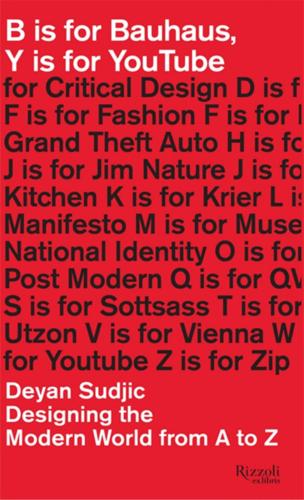
B Is for Bauhaus, Y Is for YouTube: Designing the Modern World From a to Z
by
Deyan Sudjic
Published 17 Feb 2015
When I began writing about architecture for newspapers in the 1980s, the politely provincial British architectural world of the time was evidently running out of steam. A thrusting fifty-year-old Norman Foster had just ushered in the gleaming aluminium-skinned face of the future with the Sainsbury Centre at the University of East Anglia, which looked more like an aircraft hangar than a museum. But there wasn’t much else of interest being built, and that meant it was a free-fire zone on almost everybody else. Blueprint set out to be iconoclastic, disposable, and tried to root architecture, design, graphics, fashion and the visual world in the popular culture of the time.
…
Krier also put together a monograph of Stirling’s complete works, in a style closely modelled on Le Corbusier’s own Oeuvre complète. Clearly Krier’s change of heart did not come at once. Indeed, in the 1970s, he even confessed himself to have been moved more than he had expected by a visit to Norman Foster’s intricate steel-and-aluminium aircraft-hangar-cum-Greek-temple that is the Sainsbury Centre at the University of East Anglia. After Krier had left Stirling, he started teaching at the Architectural Association, the private design school in London that during the 1970s served as a kind of unofficial opposition to the lacklustre world of mainstream British architecture. He developed a contempt for his chosen profession, which came close to that of Rem Koolhaas – another architect with a Le Corbusier fixation, who also happened to be teaching at the AA at the time.
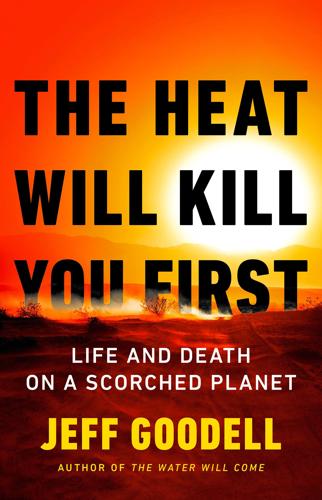
The Heat Will Kill You First: Life and Death on a Scorched Planet
by
Jeff Goodell
Published 10 Jul 2023
So instead of using a blow dart to tranquilize her, which injects the drug into the muscle and is slow to take effect, they decide to use a head bag to quickly gain control of her and then use a syringe to inject the tranquilizer intravenously. It is a little more difficult, but in Boehme’s view, it is safer for the seal. Boehme and Bastien Queste, an oceanographer from the UK’s University of East Anglia who is assisting him, approach the seal with a heavy green canvas bag with straps on each side. The seal wakes at their approach, her big doglike eyes looking at them curiously. Boehme and Queste try to slip the bag over her head, but she twists away. Who are these strange upright creatures and what are they trying to do to me?
…
She has, in effect, become a heat researcher. March 2, 2019 At 5 a.m., at latitude 74 degrees 57.4 S and longitude 106 degrees 12.8 W on the remote coast of West Antarctica, the Doomsday glacier looms up out of the fog and reveals itself to us. Peter Sheehan, a witty and hardworking twenty-seven-year-old researcher from the University of East Anglia, is one of the first scientists aboard the ship to lay eyes on the enormous glacier. He had just climbed up five flights of stairs from the lab to the bridge of the icebreaker, where he takes sea ice assessments every hour throughout the night. And there it was: a big wall of ice on the starboard side of the ship, looming in the early-morning light.
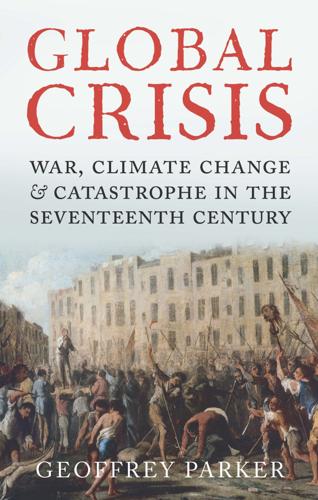
Global Crisis: War, Climate Change and Catastrophe in the Seventeenth Century
by
Geoffrey Parker
Published 29 Apr 2013
I thank Christian Pfister and Martin Parry for sharing with me their recollections of the 1979 conference. Sanderson, The history, 285, notes BP and Shell sponsorship of the Climatic Research Unit, founded in 1971 as part of the University of East Anglia's School of Environmental Sciences. The Cambridge University Press volume was Wigley, Climate and history. 3. Report of the World Food Conference, Rome, 5–16 November 1974 (New York, 1975), 6–8 (at FAORLC-41001WorldFoodConference doc, accessed 9 Mar. 2012. Note that in 1981, two years after the University of East Anglia conference, Amartya Sen published his influential Poverty and famines, arguing that famine reflected faulty distribution rather than defective production: see page 108 above. 4.
…
IN 1979 the World Meteorological Organization, the United Nations Environment Programme, the National Science Foundation, the Ford Foundation and the Rockefeller Foundation paid for 250 historians, geographers, archaeologists and climatologists from 30 countries to attend the first international ‘Conference on Climate and History’, hosted by the Climatic Research Unit at the University of East Anglia (England) – a unit sponsored by (among others) British Petroleum and Royal Dutch Shell. Cambridge University Press later published a volume containing the most innovative of the conference papers. That same year, the World Meteorological Organization created the ‘World Climate Program’ with a mandate to ‘insert climatic considerations into the formulation of rational policy alternatives’.
…
M., The French religious wars in English political thought (Oxford, 1959) Sanabre, J., La acción de Francia en Cataluña en la pugna por la hegemonía de Europa (1640–1659) (Barcelona, 1956) Sandberg, B., Warrior pursuits: Noble culture and civil conflict in early modern France (Baltimore, 2010) Sanderson, M., The history of the University of East Anglia 1918–2000 (London, 2002) Sansom, G., A history of Japan, 1615–1867 (Stanford, 1963) Santoro, M., Le secentine napoletane della Biblioteca Nazionale di Napoli (Rome, 1986) Sanz Camañes, P., Política, hacienda y milicia en el Aragón de los últimos Austrias entre 1640 y 1680 (Zaragoza, 1997).
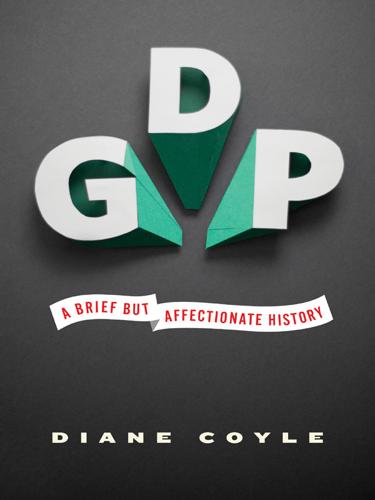
GDP: A Brief but Affectionate History
by
Diane Coyle
Published 23 Feb 2014
I would like to thank the following people for their suggestions and comments on drafts of the book: Simon Briscoe, Wendy Carlin, Brett Christophers, Tony Clayton, Bob Hahn, Andrew Haldane, Jonathan Haskel, Harold James, Andrew Kelly, Stephen King, Rob Metcalfe, Peter Sinclair, Paola Subacchi, and Romesh Vaitilingam. I have also benefited from comments from faculty and students attending a lecture I gave at the University of East Anglia in February 2013, and from attendees at a roundtable at the Legatum Institute in June 2012. As ever, I’m immensely grateful to my agent, Sara Menguc, and owe huge thanks to my long-suffering family, Rory, Adam, and Rufus. And to Cabbage the dog, who contributes not at all to GDP but greatly to welfare.
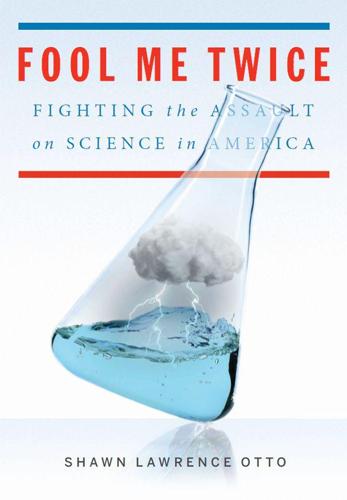
Fool Me Twice: Fighting the Assault on Science in America
by
Shawn Lawrence Otto
Published 10 Oct 2011
Anti-cap-and-trade opponents were gearing up for a “civil war” and the “greatest part of that battlefield is the global warming battle,” according to energy-industry-shill Lord Christopher Monckton, a British journalist with no particular expertise in climate science who travels America eruditely calling global warming “bullshit.”53 Obama’s delay gave opponents the time and ammunition they needed to regroup. CLIMATEGATE On November 17, 2009, the battle was rejoined. Days before the start of the Copenhagen climate summit, an unidentified hacker posted on a Russian FTP server a sixty-one-megabyte file containing e-mails stolen from servers at England’s University of East Anglia Climatic Research Unit (CRU). The hacker then posted a link to the file on the climate skeptic blogs The Air Vent54 and Watts Up with That?55 as well as the blog RealClimate, which is run by several leading climate scientists, including Michael Mann.56 The CRU is one of the world’s leading centers for climate research and a hub of global climate science communication.
…
The latter two are real for 1999, while the estimate for 1999 for NH combined is +0.44C wrt 61-90. The Global estimate for 1999 with data through Oct is +0.35C cf. 0.57 for 1998. Thanks for the comments, Ray. Cheers Phil Prof. Phi l Jones Climatic Research Unit Telephone +44 (0) 1603 592090 School of Environmental Sciences Fax +44 (0) 1603 507784 University of East Anglia Norwich Email p.jones@xxxxxxxxx.xxx NR4 7TJ UK As in the polar bear case, a five-prong propaganda attack was employed: phony science; canned stories via bloggers for the press; AM talk radio and partisan cable news reaction and outrage; government intervention; and hand-wringing by the real actors, our much-maligned and patriotic heroes.
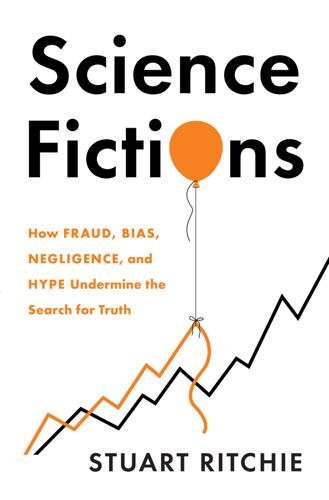
Science Fictions: How Fraud, Bias, Negligence, and Hype Undermine the Search for Truth
by
Stuart Ritchie
Published 20 Jul 2020
The science historian Alex Csiszar discusses the case of climate change, where skeptics have invoked a fairy-tale image of scientific publishing as the bedrock of legitimate consensus only to profess outrage when it turns out not to live up to this fantasy. This reaction was exemplified by the reaction to the leak of thousands of emails and documents from the Climate Research Unit at the University of East Anglia in November 2009. The emails seemed to reveal climate scientists engaging in secretive behavior and politicking with peer review. Evidence that scientific life behind the printed pages of journals was not a precise reflection of its better-behaved public face was seized upon by commentators to argue that the bottom had fallen out.18 Climate science, as it happens, is an apt example.
…
ABC News abortion Abu Ghraib prison abuse (2003) accidental discoveries Acta Crystallographica Section E acupuncture Afghan hounds Agence France-Presse AIDS (acquired immune deficiency syndrome) Alchemist, The (Bega) Alexander, Benita Alexander, Scott algorithms allergies Alzheimer, Aloysius Alzheimer’s Disease Amazon American Journal of Potato Research Amgen amygdala amyloid cascade hypothesis anaesthesia awareness Fujii affair (2012) outcome switching Anaesthesia & Analgesia animal studies antidepressants antipsychotics archaeology Arnold, Frances arsenic artificial tracheas asthma austerity Australia Austria autism aviation Babbage, Charles Bacon, Francis bacteria Bargh, John Bayer Bayes, Thomas Bayesian statistics BDNF gene Before You Know It (Bargh) Bega, Cornelis Begley, Sharon Belgium Bell Labs Bem, Daryl benzodiazepines bias blinding and conflict of interest De Vries’ study (2018) funding and groupthink and meaning well bias Morton’s skull studies p-hacking politics and publication bias randomisation and sexism and Bik, Elisabeth Bill & Melinda Gates Foundation Biomaterials biology amyloid cascade hypothesis Bik’s fake images study (2016) Boldt affair (2010) cell lines China, misconduct in Hwang affair (2005–6) Macchiarini affair (2015–16) meta-scientific research microbiome studies Morton’s skull studies Obokata affair (2014) outcome switching preprints publication bias replication crisis Reuben affair (2009) spin and statistical power and Summerlin affair (1974) Wakefield affair (1998–2010) biomedical papers bird flu bispectral index monitor black holes Black Lives Matter blinding blotting BMJ, The Boldt, Joachim books Borges, Jorge Luis Boulez, Pierre Boyle, Robert brain imaging Brass Eye vii British Medical Journal Brock, Jon bronchoscopy Broockman, David Brown, Nick Bush, George Walker business studies BuzzFeed News California Walnut Commission California wildfires (2017) Canada cancer cell lines collaborative projects faecal transplants food and publication bias and replication crisis and sleep and spin and candidate genes carbon-based transistors Cardiff University cardiovascular disease Carlisle, John Carlsmith, James Carney, Dana cash-for-publication schemes cataracts Cell cell lines Cell Transplantation Center for Open Science CERN (Conseil Européen pour la Recherche Nucléaire) chi-squared tests childbirth China cash-for-publication schemes cell line mix-ups in Great Famine (1959–1961) misconduct cases in randomisation fraud in chrysalis effect Churchill, Winston churnalism Cifu, Adam citations clickbait climate change cloning Clostridium difficile cochlear implants Cochrane Collaboration coercive citation coffee cognitive dissonance cognitive psychology cognitive tests coin flipping Colbert Report, The Cold War collaborative projects colonic irrigation communality COMPare Trials COMT gene confidence interval conflict of interest Conservative Party conspicuous consumption Cooperative Campaign Analysis Project (CCAP) ‘Coping with Chaos’ (Stapel) Cornell University coronavirus (COVID-19) Corps of Engineers correlation versus causation corticosteroids Cotton, Charles Caleb creationism Crowe, Russell Csiszar, Alex Cuddy, Amy CV (curriculum vitae) cyber-bullying cystic fibrosis Daily Mail Daily Telegraph Darwin Memorial, The’ (Huxley) Darwin, Charles Das, Dipak datasets fraudulent Observational publication bias Davies, Phil Dawkins, Richard De Niro, Robert De Vries, Ymkje Anna debt-to-GDP ratio Deer, Brian democratic peace theory Denmark Department of Agriculture, US depression desk rejections Deutsche Bank disabilities discontinuous mind disinterestedness DNA (deoxyribonucleic acid) domestication syndrome doveryai, no proveryai Duarte, José Duke University duloxetine Dutch Golden Age Dutch Organisation for Scientific Research Dweck, Carol economics austerity preprints statistical power and effect size Einstein, Albert Elmo Elsevier engineering epigenetics euthanasia evolutionary biology exaggeration exercise Experiment, The exploratory analyses extrasensory perception faecal transplants false-positive errors Fanelli, Daniele Festinger, Leon file-drawer problem financial crisis (2007–8) Fine, Cordelia Fisher, Ronald 5 sigma evidence 5-HT2a gene 5-HTTLPR gene fixed mindset Food and Drug Administration (FDA) Food Frequency Questionnaires food psychology Formosus, Pope foxes France Francis, Pope Franco, Annie fraud images investigation of motives for numbers Open Science and peer review randomisation Freedom of Information Acts French, Chris Fryer, Roland Fujii, Yoshitaka funding bias and fraud and hype and long-term funding perverse incentive and replication crisis and statistical power and taxpayer money funnel plots Future of Science, The (Nielsen) gay marriage Gelman, Andrew genetically modified crops genetics autocorrect errors candidate genes collaborative projects gene therapy genome-wide association studies (GWASs) hype in salami-slicing in Geneva, Switzerland geoscience Germany Getty Center GFAJ-1 Giner-Sorolla, Roger Glasgow Effect Goldacre, Ben Goldsmiths, University of London Golgi Apparatus good bacteria Good Morning America good scientific citizenship Goodhart’s Law Goodstein, David Google Scholar Górecki, Henryk Gould, Stephen Jay Gran Sasso, Italy grants, see funding Granularity-Related Inconsistency of Means (GRIM) grapes Great Recession (2007–9) Great Red Spot of Jupiter Green, Donald Gross Domestic Product (GDP) Gross, Charles ground-breaking results groupthink ‘Growth in a Time of Debt’ (Reinhart and Rogoff) growth mindset Guzey, Alexey gynaecology h-index H5N1 Haldane, John Burdon Sanderson Hankins, Matthew HARKing Harris, Sidney Harvard University headache pills heart attacks heart disease Heathers, James height Heilongjiang University Heino, Matti Henry IV (Shakespeare) Higgs Boson Hirsch, Jorge HIV (human immunodeficiency viruses) homosexuality Hong Kong Hooke, Robert Hossenfelder, Sabine Houston, Texas Hume, David Huxley, Thomas Henry Hwang, Woo-Suk hydroxyethyl starch hype arsenic life affair (2010) books correlation versus causation cross-species leap language and microbiome studies news stories nutrition and press releases spin unwarranted advice hypotheses Ig Nobel Prize images, fraudulent impact factor India insomnia International Journal of Advanced Computer Technology Ioannidis, John IQ tests Iraq War (2003–11) Italy Japan John, Elton Journal of Cognitive Education and Psychology Journal of Environmental Quality Journal of Negative Results in Biomedicine Journal of Personality and Social Psychology journals conflict of interest disclosure fraud and hype and impact factor language in mega-journals negligence and Open Science and peer review, see peer review predatory journals preprints publication bias rent-seeking replication studies retraction salami slicing subscription fees Jupiter Kahneman, Daniel Kalla, Joshua Karolinska Institute Krasnodar, Russia Krugman, Paul Lacon, or Many Things in Few Words (Cotton) LaCour, Michael Lancet Fine’s ‘feminist science’ article (2018) Macchiarini affair (2015–16) Wakefield affair (1998–2010) language Large Hadron Collider Le Texier, Thibault Lewis, Jason Lexington Herald-Leader Leyser, Ottoline Lilienfeld, Scott Loken, Eric Lost in Math (Hossenfelder) low-fat diet low-powered studies Lumley, Thomas Lysenko, Trofim Macbeth (Shakespeare) Macbeth effect Macchiarini, Paolo MacDonald, Norman machine learning Macleod, Malcolm Macroeconomics major depressive disorder Malaysia Mao Zedong MARCH1 Marcus, Adam marine biology Markowetz, Florian Matthew Effect Maxims and Moral Reflections (MacDonald) McCartney, Gerry McCloskey, Deirdre McElreath, Richard meaning well bias Measles, Mumps & Rubella (MMR) measurement errors Medawar, Peter medical research amyloid cascade hypothesis Boldt affair (2010) cell lines China, misconduct in collaborative projects Fujii affair (2012) Hwang affair (2005–6) Macchiarini affair (2015–16) meta-scientific research Obokata affair (2014) outcome switching pharmaceutical companies preprints pre-registration publication bias replication crisis Reuben affair (2009) spin and statistical power and Summerlin affair (1974) Wakefield affair (1998–2010) medical reversal Medical Science Monitor Mediterranean Diet Merton, Robert Mertonian Norms communality disinterestedness organised scepticism universalism meta-science Boldt affair (2010) chrysalis effect De Vries’ study (2018) Fanelli’s study (2010) Ioannidis’ article (2005) Macleod’s studies mindset studies (2018) saturated fats studies spin and stereotype threat studies mice microbiome Microsoft Excel Milgram, Stanley Mill, John Stuart Mindset (Dweck) mindset concept Mismeasure of Man, The (Gould) Modi, Narendra money priming Mono Lake, California Moon, Hyung-In Morton, Samuel Motyl, Matt multiverse analysis nanotechnology National Academy of Sciences National Aeronautics and Space Administration (NASA) National Institutes of Health National Science Foundation Nature cash-for-publication and cell line editorial (1981) impact factor language in Obokata affair (2014) Open Access and open letter on statistical significance (2019) replication research Schön affair (2002) Stapel affair (2011) Nature Neuroscience Nature Reviews Cancer NBC negligence cell line mix-ups numerical errors statistical power typos Netflix Netherlands replication studies in Stapel’s racism studies statcheck research neuroscience amyloid cascade hypothesis collaborative projects Macleod’s animal research studies replication crisis sexism and statistical significance and Walker’s sleep studies neutrinos New England Journal of Medicine New York Times New Zealand news media Newton, Isaac Nielsen, Michael Nimoy, Leonard No Country for Old Men Nobel Prize northern blots Nosek, Brian Novella, Steven novelty Novum Organum (Bacon) Nuijten, Michèle nullius in verba, numerical errors nutrition Obama, Barack obesity Obokata, Haruko observational datasets obstetrics ocean acidification oesophagus ‘Of Essay-Writing’ (Hume) Office for Research Integrity, US Oldenburg, Henry Open Access Open Science OPERA experiment (2011) Oransky, Ivan Orben, Amy Organic Syntheses organised scepticism Osborne, George outcome-switching overfitting Oxford University p-value/hacking alternatives to Fine and low-powered studies and microbiome studies and nutritional studies and Open Science and outcome-switching perverse incentive and pre-registration and screen time studies and spin and statcheck and papers abstracts citations growth rates h-index introductions method sections results sections salami slicing self-plagiarism university ranks and Parkinson’s disease particle-accelerator experiments peanut allergies peer review coercive citation fraudulent groupthink and LaCour affair (2014–15) Preprints productivity incentives and randomisation and toxoplasma gondii scandal (1961) volunteer Wakefield affair (1998–2010) penicillin Peoria, Illinois Perspectives in Psychological Science perverse incentive cash for publications competition CVs and evolutionary analogy funding impact factor predatory journals salami slicing self-plagiarism Pett, Joel pharmaceutical companies PhDs Philosophical Transactions phlogiston phosphorus Photoshop Physical Review physics placebos plagiarism Plan S Planck, Max plane crashes PLOS ONE pluripotency Poehlman, Eric politics polygenes polyunsaturated fatty acids Popper, Karl populism pornography positive feedback loops positive versus null results, see publication bias post-traumatic stress disorder (PTSD) power posing Prasad, Vinay pre-registration preclinical studies predatory journals preprints Presence (Cuddy) press releases Prevención con Dieta Mediterránea (PREDIMED) priming Princeton University Private Eye probiotics Proceedings of the National Academy of Sciences prosthetic limbs Przybylski, Andrew psychic precognition Psychological Medicine psychology Bargh’s priming study (1996) Bem’s precognition studies books Carney and Cuddy’s power posing studies collaborative projects data sharing study (2006) Dweck’s mindset concept Festinger and Carlsmith’s cognitive dissonance studies Kahneman’s priming studies LaCour’s gay marriage experiment politics and preprints publication bias in Shanks’ priming studies Stanford Prison Experiment Stapel’s racism studies statistical power and Wansink’s food studies publication bias publish or perish Pubpeer Pythagoras’s theorem Qatar quantum entanglement racism Bargh’s priming studies Morton’s skull studies Stapel’s environmental studies randomisation Randy Schekman Reagan, Ronald recommendation algorithms red grapes Redfield, Rosemary Reflections on the Decline of Science in England (Babbage) Reinhart, Carmen Rennie, Drummond rent-seeking replication; replication crisis Bargh’s priming study Bem’s precognition studies biology and Carney and Cuddy’s power posing studies chemistry and economics and engineering and geoscience and journals and Kahneman’s priming studies marine biology and medical research and neuroscience and physics and Schön’s carbon-based transistor Stanford Prison Experiment Stapel’s racism studies Wolfe-Simon’s arsenic life study reproducibility Republican Party research grants research parasites resveratrol retraction Arnold Boldt Fujii LaCour Macchiarini Moon Obokata Reuben Schön Stapel Wakefield Wansink Retraction Watch Reuben, Scott Reuters RIKEN Rogoff, Kenneth romantic priming Royal Society Rundgren, Todd Russia doveryai, no proveryai foxes, domestication of Macchiarini affair (2015–16) plagiarism in salami slicing same-sex marriage sample size sampling errors Sanna, Lawrence Sasai, Yoshiki saturated fats Saturn Saudi Arabia schizophrenia Schoenfeld, Jonathan Schön, Jan Hendrik School Psychology International Schopenhauer, Arthur Science acceptance rate Arnold affair (2020) arsenic life affair (2010) cash-for-publication and Hwang affair (2005) impact factor LaCour affair (2014–15) language in Macbeth effect study (2006) Open Access and pre-registration investigation (2020) replication research Schön affair (2002) Stapel affair (2011) toxoplasma gondii scandal (1961) Science Europe Science Media Centre scientific journals, see journals scientific papers, see papers Scientific World Journal, The Scotland Scottish Socialist Party screen time self-citation self-correction self-plagiarism self-sustaining systems Seoul National University SEPT2 Sesame Street sexism sexual selection Shakespeare, William Shanks, David Shansky, Rebecca Simmons, Joseph Simonsohn, Uri Simpsons, The skin grafts Slate Star Codex Sloan-Kettering Cancer Institute Smaldino, Paul Smeesters, Dirk Smith, Richard Snuppy social media South Korea Southern blot Southern, Edwin Soviet Union space science special relativity specification-curve analysis speed-accuracy trade-off Spies, Jeffrey spin Springer Srivastava, Sanjay Stalin, Joseph Stanford University Dweck’s mindset concept file-drawer project (2014) Prison Experiment (1971) Schön affair (2002) STAP (Stimulus-Triggered Acquisition of Pluripotency) Stapel, Diederik statcheck statistical flukes statistical power statistical significance statistical tests Status Quo stem cells Stephen VI, Pope stereotype threat Sternberg, Robert strokes subscription fees Summerlin, William Sweden Swift, Jonathan Swiss Federal Institute of Technology Sydney Morning Herald Symphony of Sorrowful Songs (Górecki) t-tests Taiwan taps-aff.co.uk tax policies team science TED (Technology, Entertainment, and Design) Texas sharpshooter analogy Thatcher, Margaret theory of special relativity Thinking, Fast and Slow (Kahneman) Thomson Reuters Tilburg University Titan totalitarianism toxoplasma gondii trachea translational research transparency Tribeca Film Festival triplepay system Trump, Donald trust in science ‘trust, but verify’ Tumor Biology Turkey Tuulik, Julia Twitter typos UK Reproducibility Network Ulysses pact United Kingdom austerity cash-for-publication schemes image duplication in multiverse analysis study (2019) National Institute for Health Research pre-registration in Royal Society submarines trust in science university ranks in Wakefield affair (1998–2010) United States Arnold affair (2020) arsenic life affair (2010) austerity Bargh’s priming study (1996) Bem’s precognition studies California wildfires (2017) Carney and Cuddy’s power posing studies Center for Nutrition Policy and Promotion climate science in creationism in Das affair (2012) De Vries’ drug study (2018) Department of Agriculture Dweck’s mindset concept Fryer’s police brutality study (2016) image duplication in Kahneman’s priming studies LaCour affair (2014–15) Morton’s skull studies Office for Research Integrity Poehlman affair (2006) pre-registration in public domain laws Reuben affair (2009) Stanford Prison Experiment Summerlin affair (1974) tenure Walker’s sleep studies Wansink affair (2016) universalism universities cash-for-publication schemes fraud and subscription fees and team science University College London University of British Columbia University of California Berkeley Los Angeles University of Connecticut University of East Anglia University of Edinburgh University of Hertfordshire University of London University of Pennsylvania unsaturated fats unwarranted advice vaccines Vamplew, Peter Vanity Fair Vatican Vaxxed Viagra vibration-of-effects analysis virology Wakefield, Andrew Walker, Matthew Wansink, Brian Washington Post weasel wording Weisberg, Michael Wellcome Trust western blots Westfall, Jake ‘Why Most Published Research Findings Are False’ (Ioannidis) Why We Sleep (Walker) Wiley Wiseman, Richard Wolfe-Simon, Felisa World as Will and Presentation, The (Schopenhauer) World Health Organisation (WHO) Yale University Yarkoni, Tal Yes Men Yezhov, Nikolai Z-tests Ziliak, Stephen Zimbardo, Philip Zola, Émile About the Author Stuart Ritchie is a lecturer in the Social, Genetic and Developmental Psychiatry Centre at King’s College London.
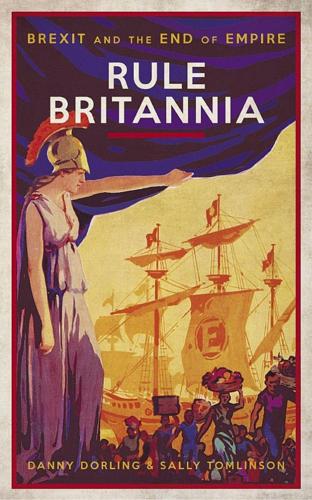
Rule Britannia: Brexit and the End of Empire
by
Danny Dorling
and
Sally Tomlinson
Published 15 Jan 2019
In other words, there was very little evidence that the more deprived an area was, the more likely its residents were to vote Leave. There are many other interesting analyses as to who voted in the referendum and why. One theory that hit the headlines suggested that fat people were responsible. Peter Ormosi, an Associate Professor of Competition Economics at the Norwich Business School (University of East Anglia), posted a blog on the London School of Economics website at the very end of June 2016 entitled: ‘The weight of Brexit: Leave vote is higher in areas of higher obesity’.17 Peter reported correlations of 0.80 (very high in comparison to the deprivation correlation of 0.037). He then speculated that because ‘neurotic people are more likely to have [eating] disorders’, then it is possible that the correlation he found reflects those neuroses.
…
His views on the state’s responsibilities were revealed in an article that he, as the newly created Minister for Decentralisation, wrote for the Catholic Herald in 2010 entitled ‘It’s time for Government to stop getting in your way: the Coalition wants to release the philanthropic energies of believers’.31 He has never rebelled against his party in the current government, even at the very extremes, when they cut the most important of the rights of the poorest and most vulnerable in Britain while passing laws to reduce the taxation of the wealthy. Michael Gove, Secretary of State for Environment, is widely regarded as excessively polite. However, as Secretary of State for Education from 2010, he was described in 2013 by Ralph Manning, lecturer in primary education, University of East Anglia, as having a ‘blinkered, almost messianic, self-belief, which appears to have continually ignored the expertise and wisdom of teachers, head-teachers, advisers and academics, whom he often claims to have consulted’. Gove’s reforms to the primary-level national curriculum were described as ‘neo Victorian’.
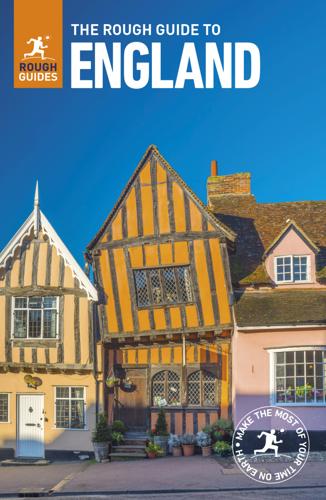
The Rough Guide to England
by
Rough Guides
Published 29 Mar 2018
The leading figures were John Crome (1768–1821) – aka “Old Crome” – and John Sell Cotman (1782–1842). University of East Anglia Earlham Rd, NR4 7TJ • UEA Campus Open access • Free • 01603 456161, uea.ac.uk • Sainsbury Centre for Visual Arts Tues–Fri 10am–6pm, Sat & Sun 10am–5pm • Free, but admission charged for some exhibitions • 01603 593199, scva.ac.uk • Among several services, bus #25 runs to the UEA campus from the train station and Castle Meadow The University of East Anglia (UEA) occupies a sprawling campus on the western outskirts of the city beside the B1108. Its buildings are resolutely modern, an assortment of concrete-and-glass blocks of varying designs, some quite ordinary, others, like the prize-winning “ziggurat” halls of residence, designed by Denys Lasdun, eminently memorable.
…
Many are no longer in regular use and are now in the care of the Norwich Historic Churches Trust (norwich-churches.org), whose website describes each in precise detail. Norwich’s relative isolation has also meant that the population has never swelled to any great extent and today, with just 220,000 inhabitants, it remains an easy and enjoyable city to negotiate. Yet Norwich is no provincial backwater. In the 1960s, the foundation of the University of East Anglia (UEA) made it much more cosmopolitan and bolstered its arts scene, while in the 1980s it attracted new high-tech companies, who created something of a mini-boom, making the city one of England’s wealthiest. As East Anglia’s unofficial capital, Norwich also lies at the hub of the region’s transport network, serving as a useful base for visiting the Broads and as a springboard for the north Norfolk coast.
…
As if that wasn’t enough, speed of reconstruction – rather than quality – was often the key criterion and, convinced that the car was the future, roads were ploughed through a host of English cities almost willy-nilly. Nevertheless, there were some noteworthy architectural achievements in the 1950s and 1960s, including Basil Spence’s (1907–76) startling replacement of the bombed Coventry Cathedral (1951–59); Denys Lasdun’s (1914–2001) ziggurats at the University of East Anglia in Norwich (1963); and the Royal Festival Hall (1949–51), a triumphant Modernist departure from the traditional model for classical music venues. 1980 to 2000 In the late twentieth century, English architecture was stranded between a popular dislike for the modern and a general reluctance among its practitioners to return to the past.
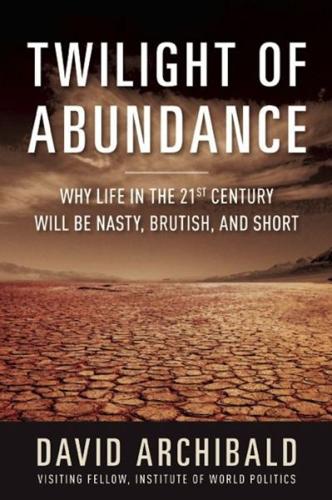
Twilight of Abundance: Why the 21st Century Will Be Nasty, Brutish, and Short
by
David Archibald
Published 24 Mar 2014
One good analysis of the malfeasance of the climate scientists is The Delinquent Teenager Who Was Mistaken for the World’s Top Climate Expert, published by Canadian investigative journalist Donna Laframboise in 2011.18 One of the earliest Climategate emails shows how the results of research were tailored to a political agenda. On July 29, 1999, Adam Markham of WWF (a non-government organization formerly known as the World Wildlife Fund) wrote to University of East Anglia climate scientists Mike Hulme and Nicola Sheard about a paper that Hulme and Sheard had written about climate change in Australasia: “I’m sure you will get some comments direct from Mike Rae in WWF Australia, but I wanted to pass on the gist of what they’ve said to me so far. They are worried that this may present a slightly more conservative approach to the risks than they are hearing from Australian scientists.
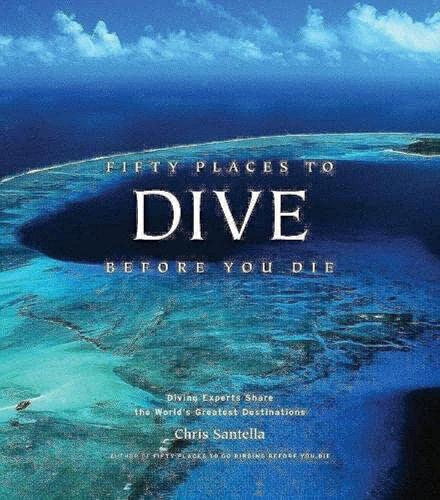
Fifty Places to Dive Before You Die: Diving Experts Share the World's Greatest Destinations
by
Chris Santella
Published 1 Oct 2008
He has dived throughout South East Asia, Egypt, England, and Central America, working as a Dive Master in both Thailand and Egypt. For the last 5 years he has instructed and guided divers around the beautiful reefs of Utila. Before fulltime diving, Adam worked in the hedge fund industry and studied European History at the University of East Anglia. Getting There: Most visitors will reach Utila via Roatan, which is served by American, Continental, and TACA (1-800-400-TACA; www.taca.com). From Roatan, it’s a quick shuttle flight to Utila on Aerolineas Sosa (+50 44-25-3166) or Atlantic Airlines International (+50 44-25-3364; www.atlanticairlinesint.com).
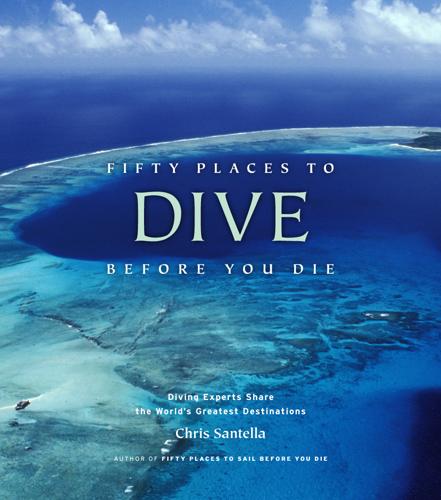
Fifty Places to Dive Before You Die
by
Chris Santella
Published 7 Sep 2011
He has dived throughout South East Asia, Egypt, England, and Central America, working as a Dive Master in both Thailand and Egypt. For the last 5 years he has instructed and guided divers around the beautiful reefs of Utila. Before fulltime diving, Adam worked in the hedge fund industry and studied European History at the University of East Anglia. Getting There: Most visitors will reach Utila via Roatan, which is served by American, Continental, and TACA (1-800-400-TACA; www.taca.com). From Roatan, it’s a quick shuttle flight to Utila on Aerolineas Sosa (+50 44-25-3166) or Atlantic Airlines International (+50 44-25-3364; www.atlanticairlinesint.com).
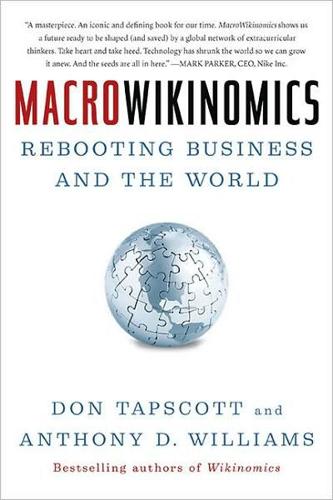
MacroWikinomics: Rebooting Business and the World
by
Don Tapscott
and
Anthony D. Williams
Published 28 Sep 2010
As the intermingling of science and public policy intensifies in an era of new global risks, questions about how scientists relate to the public and how the public relates to science are becoming critical. Nothing illustrates the challenges better than the recent “climategate” scandal in which a large stash of e-mails from and to investigators at the Climatic Research Unit of the University of East Anglia provided more than enough evidence for concern about the way some climate science is done. The science discussed in the e-mails is mostly from one small area of climate research—the taking of raw temperature data from thermometers, satellites, and proxy measures of historical climate such as tree rings and turning it into usable information on temperature trends.
…
In turn, they accuse their attackers of conflating McIntyre’s legitimate technical criticism of their methods with “unsupported, unjustified and unverified accusations of scientific mal-conduct that confused the public.” They were partially vindicated when the U.S. House of Representatives’ Science and Technology Committee concluded in March 2010 that there was, in fact, no evidence to support charges that the University of East Anglia’s Climatic Research Unit or its director, Phil Jones, had tampered with data or perverted the peer review process to exaggerate the threat of global warming. Moreover, the committee noted that nothing in the more than one thousand stolen e-mails challenged the scientific consensus that “global warming is happening and that it is induced by human activity.”
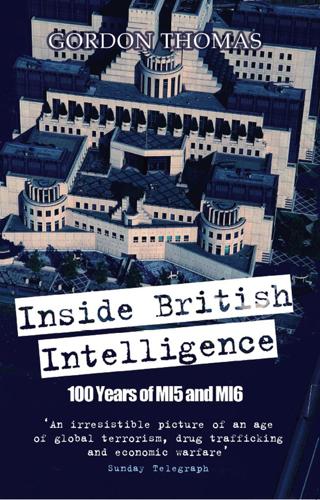
Inside British Intelligence
by
Gordon Thomas
Kelly led his team there. Waiting for them was Dr. Rihab Taha, the director of the facility. In her early thirties with a broad forehead, pointy chin, and bouffant hairstyle, Taha “vacillated between nervous wariness and prickly defensiveness. She had good English, having acquired a PhD in toxicology from the University of East Anglia. Dr. Taha had maintained that the biological research work at Salman Pak had been in its infancy and had been destroyed by the precision bombing in the first stage of the war. She had waved her hands and shouted, “The evidence for you to see is all around you.” For five days, meeting growing hostility from the Iraqi minders, Dr.
…
His wallet was intact, and no attempt had been made to open his front door with the key. The police had removed all his work files and concluded Korshunov had been the victim of a “hit-and-run” thief. Another unexplained death that came to Dr. Kelly’s attention was that of Dr. Ian Longford, a senior fellow at the University of East Anglia. The campus was where Dr. Rihab Taha had spent five years studying before returning to Iraq to run the country’s biological research program, and Dr. Kelly had met Longford during his inquiries into her background. Dr. Longford had been found dead on February 19, 2002, in his home in Norwich, where he lived alone.
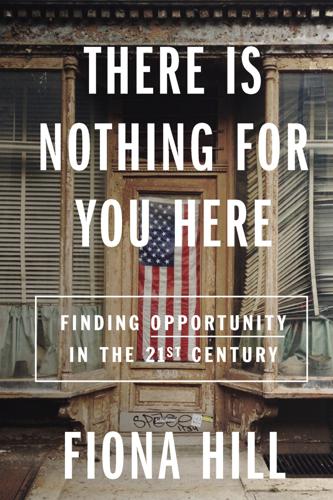
There Is Nothing for You Here: Finding Opportunity in the Twenty-First Century
by
Fiona Hill
Published 4 Oct 2021
Like other low-income students, I needed to be resourceful and enterprising in figuring out how to expand the basic horizons and pursue the college experiences other students took for granted. Immediately after the conclusion of my first year, in 1985, I had to participate in a mandatory intensive Russian course at the University of East Anglia in Norwich, England. This was one of the conditions for starting Russian from scratch at St. Andrews. My student grant did not extend to summer programs. Although the course organizers waived the fees, I would still need to cover food, lodging, and travel. Thankfully, I got money from both the Durham Miners’ Association (DMA) and the Bishop Auckland Rotary Club to help me.
…
Petersburg Metro terrorist attack and, 195–96, 197 supporters’ similarities, 224 Syria, 200–201 See also Helsinki summit; populism/populists Trump, Eric/Lara, 281 Trump, Ivanka on father, 176 father praising, 215 Hill and, 196, 202, 203 Lafayette Square event and, 273 position/Trump meetings and, 200, 201, 208, 255 wardrobe/fashion and, 196, 207 women’s empowerment and, 255–56 as “young pretender,” 281 Tsipras, Alexis, 210–11, 241 Twitter, 5, 174, 182, 186, 209, 212, 243, 247, 275, 276, 279, 294, 295 U Ukraine Hill and, 3, 261–62 myth on U.S. election interference, 232, 239, 260, 287 Trump wanting “dirt” on Bidens and, 3, 239, 261–62 See also specific individuals Ulukaya, Hamdi (Chobani), 350 Ungar, Sam, 1, 259, 261 United Kingdom (overview) diversity and, 164–65 following World Wars/safety nets, 303 London diversity, 164–65 postindustrial challenges/comparing UK, U.S., USSR, 8–9, 94–98 postindustrial challenges/Russia comparison, 117–24 towns establishment/destruction, 121–22 See also specific components; specific individuals/locations United Nations Alfred Hill’s joke, 35, 158 visiting UK, 158 visiting U.S., 158 United States (overview) China’s rising power and, 293, 310–11 crisis of opportunity, 13–14 inequality/reforming, 9–10, 13 postindustrial challenges/comparing UK, U.S., USSR, 8–9, 10, 94–98 See also specific components; specific individuals/locations United States Agency for International Development, 340 future populists and, 287 Postal Service, 223 reputation/status decline with Trump, 218, 223, 235, 258–59, 287–88 University of East Anglia Russian course (Norwich, England), 77 USSR centrally planned economy/interlinks, 94–95 decline/collapse of, 12, 94, 95 disinformation/weaponizing and, 247 “dry year”/alcohol ban, 120 economical inflexibility, 95 establishing/destroying cities, 122 health care, 119 oil and gas production, 81, 94 perestroika, 128 postindustrial challenges/comparing UK, U.S., USSR, 94–98 private/individual aid and, 340 survey/schoolgirls wanting to be prostitutes, 128 See also Russia V Valdai Discussion Club, 132 Vance, J.
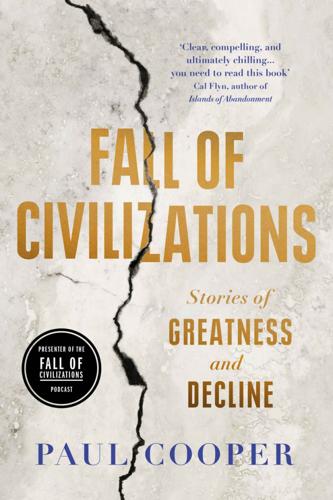
Fall of Civilizations: Stories of Greatness and Decline
by
Paul Cooper
Published 31 Mar 2024
Taylor, Assyriologist Eleanor Bennett, Deccan historian Manu Pillai and the Byzantinist Peter Sandham for their help and advice with some of the ancient chapters. I would like to thank my PhD supervisors Petra Rau and Rebecca Stott for their intellectual guidance and early encouragement. I would like to thank my researchers Brian Stolk, Joe Macdonald and Ciarán Falvey for their work in the archives. Special thanks go to the University of East Anglia Library, British Library and Robert Sainsbury Library and Sainsbury Research Unit (SRU) for their help with access to their invaluable collections. Special thanks go to my editor Rowan Cope, who helped to wrestle this manuscript into its current shape, as well as editors Alba Ziegler-Bailey and David Bamford for their tireless work.
…
Special thanks to the work of the Electronic Text Corpus of Sumerian Literature (ETCSL), run by Dr Jeremy Black, Dr Graham Cunningham, Dr Gábor Zólyomi and Dr Eleanor Robson. Also thank to the Perseus Digital Library at Tufts University, run by Gregory Crane, Marie-Claire Beaulieu, Bridget Almas, Alison Babeu, Frederik Baumgardt, Tim Buckingham, Lisa Cerrato and Anna Krohn. Many thanks to the University of East Anglia, and the Arts and Humanities Research Council (AHRC) for funding my PhD. Thank you to all the readers and listeners who have sent in their support, their comments and corrections, their kind words, and their constant encouragement. Without them, none of this would have been possible. THE SUMERIANS The marshes of southern Iraq, which preserve a sense of the landscape in which the Sumerian cities arose.

Stranger Than Fiction: Lives of the Twentieth-Century Novel
by
Edwin Frank
Published 19 Nov 2024
Sebald, writing at the end of the last century, counts as the first writer of our digitalized and disrupted age. Sebald, born in Bavaria, the bastion of German conservatism, was educated in Germany and Switzerland and lived for most of his adult life in England, becoming a lecturer at the University of East Anglia. He was almost fifty when his first novel, Vertigo, came out in 1990. It was little noticed in his homeland. In the course of the ensuing decade, he published three more novels. The second, The Emigrants, won Sebald a passionate following in England and America, which grew with the publication of The Rings of Saturn and Austerlitz, the last in 2001, when Sebald died in an auto accident, apparently after suffering a heart attack in the driver’s seat.
…
Here: Photograph by Gordon Parks. Courtesy of and copyright © The Gordon Parks Foundation. Here: Michael Brandon-Jones, negatives for Austerlitz (9/2000), from Shadows of Reality: A Catalogue of W.G. Sebald’s Photographic Materials, edited by Clive Scott and Nick Warr. Boiler House Press, 2023. Image courtesy of The University of East Anglia. Here: Copyright © Woodman Family Foundation / Artists Rights Society (ARS), New York. ALSO BY EDWIN FRANK Snake Train: Poems, 1984–2013 A Note About the Author Edwin Frank is the editorial director of New York Review Books and the founder of the NYRB Classics series. Born in Boulder, Colorado, and educated at Harvard College and Columbia University, he has been a Wallace Stegner Fellow and a Lannan Fellow and is a member of the New York Institute for the Humanities.
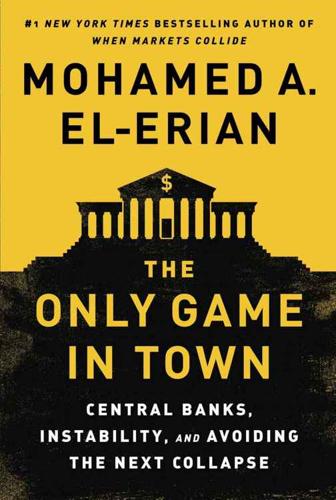
The Only Game in Town: Central Banks, Instability, and Avoiding the Next Collapse
by
Mohamed A. El-Erian
Published 26 Jan 2016
Janet Yellen, “Monetary Policy and Financial Stability,” speech at the 2014 Michel Camdessus Central Banking Lecture at the International Monetary Fund in Washington, D.C., Board of Governors of the Federal Reserve System, July 2, 2014, http://www.federalreserve.gov/newsevents/speech/yellen20140702a.htm. CHAPTER 4: HOW AND WHY THIS BOOK IS ORGANIZED 1. Andrew G. Haldane, “Growing, Fast and Slow,” speech at the University of East Anglia, Norwich, England, February 17, 2015, http://www.bis.org/review/r150219b.pdf. 2. Mohamed A. El-Erian, When Markets Collide: Investment Strategies for the Age of Global Economic Change (New York: McGraw-Hill, 2008). PART II: CONTEXT: THE RISE, COLLAPSE, AND RESURRECTION OF CENTRAL BANKING 1.
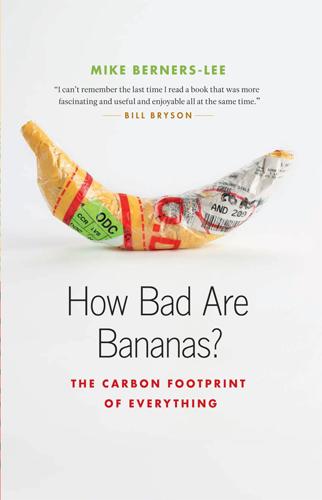
How Bad Are Bananas?: The Carbon Footprint of Everything
by
Mike Berners-Lee
Published 12 May 2010
Furthermore, there have been occasional errors in the IPCC’s work, and even the hint of the odd deliberate misrepresentation. However, the standard of integrity that is demanded of the climate change believers is on a different plane altogether from that demanded of the skeptics. Some scientists at the University of East Anglia have been in world in headline-hitting trouble for allegedly “sexing up” their work in a way that the some of the skeptics would consider quite normal. The resulting scandal, which turned out to be about not all that much, has been hugely damaging to popular understanding of climate science.
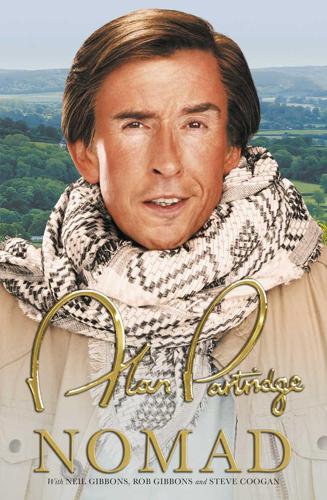
Alan Partridge: Nomad: Nomad
by
Alan Partridge
Published 19 Oct 2016
What had befallen him that day? These questions still hung in the air like the smell of sausage fat, long after the cooked breakfast has been eaten and the dishwasher stacked. And so, using the money that I refused to pay to my branding consultant, I hired a team of investigators, diligent students from the University of East Anglia, who trawled visitor records and official correspondence from the power station. They learnt that my father had actually made it to the interview but performed exceptionally badly and hadn’t made it to the next round. It seems he fabricated the letter concerning his failure to attend because he didn’t want his family and friends to realise how thick he was.
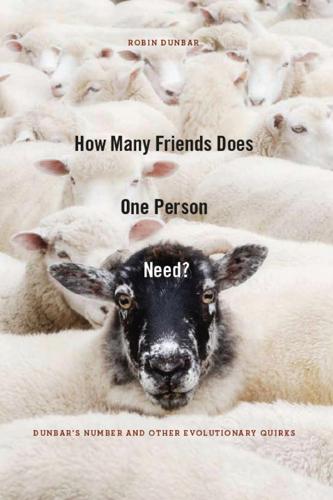
How Many Friends Does One Person Need? Dunbar’s Number and Other Evolutionary Quirks
by
Robin Dunbar
and
Robin Ian MacDonald Dunbar
Published 2 Nov 2010
The chink in the armour on this one is they still show the same age-related preference for a partner of similar age. So, if she doesn’t say how old she is, just take five years off the age of the partner she is looking for and you won’t go far wrong. But age is only one criterion. What do the columns reveal about looks and money? To find out, David Waynforth, now at the University of East Anglia, and I analysed nearly nine hundred advertisements in four US newspapers. Male advertisers were more likely than females to seek a youthful mate (forty-two per cent of the men versus twenty-five per cent of the women) or a physically attractive one (forty-four per cent versus twenty-two per cent).
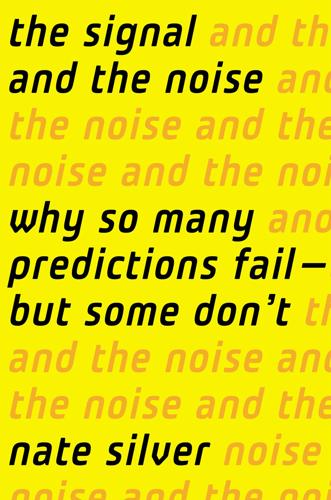
The Signal and the Noise: Why So Many Predictions Fail-But Some Don't
by
Nate Silver
Published 31 Aug 2012
Climate scientists have reacted to this challenge in a variety of ways, some involving themselves more in the political debate and others keeping it at arm’s length. Michael Mann, who is director of the Earth System Science Center at Penn State University, was once at the center of a controversy. “Climategate” concerned the hacking of a server at the Climatic Research Unit (CRU) at the University of East Anglia,103 which produces the temperature record that the UK’s Met Office uses. Skeptics alleged that Mann and other scientists had conspired to manipulate the CRU’s temperature record. The pertinent facts are that the scientists were cleared of wrongdoing by a panel of their peers,104 and that the CRU’s temperature record is quite consistent with the others105—but Mann and other scientists in the hacked e-mails demonstrated a clear concern with the public relations elements of how the science would be perceived.
…
This is potentially important because there has been more warming in the Arctic than in any other part of the globe. 64. Global Temperature Anomalies, National Atmospheric and Oceanic Association. ftp://ftp.ncdc.noaa.gov/pub/data/anomalies/annual.land_ocean.90S.90N.df_1901-2000mean.dat. 65. Climatic Research Unit, School of Environmental Sciences, University of East Anglia. http://www.cru.uea.ac.uk/cru/data/temperature/hadcrut3gl.txt. 66. Japan Meteorological Agency. http://www.data.kishou.go.jp/climate/cpdinfo/temp/list/an_wld.html. 67. Note that the two satellite records use some of the same underlying data. 68. Some analyses have mistakenly used the satellite temperature records for the upper atmosphere rather than the lower atmosphere.
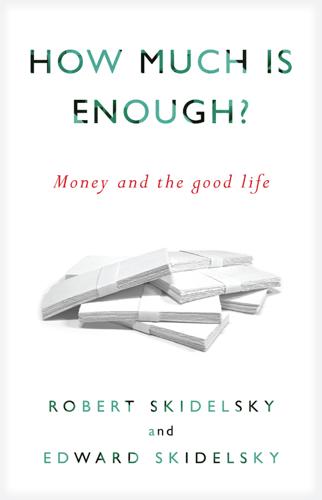
How Much Is Enough?: Money and the Good Life
by
Robert Skidelsky
and
Edward Skidelsky
Published 18 Jun 2012
The idea of a catastrophic “tipping point” or “point of no return” is rejected by most serious scientists as lacking sufficient empirical foundation. “The language of catastrophe is not the language of science,” writes Mike Hulme, former director of the Tyndall Centre for Climate Research at the University of East Anglia.12 But that has not stopped its use by some who should know better. Veteran geochemist James Lovelock (of whom more later) sees the world approaching a state “that could easily be described as Hell: so hot, so deadly that only a handful of the teeming billions now alive will survive.”13 Passages like this present us with a secular version of Pascal’s famous wager: they conjure an evil so fearful that its avoidance is worth any sacrifice, however great.
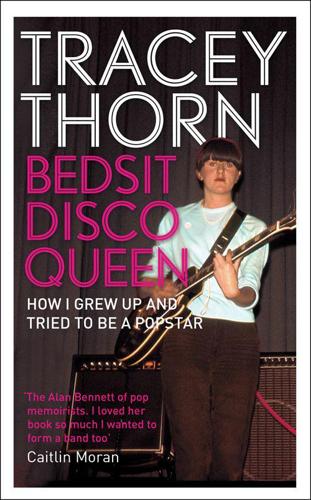
Bedsit Disco Queen: How I Grew Up and Tried to Be a Pop Star
by
Tracey Thorn
Published 7 Feb 2013
In those days, it was a readily available opportunity. My A-level results were scarcely brilliant by any standards – an A for English, which I was proud of, but then only a C for history and a disappointing E for economics – but were still good enough to get me into Hull. Not my first choice, admittedly; I’d been rejected by the University of East Anglia after a disastrous interview where I suddenly couldn’t think of anything insightful to say about 1984, but the course at Hull had the distinct advantage of beginning with twentieth-century literature, instead of the study of Beowulf, and that appealed to me, so the choice was made. I’d be leaving home and going up to Hull.
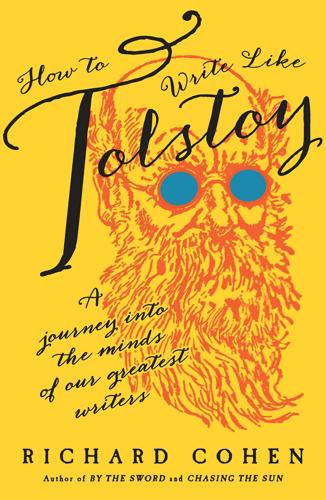
How to Write Like Tolstoy: A Journey Into the Minds of Our Greatest Writers
by
Richard Cohen
Published 16 May 2016
.”*5 — In February 2014 I traveled to Norwich, in East Anglia, to talk with Rose Tremain, whose prize-winning novel Restoration (1989) is told in the first person. During the eleventh century, Norwich was the largest city in England after London, but now has just over 210,000 inhabitants, including the University of East Anglia, of which Rose is the current chancellor. We met in her light-filled home a few minutes’ drive from the university. Back in 1987, she was over fifty pages into Restoration, writing in the third person, when she concluded that “it felt very underpowered and lifeless,” and decided to start again, but in the first person.
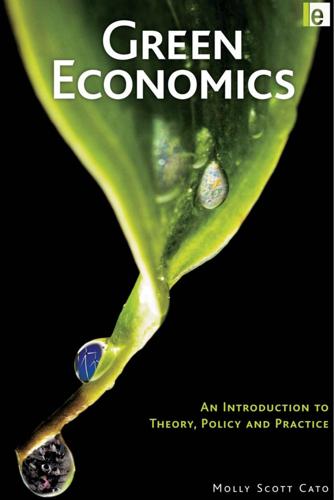
Green Economics: An Introduction to Theory, Policy and Practice
by
Molly Scott Cato
Published 16 Dec 2008
Greco (1999) ‘Towards an economy in the hands of the people: Parallel currencies in the majority world: Study of the Tianguis Tlaloc local currency system in Mexico City’, available online at the Appropriate Economics website. 22 North, Money and Liberation. 23 G. Seyfang (2007) ‘Bartering for a better future? Community currencies and sustainable consumption’, CSERGE Working Paper, EDM 04–10, University of East Anglia, p. 17. 24 H. Primavera (2002) ‘Wealth, money and power: the ephemeral “Argentinean miracle” of the exchange networks’, presentation made at the 2nd panel of the National Journey on Exchange and the Economy of Solidarity, Buenos Aires, 6 September; available at: www.complementarycurrency.org/ccLibrary/ 543_ENG.rtf; M.
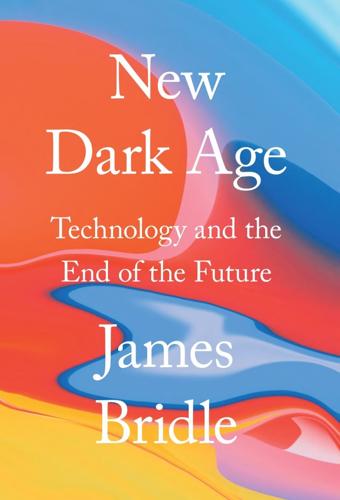
New Dark Age: Technology and the End of the Future
by
James Bridle
Published 18 Jun 2018
The reason for the increase in turbulence is rising levels of carbon dioxide in the atmosphere. In a paper published in Nature Climate Change in 2013, Paul Williams of the National Centre for Atmospheric Science at the University of Reading and Manoj Joshi from the School of Environmental Sciences at the University of East Anglia lay out the implications of a warming atmosphere on transatlantic aviation: Here we show using climate model simulations that clear-air turbulence changes significantly within the transatlantic flight corridor when the concentration of carbon dioxide in the atmosphere is doubled. At cruise altitudes within 50–75°N and 10–60°W in winter, most clear-air turbulence measures show a 10–40 per cent increase in the median strength of turbulence and a 40–170 per cent increase in the frequency of occurrence of moderate-or-greater turbulence.
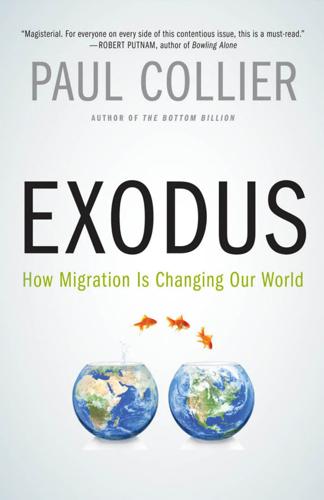
Exodus: How Migration Is Changing Our World
by
Paul Collier
Published 30 Sep 2013
What Money Can’t Buy: The Moral Limits of Markets. London: Allen Lane. Saunders, D. 2010. Arrival City: How the Largest Migration in History Is Reshaping Our World. New York: Pantheon. Serra, D., Serneels, P., and Barr, A. 2010. Intrinsic Motivations and the Non-profit Health Sector: Evidence from Ethiopia. Working Paper Series, University of East Anglia, Centre for Behavioural and Experimental Social Science (CBESS) 10-01. Schiff, M. 2012. Education Policy, Brain Drain and Heterogeneous Ability: The Impact of Alternative Migration Policies. Mimeo, World Bank. Shih, M., Pittinsky, T. L., and Ambady, N. 1999. Stereotype Susceptibility: Shifts in Quantitative Performance from Socio-cultural Identification.
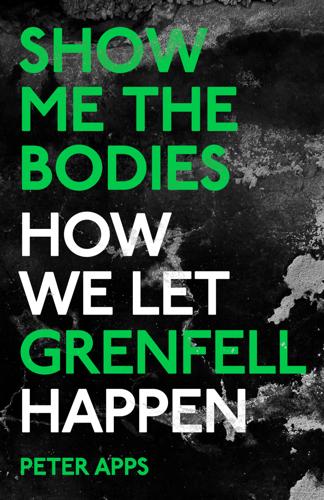
Show Me the Bodies: How We Let Grenfell Happen
by
Peter Apps
Published 10 Nov 2022
To boost Celotex’s profitability, Saint Gobain wanted it to develop and sell new product lines. It set Celotex a target: 15% of its profit increase had to come from new products. Celotex’s senior staff were hauled to meetings in Paris to report on progress. An obvious target was high-rises.18 Jonathan Roper, a business graduate from the University of East Anglia, aged just twenty-two and in his first job, was put in charge of researching how Celotex could break into this market. Mr Roper’s market research quite quickly revealed how Kingspan was winning these jobs. ‘An architect will be told that K15 is applicable for above 18m…and that suffices from their perspective,’ he wrote in an email in November 2013.
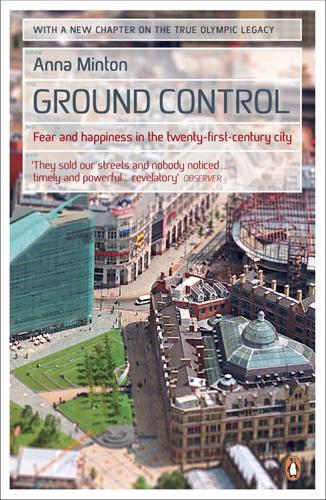
Ground Control: Fear and Happiness in the Twenty First Century City
by
Anna Minton
Published 24 Jun 2009
J., ‘How the West End was Won: The Struggle to Remove Street Barriers in Victorian London’, Journal of Historical Geography, vol. 19, 1993 Atkinson, Rowland & Blandy, Sarah, ‘Panic Rooms: The Rise of Defensive Home Ownership’, Housing Studies, vol. 22 (4), 2007 Banham, Reyner, Barker, Paul, Hall, Peter & Price, Cedric, ‘Non-Plan: An Experiment in Freedom’, New Society, 20/3/69 Blackmore, Lisa, ‘Different Experiences of the Anti-Social Behaviour Process’, Social Work Monographs 226, School of Social Work and Psychosocial Studies, University of East Anglia, 2007 Blandy, Sarah & Lister, Diane, ‘Gated Communities: (Ne) gating Community Development?’ Housing Studies, vol. 20 (2), 2005 Boland, Philip, ‘Unpacking the Theory-Policy Interface of Local Economic Development: An Analysis of Cardiff and Liverpool’, Urban Studies, vol. 44 (5/6), 2007 Cameron, Stuart, ‘From Low Demand Housing to Rising Aspirations: Housing Market Renewal within Regional and Neighbourhood Regeneration Policy’, Housing Studies, vol. 21 (1), 2006 Coleman, Roy, ‘Reclaiming the Streets: Closed Circuit TV, Neoliberalism and the Mystification of Social Divisions in the UK’, www.surveillance-and-society.org Cook, Ian R., ‘Mobilizing Urban Policies: The Policy Transfer of US Business Improvement Districts to England and Wales’, Urban Studies, vol. 45 (4), 2008 Cozens, Paul, Hillier, David & Prescott, Gwyn, ‘Crime and the Design of Residential Property: Exploring the Theoretical Background’, Property Management, vol. 19 (2), 2001 Dear, M. & Flusty, S., ‘Postmodern Urbanism’, Annals of the Association of Urban Geographers, vol. 88 (1), 1998 Ditton, Jason, ‘Crime and the City: Public Attitudes Towards Open Street CCTV in Glasgow’, British Journal of Criminology, vol. 40 (4), 2000 Dixon, John & Durrheim, Kevin, ‘Displacing Place-Identity: A Discursive Approach to Locating Self and Other’, British Journal of Social Psychology, vol. 39 (1), 2000 Furbey, Robert, ‘Urban Regeneration: Reflections on a Metaphor’, Critical Social Policy, vol. 19 (4), 1999 Gray, Emily, Jackson, Jonathan & Farrell, Stephen, ‘Reassessing the Fear of Crime’, European Journal of Criminology, vol. 5 (3), 2008 Hamilton-Baillie, Ben, ‘Shared Space: Reconciling People, Places and Traffic’, Built Environment, vol. 34 (2), 2008 Harcourt, Bernard E., ‘The Broken Windows Myth’, New York Times, 11/9/01 Hillier, Bill, ‘Can Streets be Made Safe?’
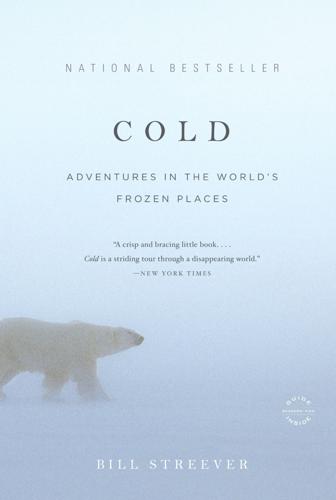
Cold: Adventures in the World's Frozen Places
by
Bill Streever
Published 21 Jul 2009
An area the size of Germany and France combined could be poised to release seventy billion tons of methane. More would come from Alaska and Canada and various mountain peaks. Sergei Kirpotin at Tomsk State University in western Siberia called the situation “an ecological landslide.” David Viner, a senior scientist at the University of East Anglia in England and part of the Russian permafrost project, said, “There are no brakes you can apply.” It is June twentieth, the eve of the summer solstice, on Alaska’s North Slope and 60 degrees Fahrenheit, or 16 degrees Celsius, or 289 Kelvin. Said another way, it is 520 degrees Fahrenheit above absolute zero.
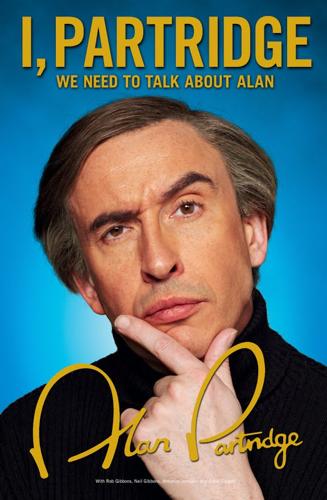
I, Partridge: We Need to Talk About Alan
by
Steve Coogan
Published 1 Sep 2011
Sadly, circumstance has meant that I’ve not been able to get back to the hospital in the intervening 31 years. In the main that’s down to me – work commitments have made it simply unfeasible. But for the record I’d like to point out that the hospital is not entirely blameless itself. In 2001 it moved to a new site around the corner from the University of East Anglia. The studios from where I used to broadcast my show were reduced to rubble. And I think most reasonable people would agree that by allowing that to happen the NHS Trust effectively voided my promise. 42 School trip to Heston Farm, 1964. I maintain it was self-defence. 43 Press play on Track 9. 44 If he was particularly unlucky it would have been a Bouncing Betty.

The Wood Age: How One Material Shaped the Whole of Human History
by
Roland Ennos
Published 18 Feb 2021
However, it is necessary to check whether such stories stand up to scrutiny, and one of the best ways to do that is to carry out rough “order of magnitude” calculations; in this case we need to compare wood use and potential wood supply. Recently, economic and environmental historians have started to use this approach with enlightening consequences. For instance, Paul Warde of the University of East Anglia has calculated that in England and Wales in the 1650s, people obtained around twenty terajoules of heat energy per year by burning firewood, slightly more than the energy expended by the metabolism of the people themselves, and that expended by their farm animals. Since burning wood produces about 7.3 megajoules per pound, this translates to around 1.2 million tons of firewood being burned each year.
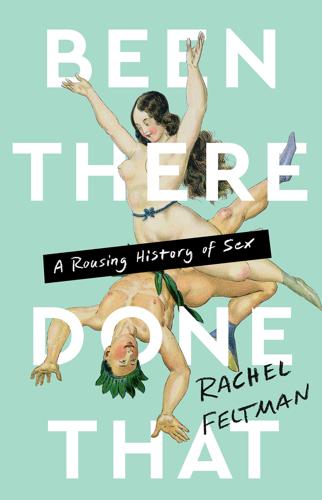
Been There, Done That: A Rousing History of Sex
by
Rachel Feltman
Published 14 May 2022
Still, I’ll grant you that it sounds like more of a misandrist Twitter rant. Indeed, when I wrote about a study examining this conundrum in 2015, I published it under the headline “Scientists Examine Why Men Even Exist,” and I knew exactly what I was doing.15 The Tweets I got in response were not very nice, but the study was: biologists at the University of East Anglia spent six to seven years observing two sets of around fifty generations of beetles to try to suss out whether sexual selection might be the key to it all. Let’s rewind briefly to Darwin. When he wasn’t busy having kids with his first cousin,i Darwin posited that something called sexual selection might be key to reproductive success.
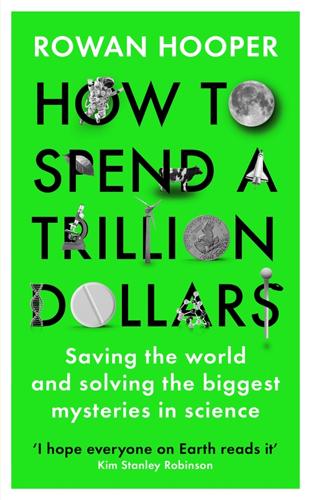
How to Spend a Trillion Dollars
by
Rowan Hooper
Published 15 Jan 2020
We need to throw off the yoke of agrochemicals and (for livestock) pharmaceuticals, and develop with all means necessary a diverse range of foodstuffs that don’t break or bend planetary boundaries. ‘The point about sustainable intensification is that it doesn’t cost anything,’ says Lynn Dicks, an agro-ecologist at the University of East Anglia. ‘You avoid expensive pesticides and fertilisers and focus on maximising nature’s services, without a yield penalty.’ Dicks advises that we build a global network of agronomists and farmers, linking them so they can share best practice. Minimising chemical use, maximising ecosystem services and breeding and selecting for farming those crops and livestock that complement the system of sustainable intensification.
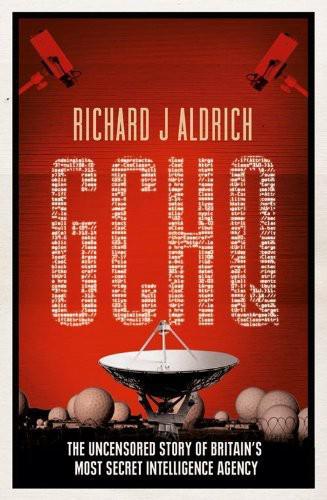
GCHQ
by
Richard Aldrich
Published 10 Jun 2010
Holland did naval elint but there was ‘no cooperation’, and with France there was also ‘no exchange’. DCDS (I) Maguire memo, ‘Elint Collection in NATO’, and annex, 27.11.67, AIR 20/11747. 39 Britain’s cooperation with the BND Technical Sub-Committee is discussed in SZ/CSA/116/4 A.G. Touch, 1961, Zuckerman papers, University of East Anglia Library. 40 DCDS (I) Maguire memo, ‘Elint Collection in NATO’, 27.11.67, AIR 20/11747. See also DASB Brief for mtg with CDS, 22.11.67, ibid. 41 Ibid. 42 Johnson, American Cryptology, Vol.2, p.359. 43 LSIB/1/67, 16.02.67, discussed in WD 86/87 ‘Air Staff Requirement No. 389 (HS801(R))’, 07.12.67, DEFE 68/76. 44 Aiken (AC(I)) memo, ‘Replacement Aircraft – No 51 Squadron’, 01.08.67, AIR20/12072.
…
Hurley (RNSM) General Sir Hastings Ismay (LHCMA) Admiral Louis Le Bailly (CCC) Selwyn Lloyd (CCC) Stuart Milner-Barry (CCC) Sir Walter Monckton (BOD) Field Marshal Lord Montgomery of Alamein (IWM) Admiral Lord Mountbatten (HL) Admiral William Parry (IWM) Major General Sir William Penney (LHCMA) Commander Alfred Roake (RNSM) Vice Admiral Gerard Rushbrooke (IWM) Duncan Sandys (CCC) Air Commodore Colin Simpson (LHCMA) Lord Strang (CCC) George Strauss (CCC) Lord Swinton (CCC) Lord Weatherill (Templeman Library, University of Kent at Canterbury) Solly Zuckerman (University of East Anglia) II. United States Stewart Alsop (HGARC) Henry Brandon (LC) William Bundy (PU) General Charles Cabell (BAFB) William Colby (PU) Charles H. Donnelly (USMHI) Allen Dulles (PU) Dwight D. Eisenhower (DDEL) Foreign Affairs Oral History Program (LL) General A.M. Gruenther (DDEL) C.D.
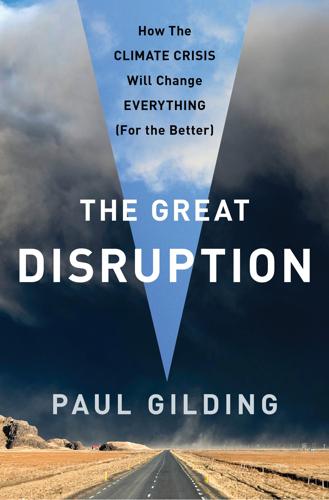
The Great Disruption: Why the Climate Crisis Will Bring on the End of Shopping and the Birth of a New World
by
Paul Gilding
Published 28 Mar 2011
Anderegg et al., “Expert Credibility in Climate Change,” Proceedings of the National Academy of Sciences 21 (June 2010), doi:10.1073/pnas.1003187107. 7. These reports include those by the U.K. House of Commons Science and Technology Select Committee, an independent international panel set up by the University of East Anglia, and the Independent Climate Change Email Review. All concluded that the e-mails did not undermine the findings of climate science or the “rigour and honesty” of the scientists involved. The reports are available at http://www.cce-review.org; http://www.uea.ac.uk/mac/comm/media/press/CRUstatements/SAP. 8.
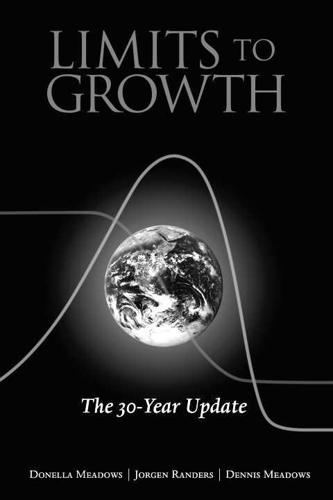
The Limits to Growth: The 30-Year Update
by
Donella H. Meadows
,
Jørgen Randers
and
Dennis L. Meadows
Published 15 Apr 2004
Watson et al., Climate Change 2001: Synthesis Report, Intergovernmental Panel on Climate Change (Geneva, Switzerland: IPCC, 2001). Also available along with numerous illustrations atwwwipcc.ch. 92. For a colorful presentation of the skeptic's view on climate and all other environmental issues, see Lomborg, Environmentalist. 93. See the vastly informative Web site of the Climatic Research Unit at the University of East Anglia, Norwich, UK, www.cru.uea.ac.uk. 94. See, for example, "Global Warming. Stormy Weather," Time, November 13, 2000, 35-40, with regional weather forecasts for Europe to 2050. 95. Watson et al., Climate Change 2001. 96. These data come from ice cores drilled deep into the Antarctic ice sheet.
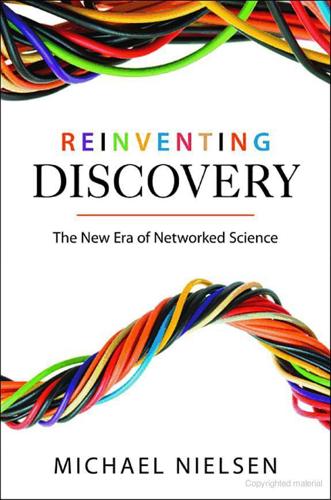
Reinventing Discovery: The New Era of Networked Science
by
Michael Nielsen
Published 2 Oct 2011
In an open-but-filtered world there is no problem with people such as Grothendieck pursuing their own solitary program. Won’t open science sometimes be used for ends that many scientists find distasteful? In November of 2009, hackers broke into a computer system in one of the world’s leading centers for climate research, the Climate Research Unit at the University of East Anglia, in the UK. The hackers downloaded more than 1,000 email messages sent between climate scientists. They then leaked the emails (and many other documents) to bloggers and journalists. The incident received worldwide media attention, as many climate change skeptics seized upon the emails, claiming that they contained evidence to prove that the notion of human-caused climate change was a conspiracy among climate scientists.
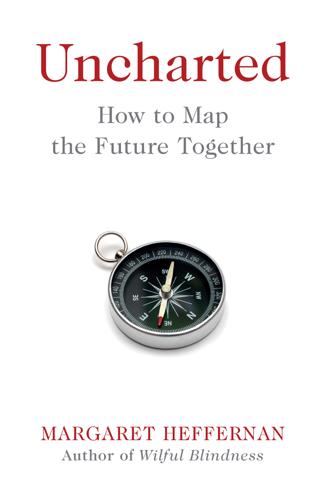
Uncharted: How to Map the Future
by
Margaret Heffernan
Published 20 Feb 2020
In 2016, when the World Economic Forum christened the rise of AI and automation the ‘Fourth Industrial Revolution’, the metaphor meant something – but it wasn’t anything that historians of the period recognise. ‘The (first) Industrial Revolution is a step change,’ Emma Griffin says. As professor of modern British history at the University of East Anglia, she is alert to how different the first Industrial Revolution was from today. ‘Before it, everything was made by hand and comes from the land. Normal experience is to die in a world very similar to the one you were born into. Most people live in small settlements of fewer than 5,000 people.
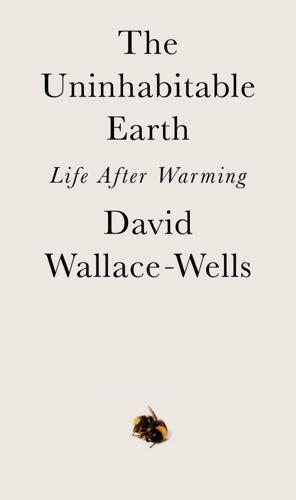
The Uninhabitable Earth: Life After Warming
by
David Wallace-Wells
Published 19 Feb 2019
a dead zone the size of Florida: Bastien Y. Queste et al., “Physical Controls on Oxygen Distribution and Denitrification Potential in the North West Arabian Sea,” Geophysical Research Letters 45, no. 9 (May 2018). See also “Growing ‘Dead Zone’ Confirmed by Underwater Robots” (press release), University of East Anglia, April 27, 2018, www.uea.ac.uk/about/-/growing-dead-zone-confirmed-by-underwater-robots-in-the-gulf-of-oman. Dramatic declines in ocean oxygen: Peter Brannen, “A Foreboding Similarity in Today’s Oceans and a 94-Million-Year-Old Catastrophe,” The Atlantic, January 12, 2018. See also Dana Nuccitelli, “Burning Coal May Have Caused Earth’s Worst Mass Extinction,” The Guardian, March 12, 2018.
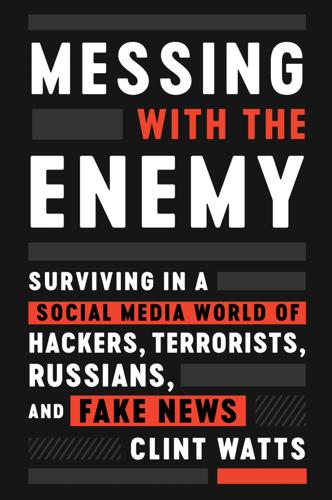
Messing With the Enemy: Surviving in a Social Media World of Hackers, Terrorists, Russians, and Fake News
by
Clint Watts
Published 28 May 2018
Until the U.S. presidential election of 2016, surprisingly few questioned the validity of Assange’s attacks on the West and particularly on the United States. Most overlooked a curious bit of WikiLeaks history, the first glimpse of which occurred on November 17, 2009. WikiLeaks posted email messages between climate scientists at the University of East Anglia’s Climatic Research Unit (CRU). The emails in the raw were used by climate change skeptics to show global warming to be a conspiracy. The CRU claimed that the emails were nothing more than healthy dialogue between researchers. Some investigating the CRU’s breach thought the leaks may have come from Russia, noting signatures that could have been tracked back to “a small web server in the formerly closed city of Tomsk in Siberia.”5 The source of the hacks remains an unsolved puzzle but the suggestion of a connection between Russia and WikiLeaks, curiously, would surface again less than a year later.
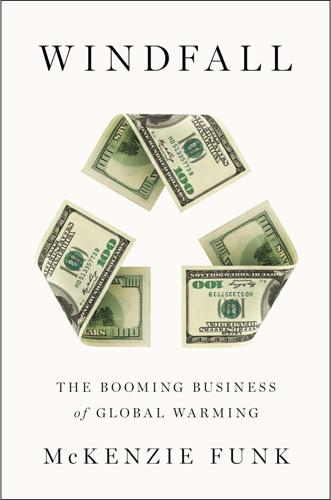
Windfall: The Booming Business of Global Warming
by
Mckenzie Funk
Published 22 Jan 2014
Over the course of twenty years, Senegal had signed seventeen different agreements with the EU, the most recent one the same week an EU-commissioned study found that the biomass of key fish species had declined by 75 percent in Senegalese waters. Gone were the schools of lucrative tuna, gone were the sharks, and left behind were smaller herring, along with unemployed fishermen, who found new work as human traffickers. In 2009, a University of East Anglia study of the effects of climate change and warming oceans on fishing economies suggested a further problem: Out of 132 nations surveyed, Senegal was the fifth most vulnerable. Whether the men fleeing for Europe should be considered some of the world’s first climate refugees was debatable.
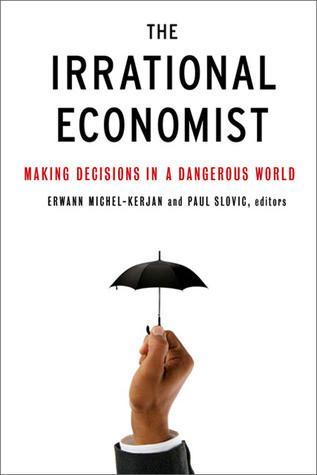
The Irrational Economist: Making Decisions in a Dangerous World
by
Erwann Michel-Kerjan
and
Paul Slovic
Published 5 Jan 2010
Paul Slovic, University of Oregon Paul Slovic is a professor of psychology at the University of Oregon and a founder and president of Decision Research. He holds both an MA (1962) and a PhD (1964) from the University of Michigan. He has received honorary doctorates from the Stockholm School of Economics (1996) and the University of East Anglia (2005). He studies human judgment, decision making, and risk analysis. He and his colleagues worldwide have developed methods to describe risk perceptions and measure their impacts on individuals, industry, and society. He publishes extensively and serves as a consultant to industry and government.
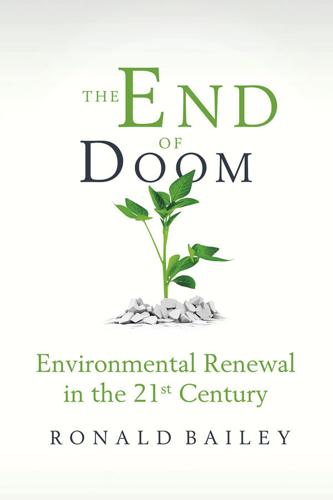
The End of Doom: Environmental Renewal in the Twenty-First Century
by
Ronald Bailey
Published 20 Jul 2015
The independent climate research group Berkeley Earth also concluded that 2014 was nominally the warmest since the global instrumental record began in 1850 while noting, however, that within the margin of error, it is tied with 2005 and 2010. The UK Met Office and the Climatic Research Unit at University of East Anglia ranked 2014 as tied with 2010 for the warmest year in the record, but added that the uncertainty ranges mean it’s not possible to definitively say which of several recent years was the warmest. Climatologists at the University of Alabama in Huntsville have been tracking global temperatures for the past thirty-six years using satellite data that measure the bottom five miles of the atmosphere.
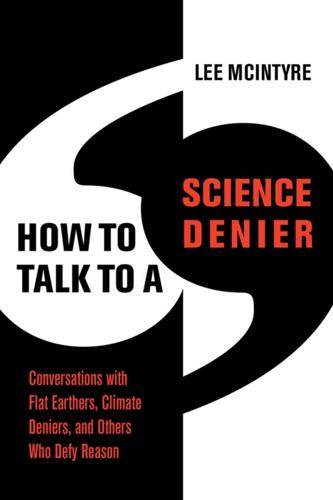
How to Talk to a Science Denier: Conversations With Flat Earthers, Climate Deniers, and Others Who Defy Reason
by
Lee McIntyre
Published 14 Sep 2021
President Trump has made numerous claims over the years about how climate change is a hoax perpetrated by the Chinese to hurt American manufacturing, that the scientists are politically biased, etc.62 During the 2009 Climategate debacle, deniers seized on some inappropriate emails sent by scientists at the University of East Anglia, and tried to use them to show that there was a worldwide conspiracy of climate scientists.63 Reliance on Fake Experts Here the issue is a tad more subtle. Some of the work cited by climate skeptics has been done by actual scientists (some with credentials in climate science), but their work has been cherry-picked with great preference for preexisting views that are hostile to climate change.

Markets, State, and People: Economics for Public Policy
by
Diane Coyle
Published 14 Jan 2020
David Halpern (2015), Inside the Nudge Unit: How Small Changes Can Make a Big Difference, WH Allen. Brigitte Madrian (2014), “Applying Insights from Behavioral Economics to Policy Design” (July), http://papers.ssrn.com/sol3/papers.cfm?abstract_id=2471211&download=yes. J. Mehta, ed. (2013), Behavioral Economics in Competition and Consumer Policy, University of East Anglia, http://competitionpolicy.ac.uk/documents/8158338/8193541/CCP+economics+book+Final+digital+version+-+colour.pdf/30214557-cace-4b0b-8aac-a801bbde87bc. OECD (2017), “Behavioral Insights and Public Policy: Lessons from around the World,” http://www.keepeek.com/Digital-Asset-Management/oecd/governance/behavioural-insights-and-public-policy_9789264270480-en#.WgMB30dpFDg#page1.
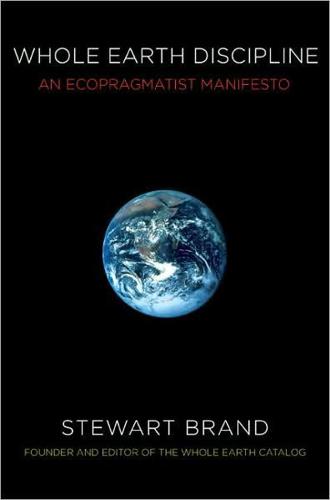
Whole Earth Discipline: An Ecopragmatist Manifesto
by
Stewart Brand
Published 15 Mar 2009
And books have come along that expound some of my topics better than I; I wish I’d had them in hand before. Start, as the book does, with climate. In December 2009, the UN Climate Change Conference in Copenhagen was undermined by a suspiciously sophisticated hack of emails among climatologists at the University of East Anglia, England. Once again, climate change deniers dominated the public discourse and prevented action on greenhouse gases. I responded with a New York Times op-ed titled “Four Sides to Every Story,” suggesting that it helps to distinguish four kinds of views about global warming according to whether they are driven mainly by ideology or by evidence.
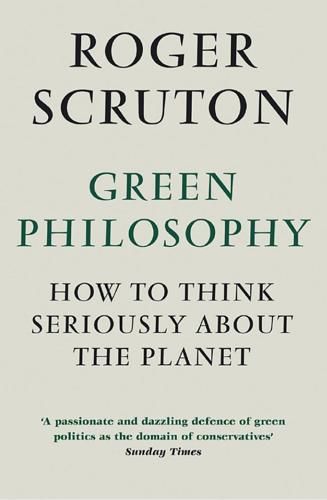
Green Philosophy: How to Think Seriously About the Planet
by
Roger Scruton
Published 30 Apr 2014
The website climatedepot.com, managed by Marc Morano and devoted to identifying, retailing and amplifying the arguments of the sceptics, has done its best to discredit the IPCC. It has recently published pirated internal documents suggesting that scientists at the Climate Research Unit at the University of East Anglia, on which the Panel relies for its global temperature measurements, have been prepared to falsify evidence for political ends.55 Since then the chairman of the IPCC, Indian climatologist Rajendra Pachauri, has been heavily criticized for (among other things) issuing wildly inaccurate data concerning the melting of the Himalayan glaciers.56 Even before those episodes, the favourable opinion of the IPCC’s reports was not shared by all climatologists: certainly not by the 800 sceptics listed on climatedepot.com, or the prominent ‘deniers’ collected by Lawrence Solomon.
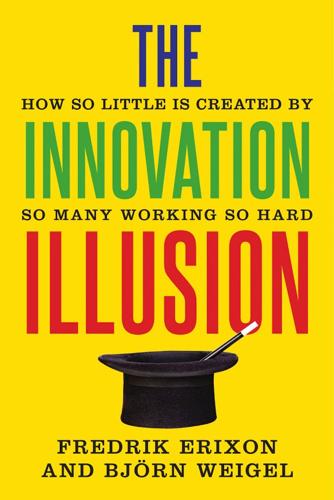
The Innovation Illusion: How So Little Is Created by So Many Working So Hard
by
Fredrik Erixon
and
Bjorn Weigel
Published 3 Oct 2016
Gulfo, Joseph V., Innovation Breakdown: How the FDA and Wall Street Cripple Medical Advances. Post Hill Press, 2014. Gwartney, James, Robert Lawson, and Joshua Hall, “Economic Freedom of the World: 2015 Annual Report.” Fraser Institute, 2015. Haldane, Andrew G., “Growing, Fast and Slow.” Speech, University of East Anglia, Feb. 17, 2015. Haldane, Andrew, “Patience and Finance.” Speech, Oxford China Business Forum, Beijing, Sept. 9, 2010. BIS Review 114/2010. Haldane, Andrew G., and Richard Davies, “The Short Long.” Presentation, 29th Société Universitaire Européenne de Recherches Financières Colloquium: New Paradigms in Money and Finance?
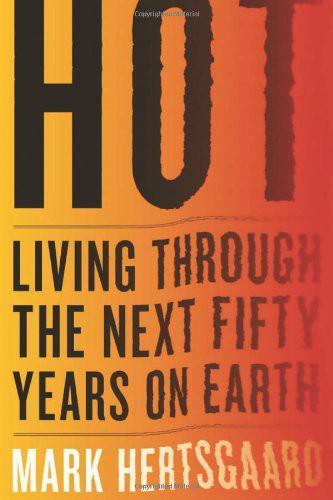
Hot: Living Through the Next Fifty Years on Earth
by
Mark Hertsgaard
Published 15 Jan 2011
As the Copenhagen climate summit began in December 2009, almost every major news organization in the world gave front-page coverage to the deniers' unfounded accusations of widespread fraud on the part of leading climate scientists. Quoting people out of context and cherry-picking data, the deniers accused scientists at the Climate Research Unit of the University of East Anglia in Britain of falsifying results and then lying about it, and of conspiring to suppress dissenting views. The only news organization that took the time to investigate rather than merely echo these charges was the Associated Press. A team of AP reporters read and analyzed each of the 1,073 stolen e-mails, a total of about 1 million words of text.
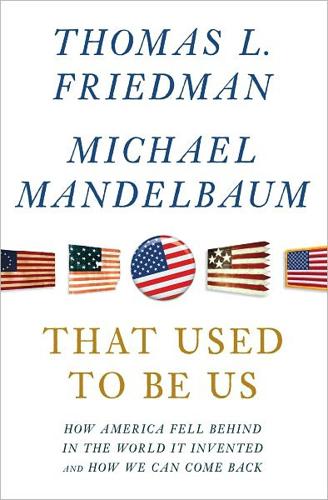
That Used to Be Us
by
Thomas L. Friedman
and
Michael Mandelbaum
Published 1 Sep 2011
Let’s hope that they do. But they could also turn out to be worse—much worse. You would not know that, though, from reading the newspapers in 2010. Climate skeptics, many funded by the fossil-fuel industries, seized on a few leaked e-mails among climate scientists working with Great Britain’s University of East Anglia’s Climatic Research Unit to gin up a controversy about the conduct of some of its scientific investigators. Whatever one thinks of this specific case, it hardly invalidates the scientific consensus on global warming based on independent research conducted all over the world, nor do a few minor mistakes in the UN’s massive Intergovernmental Panel on Climate Change report.
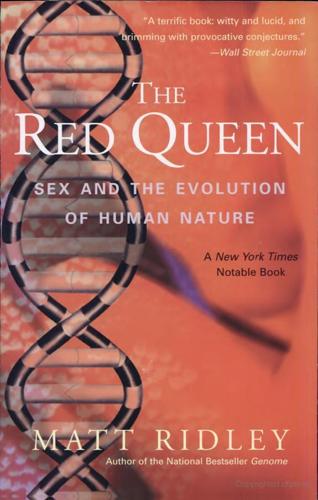
The Red Queen: Sex and the Evolution of Human Nature
by
Matt Ridley
Published 14 Aug 1993
The Chinese, deprived of the chance to have more than one child, killed more than 250,000 girls after birth between 1979 and 1984.65 In some age groups in China, there are 122 boys for every 100 girls. In one recent study of clinics in Bombay, of 8,000 abortions, 7,997 were of female foetuses.66 It is possible that selective spontaneous abortion also explains much of the animal data. In the case of the coypu, studied by Morris Gosling of the University of East Anglia, females in good condition miscarry whole litters if they are too female-biased, and start again. Magnus Nordborg of Stanford University, who has studied the implications of sex-selective infanticide in China, believes that such biased miscarriage could explain the baboon data. But it seems a wasteful way to proceed.67 There are many well-established natural factors that bias the sex ratio of human offspring, proving that it is at least possible.
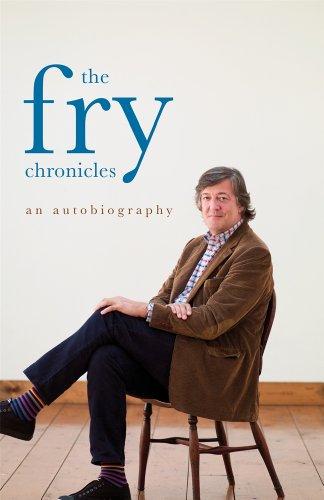
The Fry Chronicles: An Autobiography
by
Stephen Fry
Published 27 Sep 2010
The other two, Paul and Charlie, were more than competent at the rendering, skimming, bonding, sanding, painting and other ancillary skills that might be expected from a general builder, but they had another quality. They were quite extraordinarily funny. I brought them coffee, as you do when you have the builders in, and I chatted with them in what I hoped was a friendly and unpatronizing manner but just couldn’t get over how much they made me laugh. They had been at the University of East Anglia in Norwich, which seat of higher education they had quickly vacated, dropping out and moving to London, working in the building trade and wondering if comedy might ever be an attainable goal. Charlie was the lead singer in a punk outfit which apparently had a cult following. Paul entertained our household with impressions of London types, the especial favourite being a Greek cockney who had an eccentric way with very cockneyfied English.
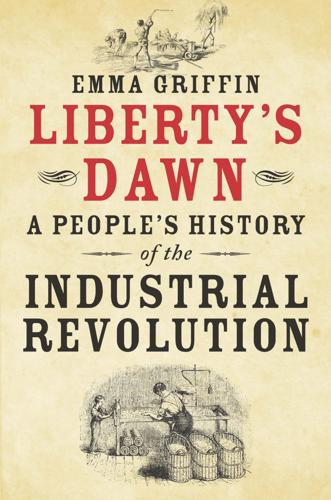
Liberty's Dawn: A People's History of the Industrial Revolution
by
Emma Griffin
Published 10 Jun 2013
I must thank the organisers of these events for their invitations and the audiences for invaluable criticism, advice and encouragement. What follows is certainly the better for its engagement with so many critical listeners. The actual completion of this book was made possible only by a research fellowship from the Arts and Humanity Research Council and a year’s study leave from the University of East Anglia. My thanks are due to both institutions for these much valued periods of research leave. 4017.indd 9 25/01/13 8:21 PM x a c k n o w l e d g e m e n t s My greatest debt goes to my husband, David Milne, who discussed the big ideas of the project and pored over the smallest details of countless draft chapters, all the while sharing equally in the running of a home and the raising of our two small children.
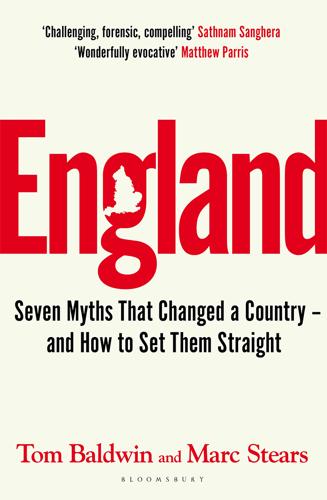
England: Seven Myths That Changed a Country – and How to Set Them Straight
by
Tom Baldwin
and
Marc Stears
Published 24 Apr 2024
Her experience of the university is a long way from Hogwarts dining halls, punts and mortar boards. ‘I don’t have much to do with dining on the “high table” at the colleges and such things,’ she tells us. A state-educated daughter of a teacher and a shoemaking firm’s manager in Kettering, she did her first degree at the University of East Anglia, her PhD at Hull, and spent a year working at a brewing research centre before getting an academic job at Oxford. The Oxford-AstraZeneca vaccine was developed in a suburb of the city, up a hill and far from any old colleges. Gilbert’s laboratories are in the kind of modern office building that is surrounded by car parks, trees still attached with bits of plastic to stakes and the kind of landscaping where it looks like the bulldozers have only just left.

Meat: A Benign Extravagance
by
Simon Fairlie
Published 14 Jun 2010
Center for Global Issues, http://www.highyieldconservation.org/background.html 48 Popper, D E and F J (1999), ‘The Buffalo Commons: Metaphor as Method’, Geographical Review, 89(4), 1999, pp 491-510, draft available at http://www.gprc.org/buffalocommons_method.html 49 Clauss, Marcus and Hummel, Jürgen (2005), ‘The Digestive Performance of Mammalian Herbivores: Why Big may not be Better’, Mammal Review, Vol 35, 2005, pp 174-87. 50 Subak, Susan (2004), Methane from the House of Tudor and the Ming Dynasty, CSERGE/ University of East Anglia, http://www.uea.ac.uk/env/cserge/pub/wp/gec/gec_1994_06.htm 51 Westing, Arthur H (1976), ‘A World in Balance’, Environmental Conservation, 8 (3), pp 177-83; cited in Coppinger, R and Smith, C (1985) The Domestication of Evolution, Environmental Conservation, 10 (4), pp 283-92. 52 Savory, Allan with Butter field, Jody (1999), Holistic Management, Island Press, p 198. 53 Keppler, F et al (2006), ‘Methane Emissions from Terrestrial Plants under Aerobic Conditions’, Nature, 439, 187-91. 54 Crutzen, P J et al (2006), ‘Methane Production from Mixed Tropical Savanna and Forest Vegetation in Venezuela, Atmospheric Chemistry and Physics Discussions, 6, 3093-7, 2006. 55 Houweling, S et al (2006), ‘Atmospheric Constraints on Methane Emissions from Vegetation’, Geophysical Research Letters, 33 Art No L15821 .
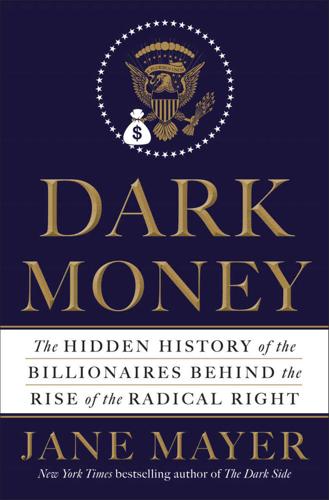
Dark Money: The Hidden History of the Billionaires Behind the Rise of the Radical Right
by
Jane Mayer
Published 19 Jan 2016
Given Obama’s position, time seemed to be running out for the fossil fuel forces and their free-market allies. Then, on November 17, 2009, an anonymous commenter on a contrarian Web site declared, “A miracle has happened.” With lethal timing, an unidentified saboteur had hacked expertly into the University of East Anglia’s Web site and uploaded thousands of internal e-mails detailing the private communications of the scientists working in its famed Climatic Research Unit. The climatologists at the British university had been in constant communication with those in America, and now all of their unguarded professional doubts, along with their unguarded and sometimes contemptuous asides about their opponents, stretching all the way back to 1996, were visible for the entire world to read.
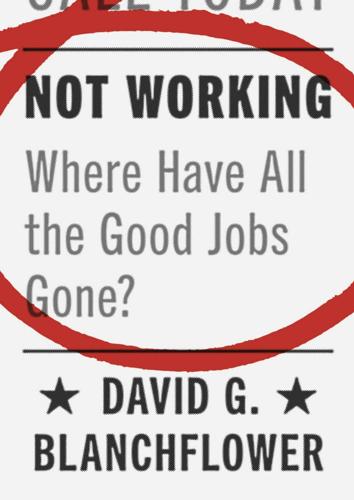
Not Working: Where Have All the Good Jobs Gone?
by
David G. Blanchflower
Published 12 Apr 2021
David Goodman, “Carney Says More BOE Rate Hikes Ahead, Stays Vague on Timing,” Bloomberg, February 21, 2018. 12. Anurag Kotoky and Lucy Meakin, “BOE’s Haldane Sees U.K. Wage Growth Starting to Strengthen,” Bloomberg, October 10, 2018; Andy Haldane, “Growing, Fast and Slow” (Speech given at the University of East Anglia, February 17, 2015). 13. Silvana Tenreyro, “Models in Macroeconomics” (Speech given at Surrey University, June 4, 2018). 14. Larry Summers, “Only Raise US Rates When Whites of Inflation’s Eyes Are Visible,” Financial Times, February 8, 2015. 15. Quoted in Carolynn Look, “It’s Hard to Lift Wages When Phillips Curve Is as Flat as Kansas,” Bloomberg, November 3, 2017. 16.
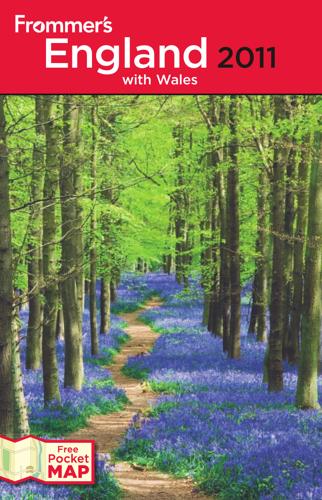
Frommer's England 2011: With Wales
by
Darwin Porter
and
Danforth Prince
Published 2 Jan 2010
Norwich Cathedral CAMBRIDGE & EAST ANGLIA Norwich 15 62 The Close. & 01603/218440. Free admission; £4 suggested donation. Oct–May daily 7:30am–6pm; June–Sept daily 7:30am–7pm. Sainsbury Centre for Visual Arts The center was the gift of Sir Robert and Lady Sainsbury, who, in 1973, contributed their private collection to the University of East Anglia, 5km (3 miles) west of Norwich on Earlham Road. Together with their son David, they gave an endowment to house the collection. Designed by Sir Norman Foster, the center was opened in 1978 and has since won many national and international awards. The prominent features of the structure are its flexibility, allowing solid and glass areas to be interchanged, and the superb quality of light, which permits optimum viewing of the works of art.
…
Special exhibitions are often presented in the 1991 Crescent Wing extension. The Sainsbury Collection is one of the foremost in the country, including modern, ancient, classical, and ethnographic art. Its most prominent works are those by Francis Bacon, Alberto Giacometti, and Henry Moore. University of East Anglia, Earlham Rd. & 01603/593199. www.scva.org.uk. Free admission. Tues–Sun 10am–5pm (until 8pm on Wed). Bus: 25, 26, or 27 from Castle Meadow. Second Air Division Memorial Library A memorial room honoring the Second Air Division of the 8th U.S. Army Air Force is part of the central library here, where you can find pertinent books, audiovisual materials, and records of the various bomber groups.
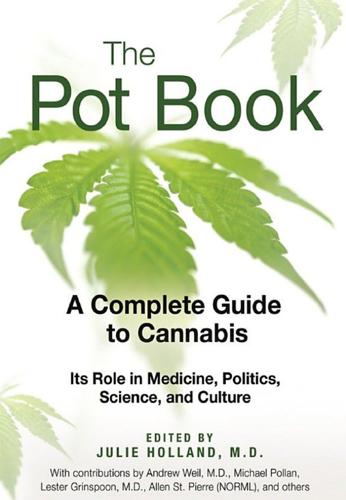
The Pot Book: A Complete Guide to Cannabis
by
Julie Holland
Published 22 Sep 2010
Described by Rolling Stone as “the point man” for drug policy reform efforts, he is widely regarded as the outstanding proponent of drug policy reform both in the United States and abroad. He can be contacted at Enadelmann@drugpolicy.org. William Notcutt, M.D., F.R.C.A., F.F.P.M.R.C.A., is a consultant in pain medicine at the James Paget University Hospital, Great Yarmouth, UK, and a senior lecturer at the University of East Anglia, Norwich, UK. He has been researching the clinical use of cannabinoids for the last fifteen years and has participated in about eighteen studies. He can be contacted at william.notcutt@jpaget.nhs.uk. Denis J. Petro, M.D., is a board-certified neurologist in private practice in Pennsylvania.
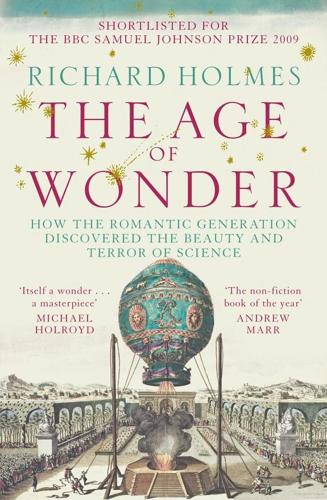
The Age of Wonder
by
Richard Holmes
Published 15 Jan 2008
I am also hugely grateful to Professor Amartya Sen, then Master of Trinity College, Cambridge, and the Fellows of Trinity, for giving me two wonderful summers as Visiting Fellow Commoner (2000, 2002), and enabling me (among much else) to spend long evenings talking with mathematicians, chemists, astronomers and astrophysicists-several of them Nobel Prize-winners-which gave me some sense of what science is really about. My warmest personal thanks are due to my old friend and colleague Professor Jon Cook, to whom this book is dedicated; to Professor Kathryn Hughes and Dr Druin Burch (my medical postgraduate) at the University of East Anglia; William St Clair, Richard Serjeantson and Priya Natarajan (our beautiful astrophysicist) at Trinity College, Cambridge; Professor Christoph Bode at the Ludwig-Maximilians-University, Munich; Roderick Winstrop at the Cambridge Observatory; Jim Saulter (pharmacist) and John Allen at Penzance; Debbie James, Curator at the Herschel Museum, Bath; Lenore Symons, the Archivist at the Royal Institution, London; Celia Joicey and Pallavi Vadhia at the National Portrait Gallery; Pierre Lombarde, Directeur, Centre de Documentation, Musée de l’Air et de l’Espace, Le Bourget; Dr Paul Baronek, then of GlaxoSmithKline, for his advice on drugs and medical procedures; Alan Judd for late-night intelligence at The Reform; Patricia Duncker for discussing the fact and fiction of telescopes; Tim Dee of the BBC for producing our three drama-documentaries, The Frankenstein Experiment (Radio 3, 2002), A Cloud in a Paper Bag (Radio 3, 2007) and Anaesthesia (Radio 4, 2009); my brother Adrian Holmes of Young & Rubicam, and my sister Tessa Holmes of the London College of Printing, for their shrewd help with questions of presentation and design; my late uncle, Squadron Leader David Gordon (RAF Bomber Command), who taught me to build short-wave radios, to understand the principles of flight, and once smuggled me into the cockpit of his Vulcan V bomber (not armed); the West Kent Gliding Club and the Norfolk Hot Air Balloon Co. for some highly instructive airborne moments; Eleanor Tremain for finding Andromeda; Dr Percy Harrison, Head of Science, Eton College, for patiently trying to save me from at least some of my scientific howlers; Mr Glasgow, Department of Orthopaedics, Norfolk and Norwich University Hospital, for discussing anaesthetics in the few seconds before he put me under; Richard Fortey, FRS, for swift, exacting and helpful observations at proof stage; and finally Sir Michael Holroyd, for simply being such an inspiration to an entire generation of biographers (Romantic or otherwise).
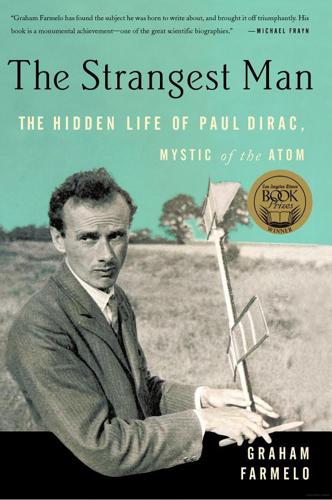
The Strangest Man: The Hidden Life of Paul Dirac, Mystic of the Atom
by
Graham Farmelo
Published 24 Aug 2009
CALTECH California Institute of Technology, archive, USA. CHRIST’S Old Library, Christ’s College, Cambridge University, UK. CHURCHILL Churchill Archives Centre, Churchill College, Cambridge University, UK. DDOCS Dirac letters and papers, property of Monica Dirac. EANGLIA Tots and Quots archive, University of East Anglia, Norwich, UK. FSU Paul A. M. Dirac Papers, Florida State University Libraries, Tallahassee, Florida, USA. All of the letters Dirac’s mother wrote to him are in this archive. IAS Institute for Advanced Study, archive, USA. KING’S King’s College, Cambridge; unpublished writings of J. M.
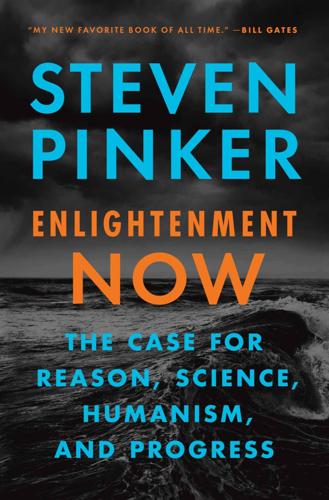
Enlightenment Now: The Case for Reason, Science, Humanism, and Progress
by
Steven Pinker
Published 13 Feb 2018
Brown, D. E. 2000. Human universals and their implications. In N. Roughley, ed., Being humans: Anthropological universality and particularity in transdisciplinary perspectives. New York: Walter de Gruyter. Brunnschweiler, C. N., & Lujala, P. 2015. Economic backwardness and social tension. University of East Anglia. https://ideas.repec.org/p/uea/aepppr/2012_72.html. Bryce, R. 2014. Smaller faster lighter denser cheaper: How innovation keeps proving the catastrophists wrong. New York: Perseus. Brynjolfsson, E., & McAfee, A. 2015. Will humans go the way of horses? Foreign Affairs, July/Aug. Brynjolfsson, E., & McAfee, A. 2016.
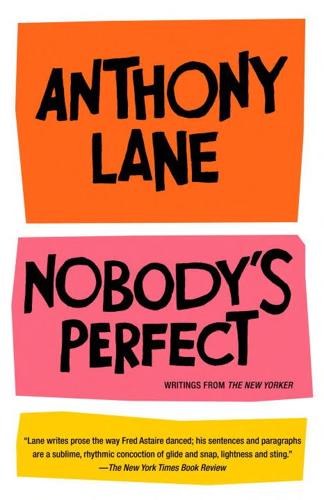
Nobody's Perfect: Writings From the New Yorker
by
Anthony Lane
Published 26 Aug 2002
Sebald was born in Germany in 1944; in 1970, he moved to England for good, although, to read his collected works, which both unsettle the nerves and ponder the resettlement of displaced persons, you can hardly imagine him pausing to unpack, let alone putting down roots. Since 1987, he has been professor of European literature at the University of East Anglia, where, for five years, he was also the first director of the British Centre for Literary Translation; fluent to a fault in his adopted tongue, he chooses not to write in it, entrusting Hulse with the alchemical task. Yet there is barely a handful of English-speaking writers who can rival the reach and play of Sebald’s three publications to date, and connoisseurs of national contention will note that, in literature as in soccer, German talent has once again beaten the English at their own game.
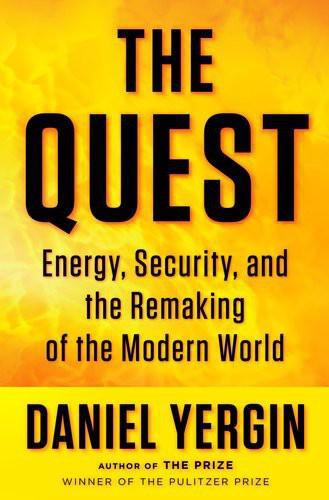
The Quest: Energy, Security, and the Remaking of the Modern World
by
Daniel Yergin
Published 14 May 2011
After the Republicans won the House of Representatives in 2010, a climate legislation became even less likely. “THE HEALTH OF THE HIMALYAS” More or less concurrent with Copenhagen was a chipping away of the credibility of the IPCC itself. In what became known as climategate, somebody hacked into the e-mails of the Climatic Research Unit at the University of East Anglia in England, which was one of the main research centers supporting climate research and the work of the IPCC. To many climate scientists and activists, the e-mails were being taken out of context and grossly misconstrued. But the way others read the e-mails was that some prominent scientists had turned to “tricks” to come out with the results they had wanted and went out of their way to denigrate and isolate those who might disagree.
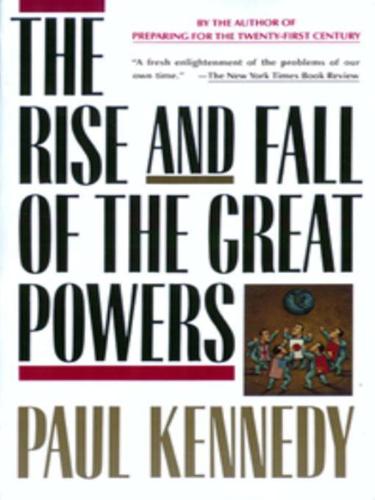
The Rise and Fall of the Great Powers: Economic Change and Military Conflict From 1500 to 2000
by
Paul Kennedy
Published 15 Jan 1989
Nick Rizopoulos and Michael Mandelbaum not only scrutinized the later chapters, but also invited me to present my ideas at a series of meetings at the Lehrman Institute in New York. Many, many scholars have heard me give papers on subthemes in this book, and have provided references, much-needed criticism, and encouragement. The libraries and staffs at the universities of East Anglia and Yale were of great assistance. My graduate student Kevin Smith helped me in the search for historical statistics. My son Jim Kennedy prepared the maps. Sheila Klein and Sue McClain came to the rescue with typing and word processing, as did Maarten Pereboom with the bibliography. I am extremely grateful for the sustained support and encouragement which my literary agent, Bruce Hunter, has provided over the years.

Lonely Planet Peru
by
Lonely Planet
A degree in Chinese and Latin-American cultures launched him into travel and then writing about it for Lonely Planet’s Canada, China, Japan, Korea, Mexico and Vietnam guides. See his writing at vihellophillip.com; photos @mrtangtangtang; and tweets @philliptang. Luke Waterson Amazon Basin, Central Highlands Raised in southwest England, Luke quickly became addicted to exploring out-of-the-way places. Completing a Creative Writing degree at the University of East Anglia, he shouldered his backpack and vowed to see as much of the world as possible. Luke specialises in writing on South America – he contributes to the LP Ecuador guide, and his debut novel Roebuck, set in the 16th-century Amazon jungle, was published in December 2015. For updates about his writing, fact and fiction, visit lukeandhiswords.com.
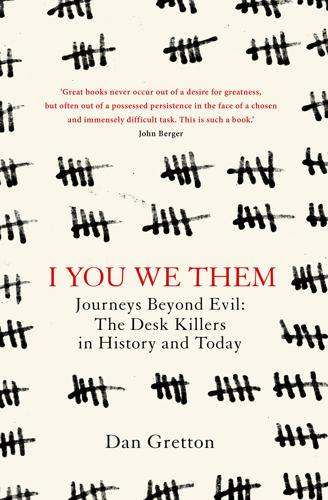
I You We Them
by
Dan Gretton
G. Sebald (1944–2001) Writer and academic. Born in a small Bavarian village towards the end of World War II, Sebald studied English and German literature in Germany and Switzerland, before taking a lectureship at the University of Manchester in 1966. In 1970 he completed his PhD at the University of East Anglia, where he worked for the rest of his life, becoming Professor of European Literature and establishing the British Centre for Literary Translation. He began to publish outside academia relatively late – his first novel, Vertigo only being published in 1990. The Emigrants (1992) and The Rings of Saturn (1995) rapidly consolidated his growing reputation – his writing being utterly distinctive and uncompromisingly out-of-step with modern life.
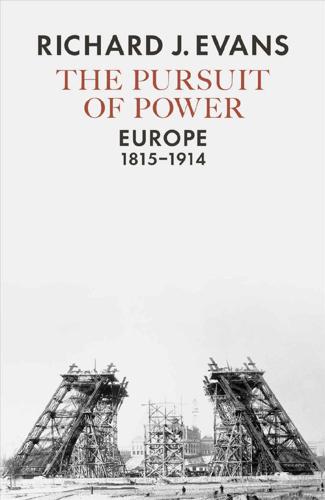
The Pursuit of Power: Europe, 1815-1914
by
Richard J. Evans
Published 31 Aug 2016
I began writing this book in 2009, but its origins go back much further, to the decades I spent teaching the history of nineteenth-century Europe at a number of universities before my interests shifted to the twentieth century with my move to Cambridge in 1998. I have been fortunate to be able to draw on the many lectures I have given on the history of nineteenth-century Europe over the years, at the University of Stirling in Scotland, at Columbia University in the City of New York, at the University of East Anglia at Norwich, at Birkbeck, University of London, and most recently at Gresham College in the City of London. I am grateful to the students who listened patiently to my ideas in lectures and seminars in all these institutions and helped firm up, or change, my arguments and my general approach with their comments.
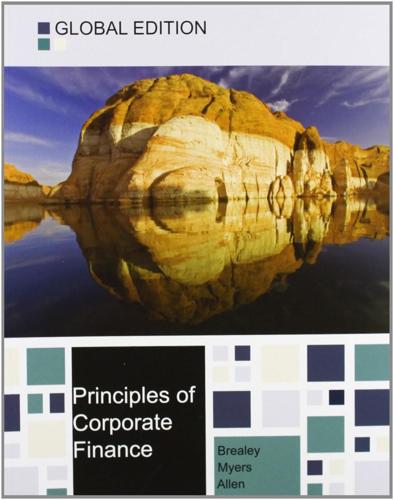
Principles of Corporate Finance
by
Richard A. Brealey
,
Stewart C. Myers
and
Franklin Allen
Published 15 Feb 2014
Krishnaswamy Western Michigan University George Kutner Marquette University Dirk Laschanzky University of Iowa Scott Lee Texas A&M University Bob Lightner San Diego Christian College David Lins University of Illinois, Urbana Brandon Lockhart University of Nebraska, Lincoln David Lovatt University of East Anglia Greg Lucado University of the Sciences in Philadelphia Debbie Lucas Northwestern University Brian Lucey Trinity College, Dublin Suren Mansinghka University of California, Irvine Ernst Maug Mannheim University George McCabe University of Nebraska Josie McLaren, University of Newcastle Eric McLaughlin California State University, Pomona Joe Messina San Francisco State University Tim Michael University of Houston, Clear Lake Dag Michalson Bl, Oslo Franklin Michello Middle Tennessee State University Peter Moles University of Edinburgh Katherine Morgan Columbia University James Nelson East Carolina University James Owens West Texas A&M University Darshana Palkar Minnesota State University, Mankato Claus Parum Copenhagen Business School Dilip Patro Rutgers University John Percival University of Pennsylvania Birsel Pirim University of Illinois, Urbana Latha Ramchand University of Houston Rathin Rathinasamy Ball State University Raghavendra Rau Purdue University Joshua Raugh University of Chicago Charu Reheja Wake Forest University Thomas Rhee California State University, Long Beach Tom Rietz University of Iowa Robert Ritchey Texas Tech University Michael Roberts University of Pennsylvania Mo Rodriguez Texas Christian University John Rozycki Drake University Frank Ryan San Diego State University Marc Schauten Eramus University Brad Scott Webster University Nejat Seyhun University of Michigan Jay Shanken Emory University Chander Shekhar University of Melbourne Hamid Shomali Golden Gate University Richard Simonds Michigan State University Bernell Stone Brigham Young University John Strong College of William & Mary Avanidhar Subrahmanyam University of California, Los Angeles Tim Sullivan Bentley College Shrinivasan Sundaram Ball State University Chu-Sheng Tai Texas Southern University Tom Tallerico Dowling College Stephen Todd Loyola University, Chicago Walter Torous University of California, Los Angeles Emery Trahan Northeastern University Gary Tripp Southern New Hampshire University Ilias Tsiakas University of Warwick Narendar V.